Chiang Mai
It's not the usual vibrant Chiang Mai during Loy Krathong at year's end, but the city will showcase its unmistakable serenity.
Wat Sri Suphan (วัดศรีสุพรรณ)
Looking at the sweet afternoon sunshine of the dry season illuminating behind the temple, I realized that the most beautiful moment was the one I had to wait for, rather than the one suddenly appearing at the next second in this life.
At the time documenting this article, I was reading The Venice Sketchbook, so interesting, so fanciful. There aren’t many chances you truly feel your own experience from the past trip helps to connect you with a book.
An Afternoon in the Dry Season
I had landed in Chiang Mai (เชียงใหม่ / ᨩ᩠ᨿᨦᩉ᩠ᨾᩲ᩵) in a sweltering afternoon amid the dry season of South East Asia. It’s not a typical summer known for white sand beach and blue sea, it’s a dry season - an occasion not very ideal for traveling; the reason was that I had a refunded ticket from my cancelled trip last year.
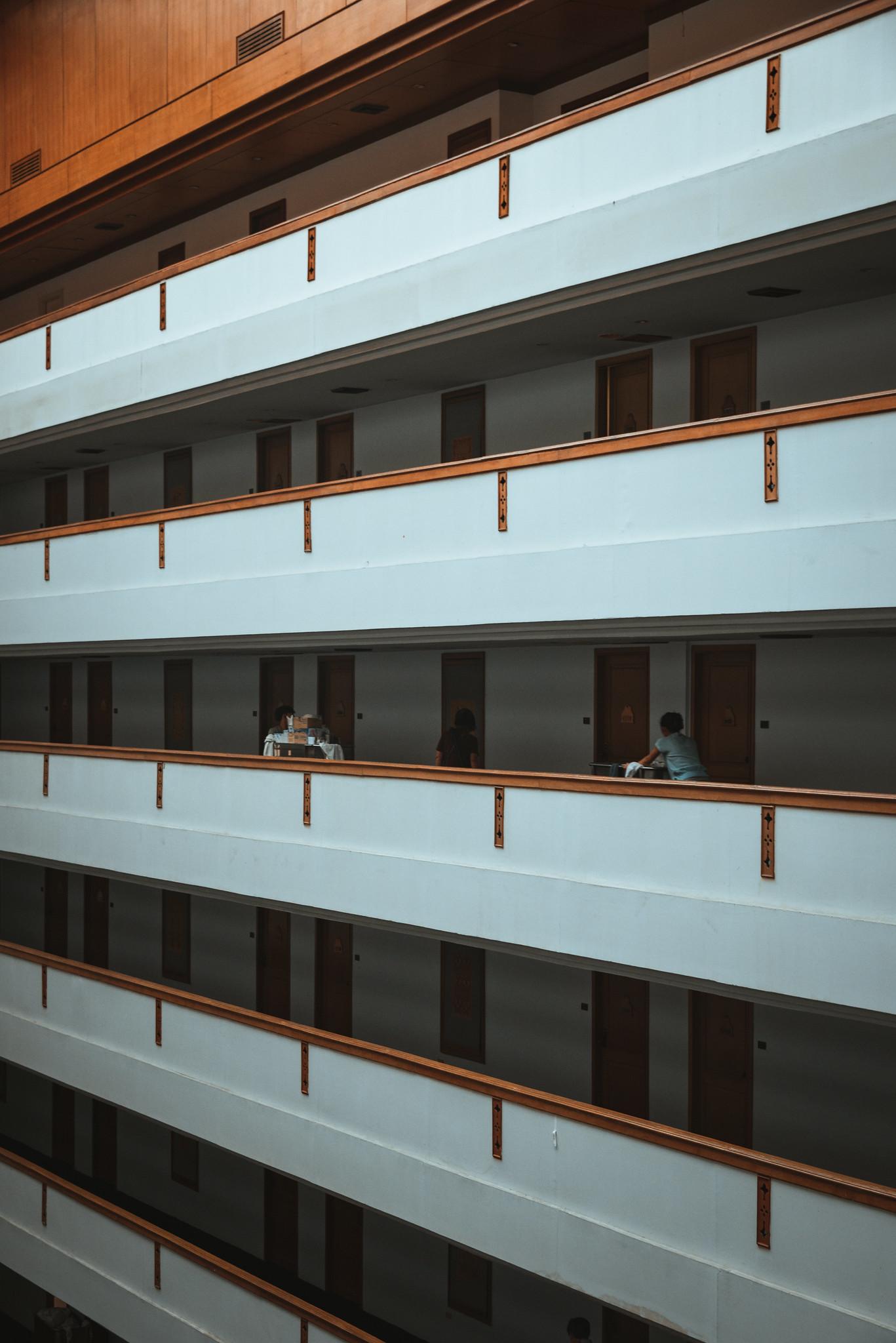
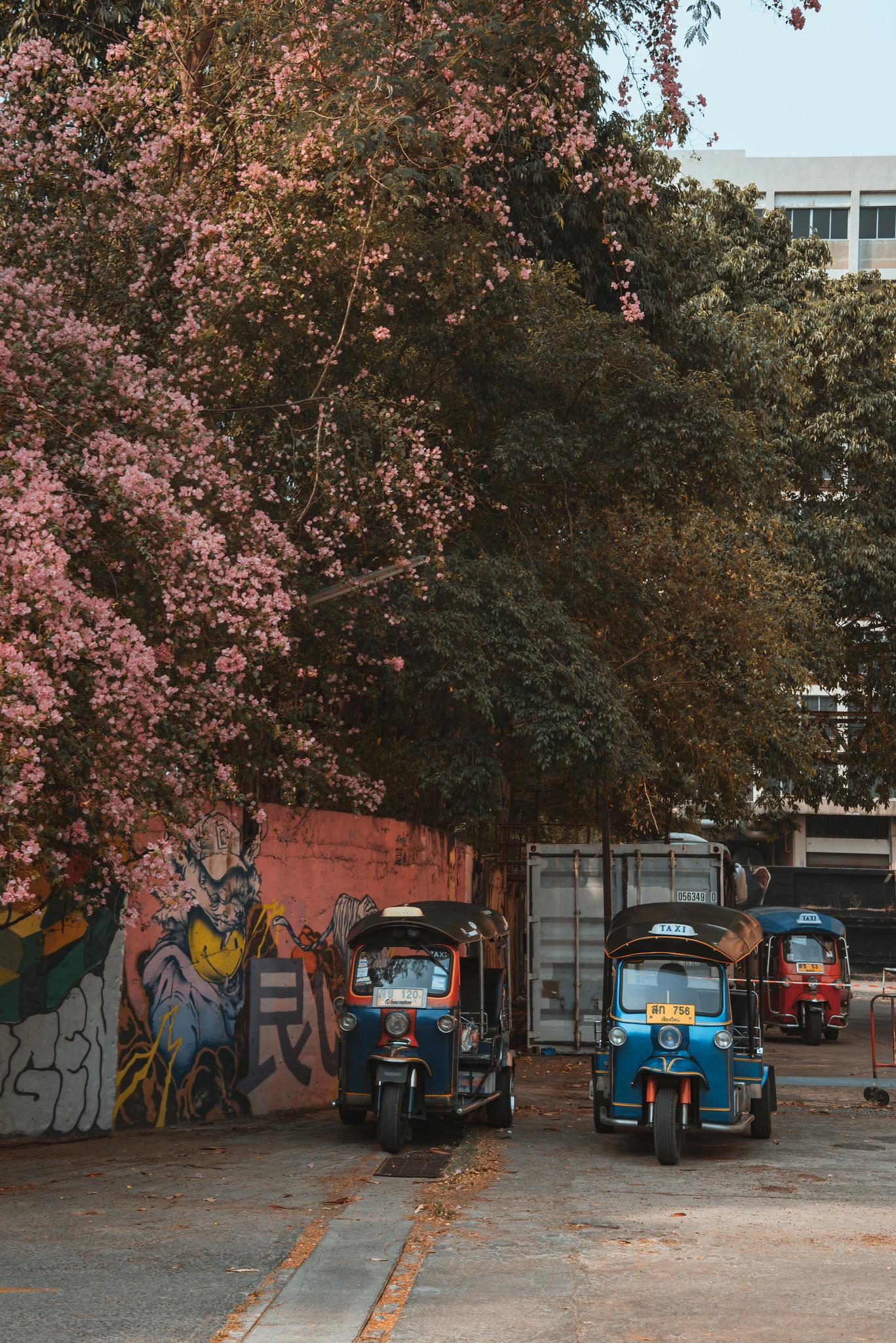
I booked a room at Lotus Pang Suan Kaew Hotel, which still retains the glimmer of a glorious past with wide and long hallways, Lan Na-style decorative patterns, along with full of amenities such as restaurants, conference rooms, gyms and swimming pools, despite its seemingly horrifying rusty appearance as if it’s abandoned.
In spite of my hesitation to leave the air-conditioned room after getting dressed up, I needed to venture out under the 38-39°C heat even though it’s almost 4pm. Perhaps the bougainvillea tree showcased its most beautiful blossoms in this weather. Under the dried, dusted and tired canopy stood a likable ice-cream vendor, I was so astounded to know that he understood some Vietnamese and was able to calculate the price in Vietnam dong.
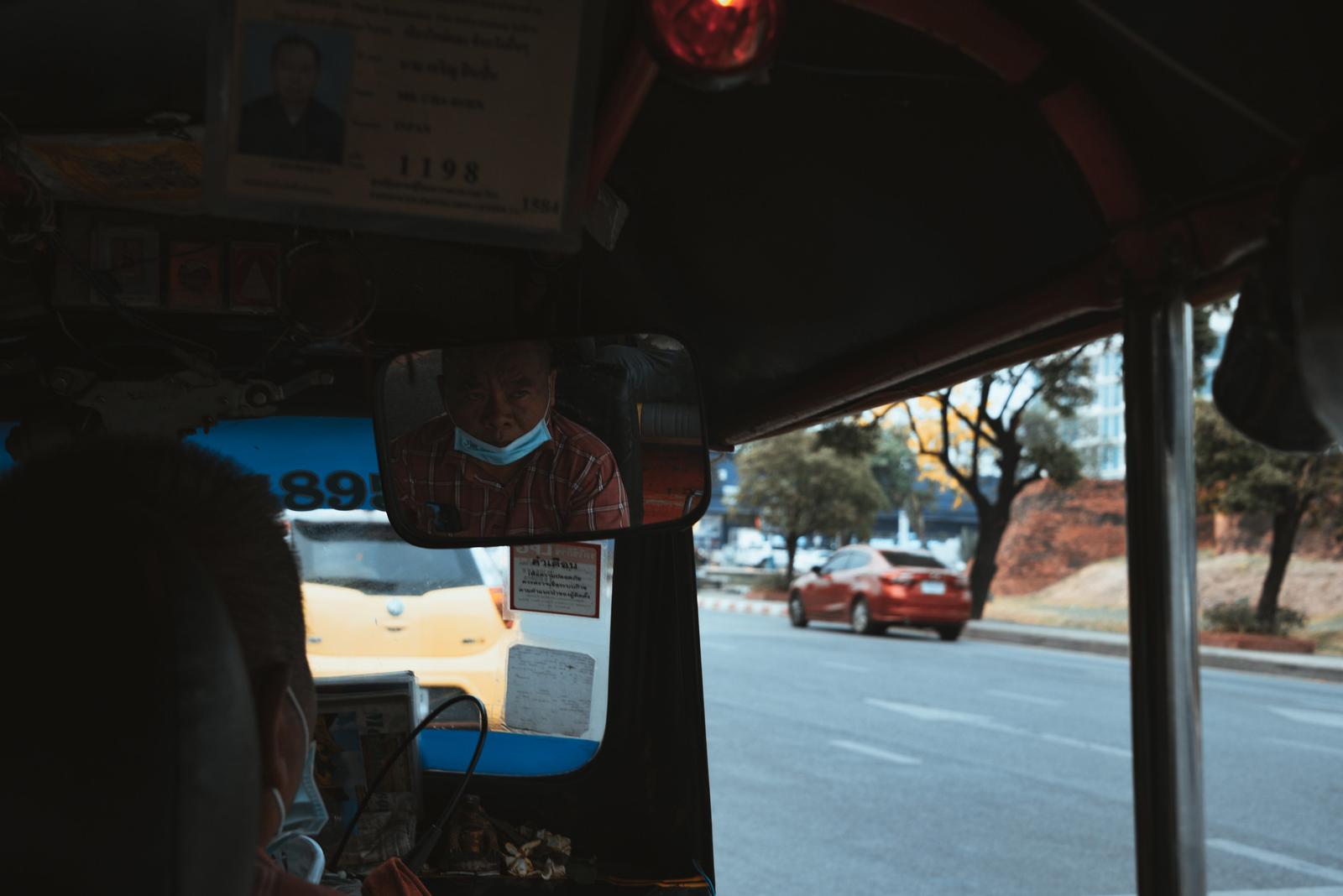
A characteristic of Thai streets is the tuk-tuks, the auto-rickshaws giving bumpy rides. If I had known about their overcharged fares, I would have opted for Grab from the beginning. Using Grab to book taxi in Chiang Mai is very convenient and fast, although it should be noted that you have to pay by cash as the foreign payment methods seem not usable in Thailand.
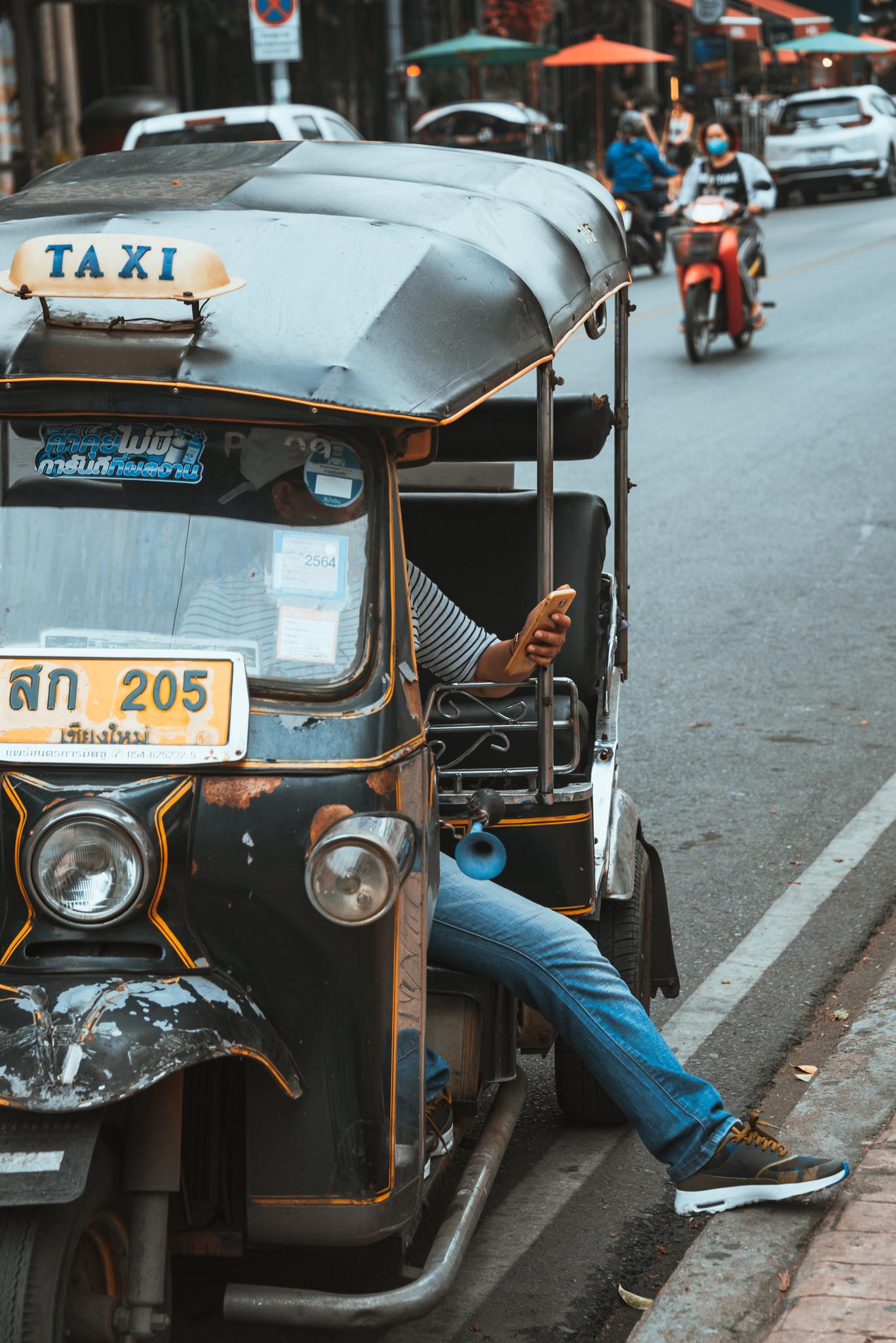
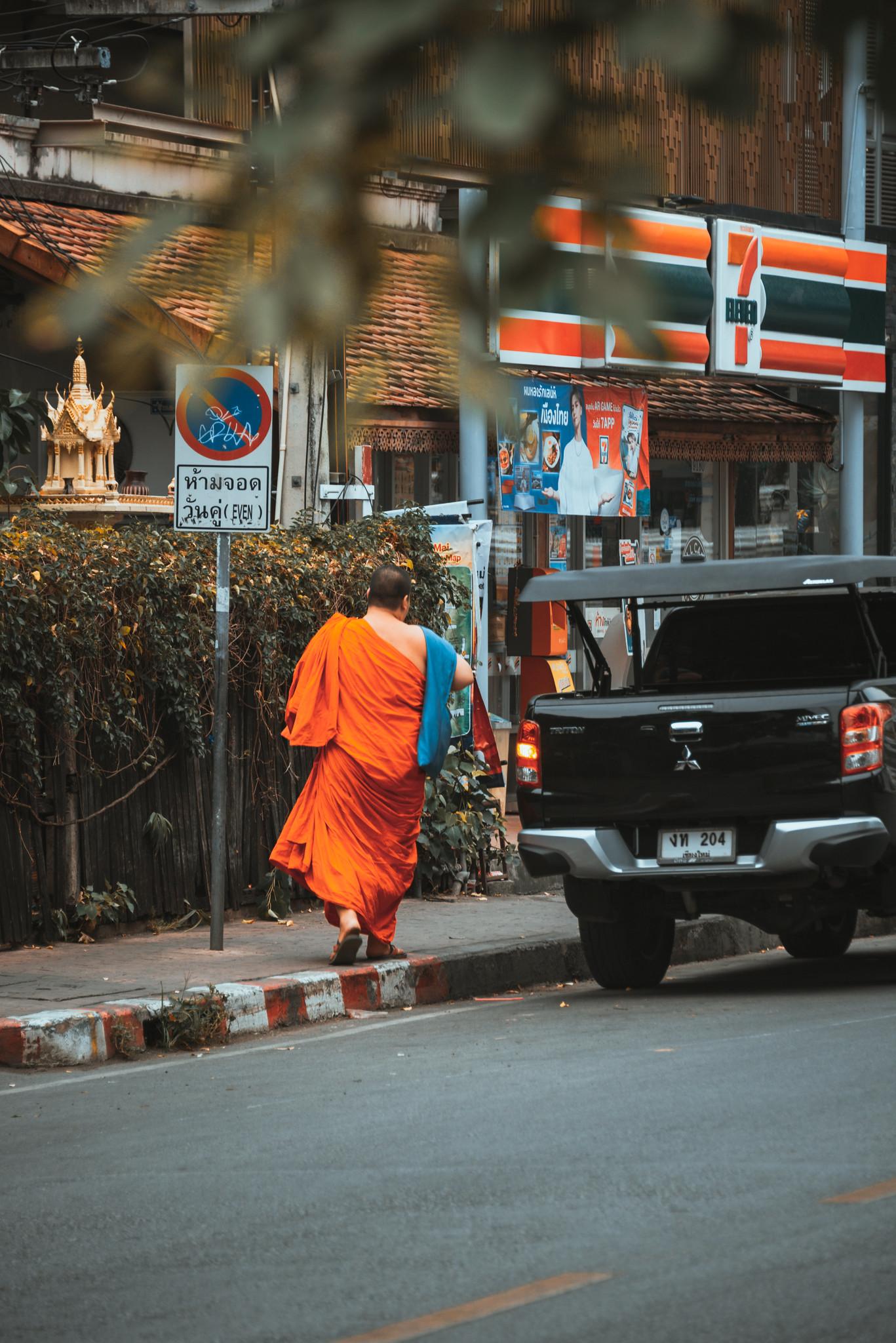
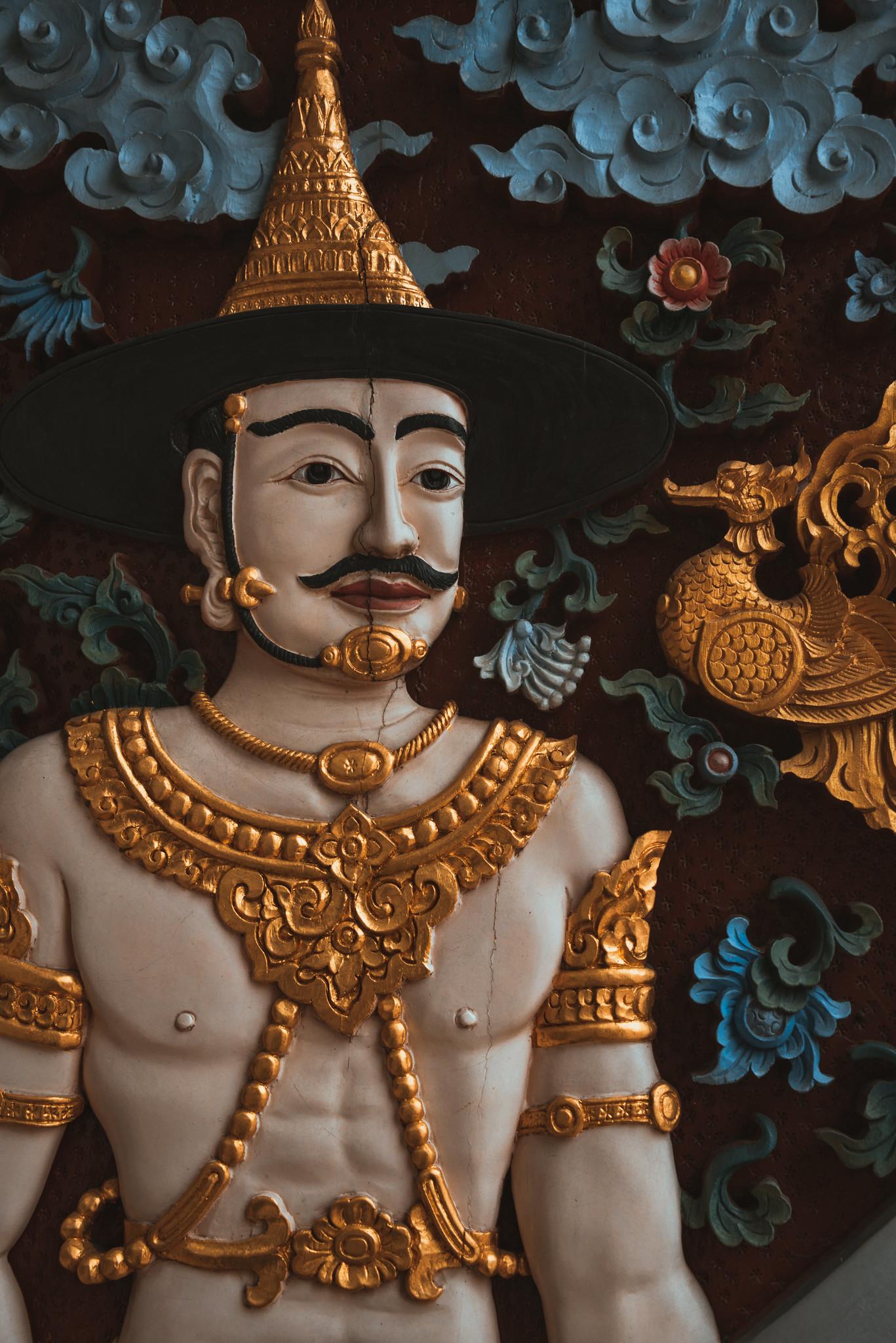
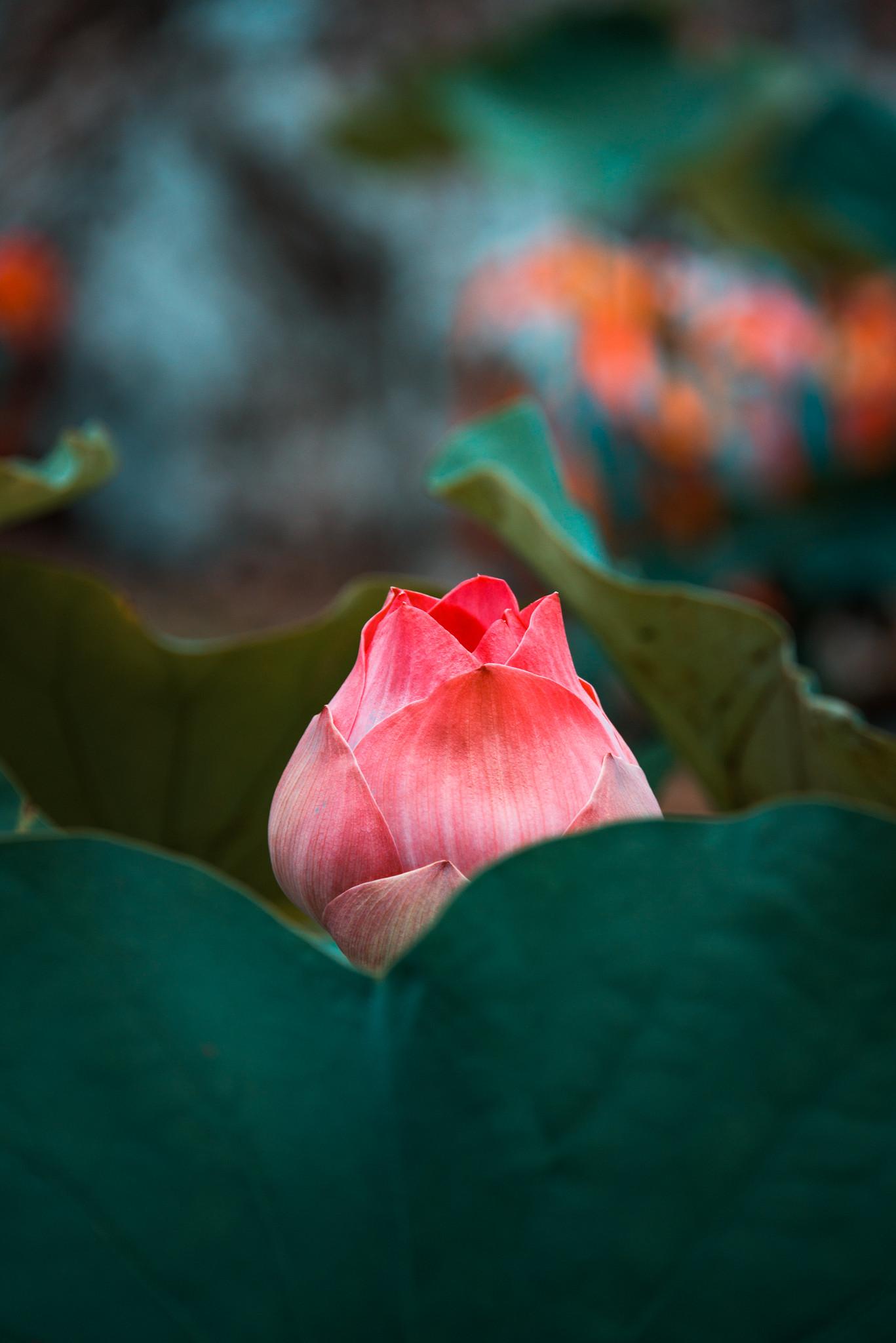
The black clouds was gradually enveloping the sky, but the atmosphere remained sweltering, a kind of outrageous weather.
Wat Chedi Luang
My first destination was Wat Chedi Luang (วัดเจดีย์หลวง), a pagoda situated right at the heart of the city. After walking for a while I finally found the way leading towards the ancient tall stone stupa.
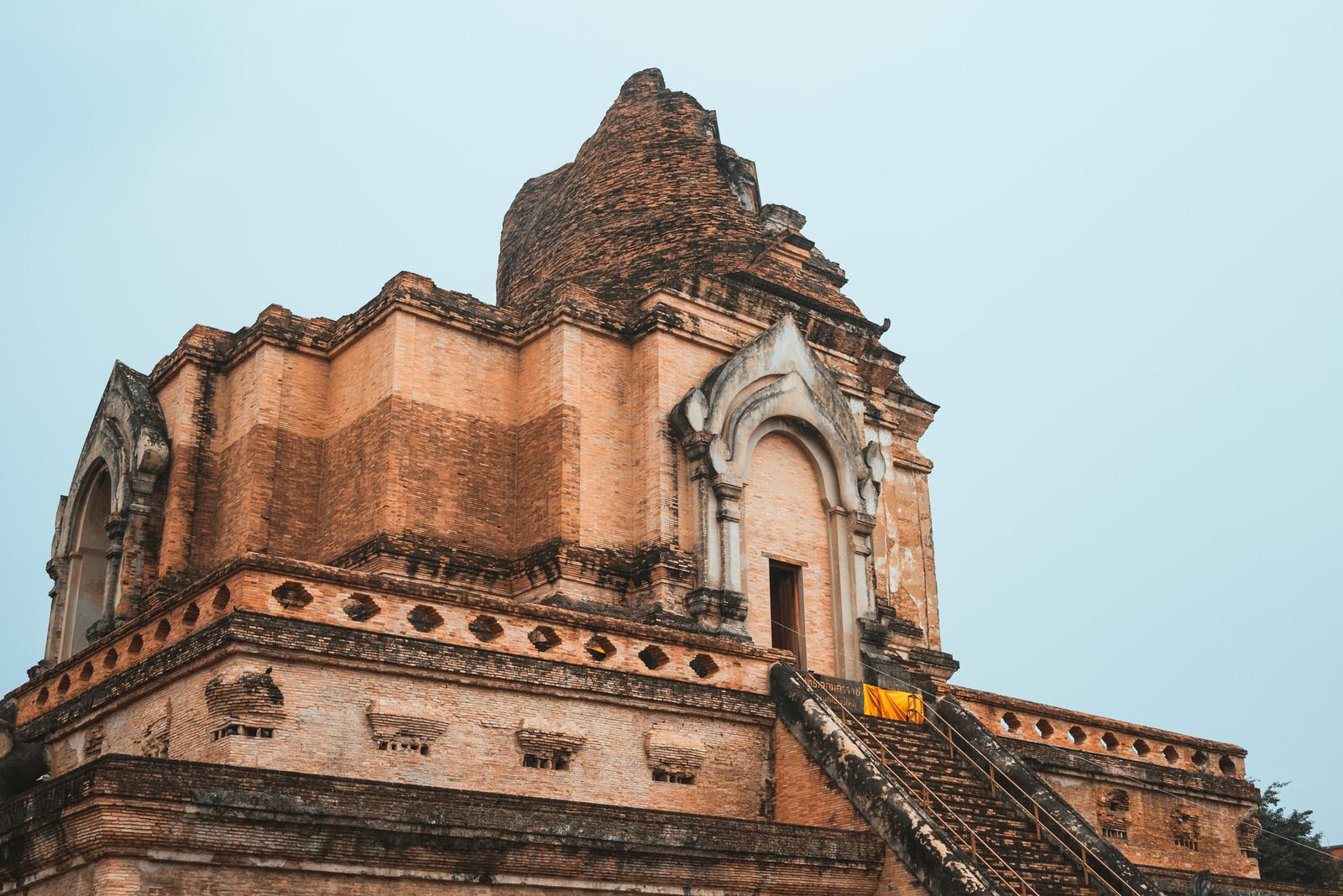
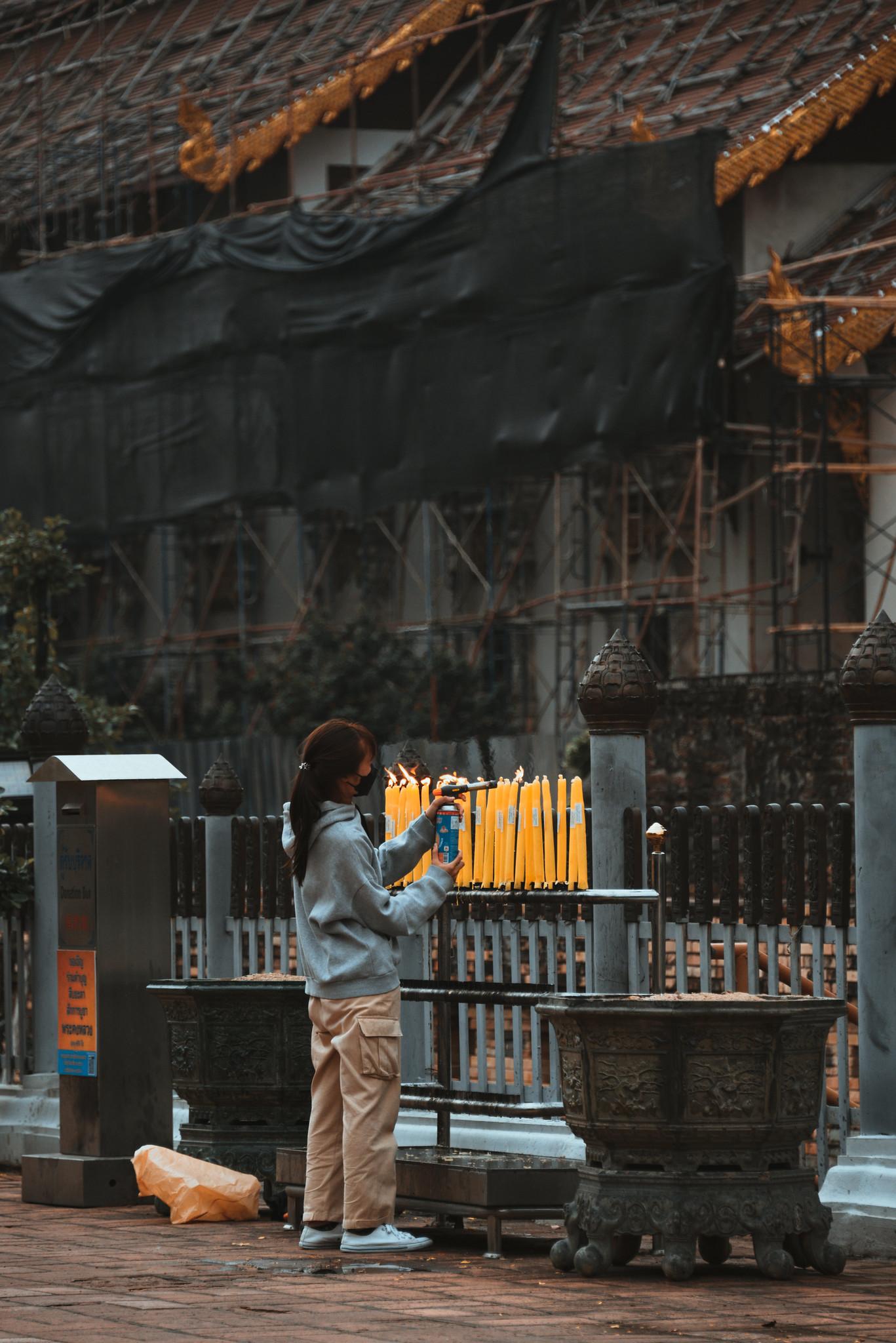
Amid this period Chiang Mai was overwhelmed with vibrant yellow hues from the golden shower tree blossoms, Thailand’s national flower, which is called ratchaphruek in Thai. This kind of flower blooms in the dry season, its distinctive golden color symbolizing Buddhism and harmony.
Wat Phra Singh Woramahawihan
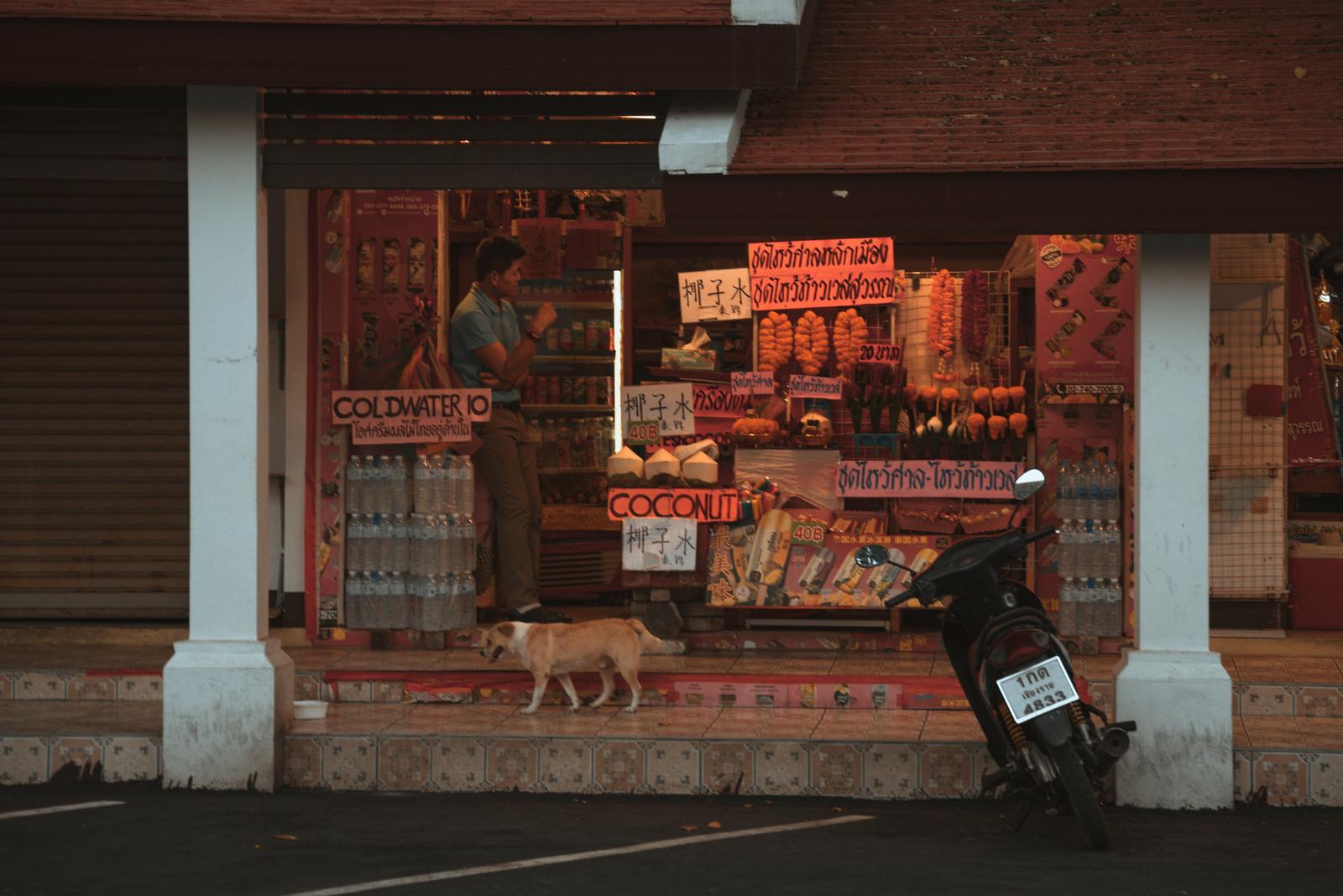
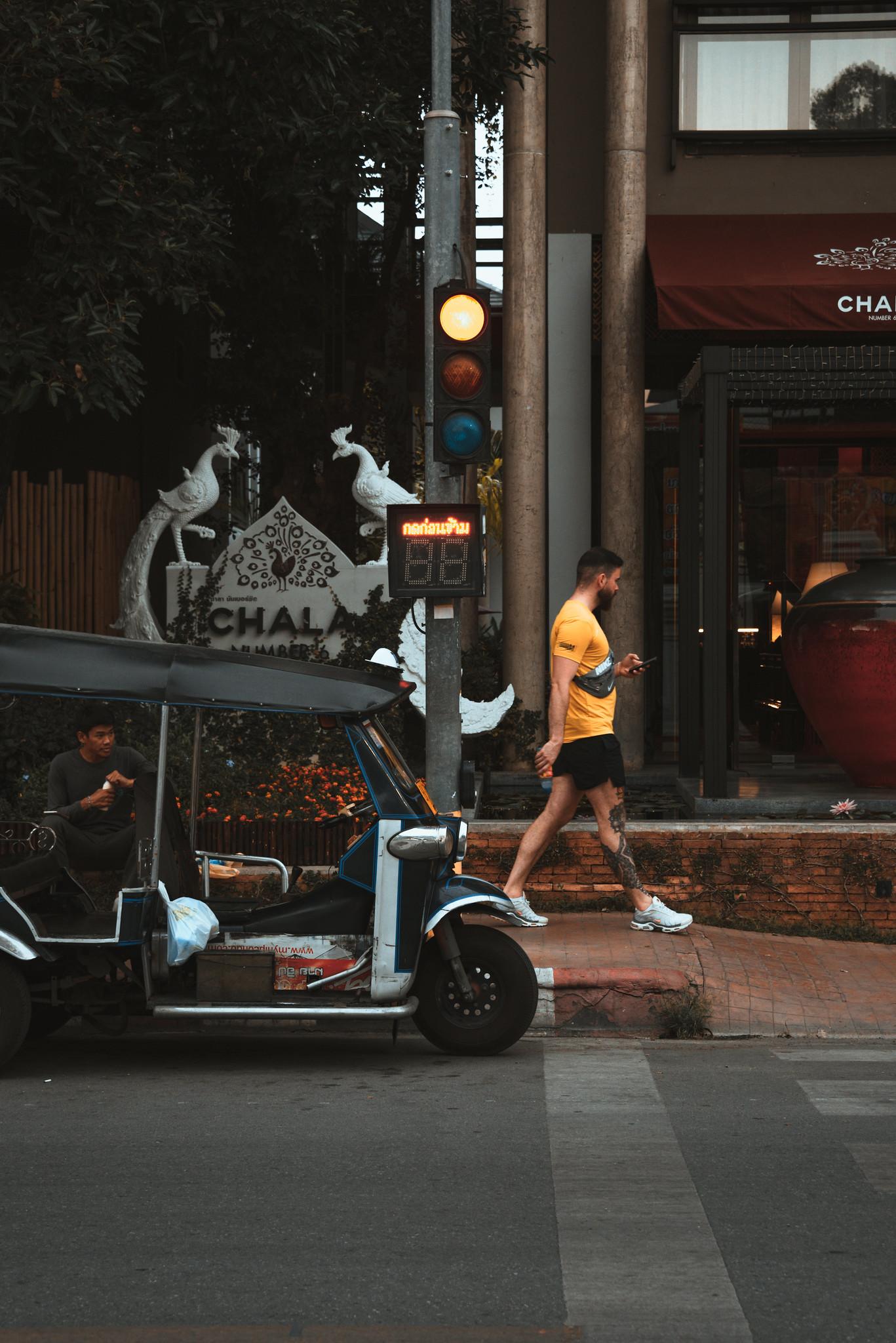
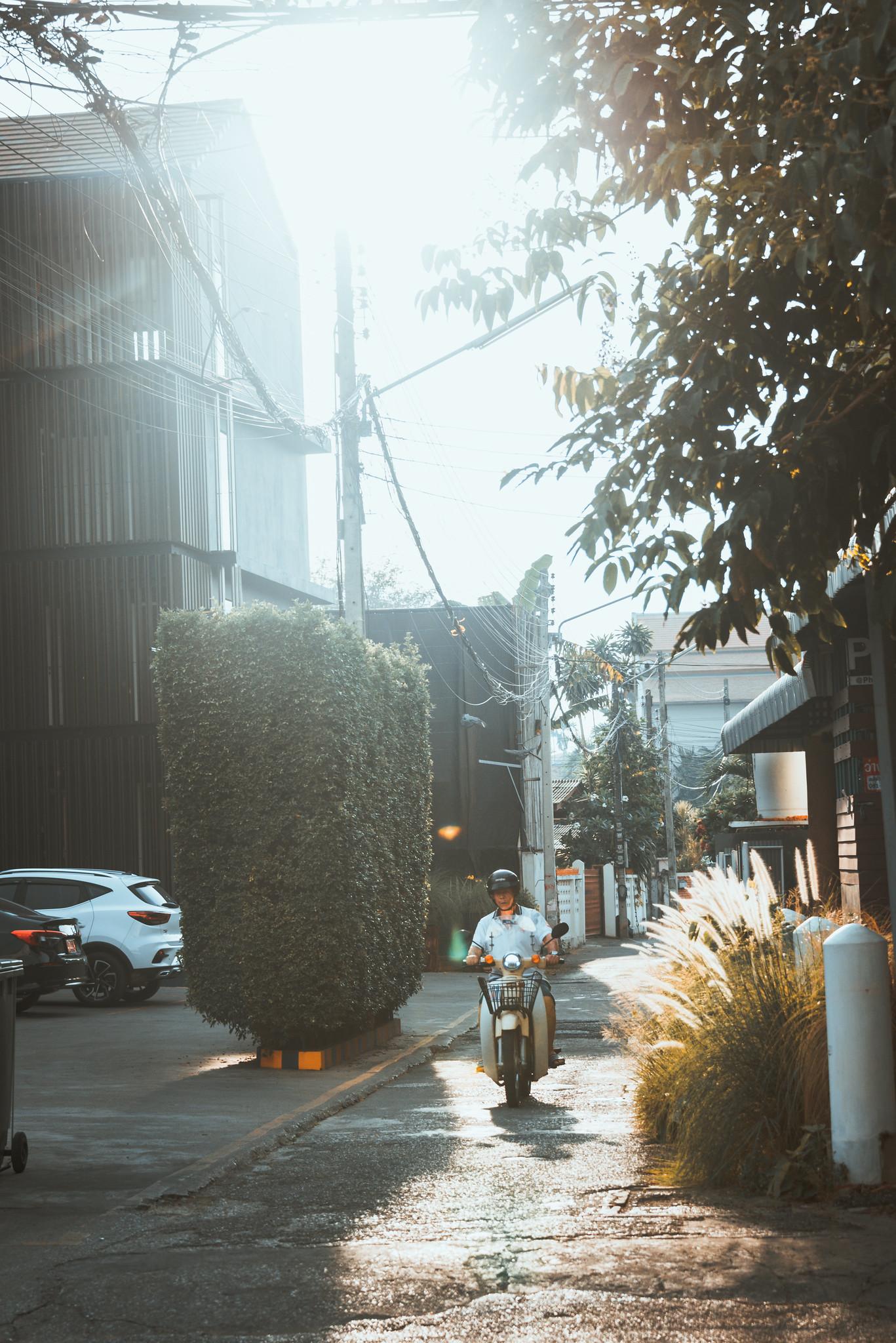
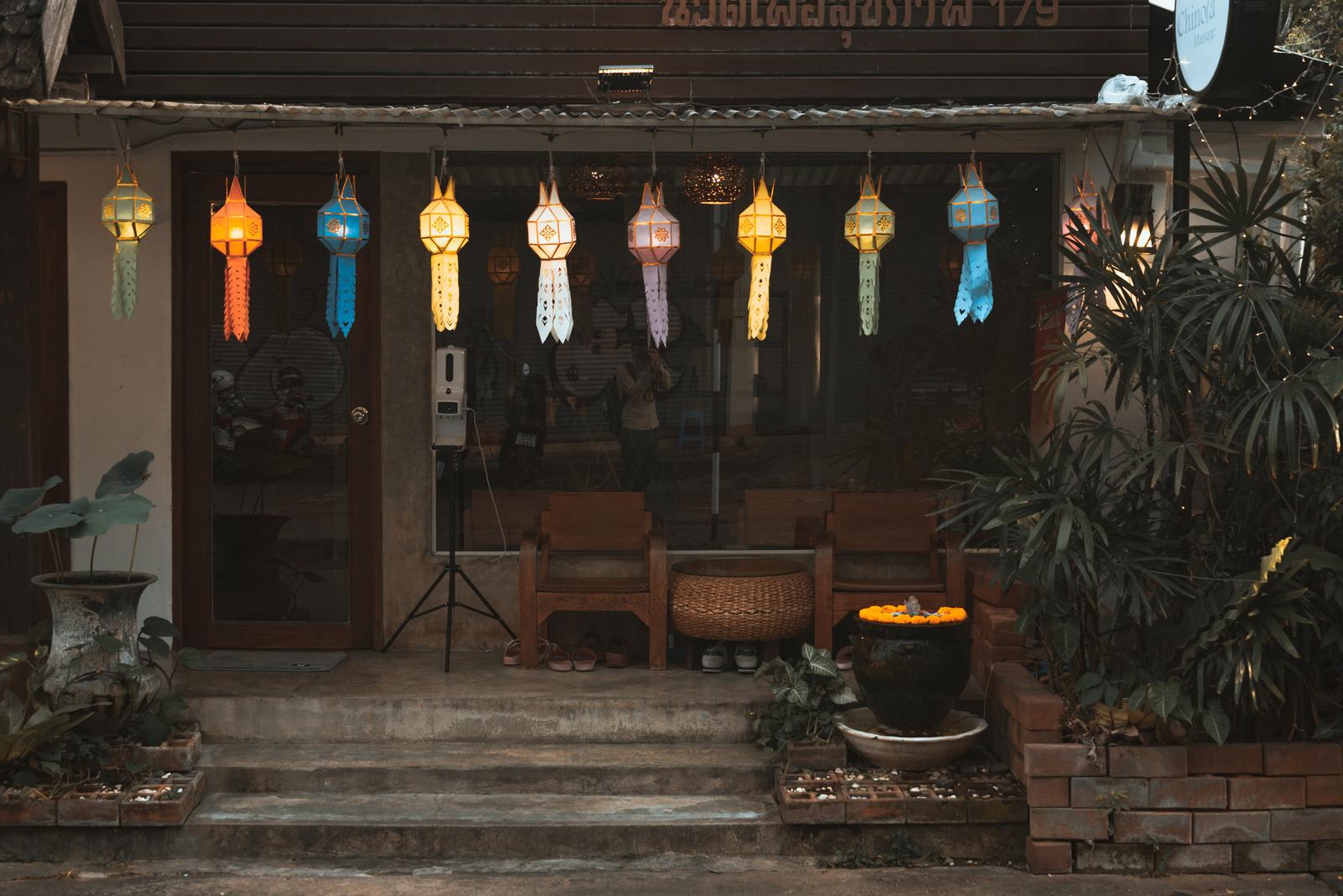
As the clock hands approached sunset time, I hurried westwards under the direct bright afternoon sunshine to reach Wat Phra Singh Woramahawihan (วัดพระสิงห์วรมหาวิหาร). This pagoda was also completed in the 14th century, with intricate ornate carvings showing us a glorious time of Lan Na arts. There still preserves the writings and Buddha statue dating back to hundreds of years ago.
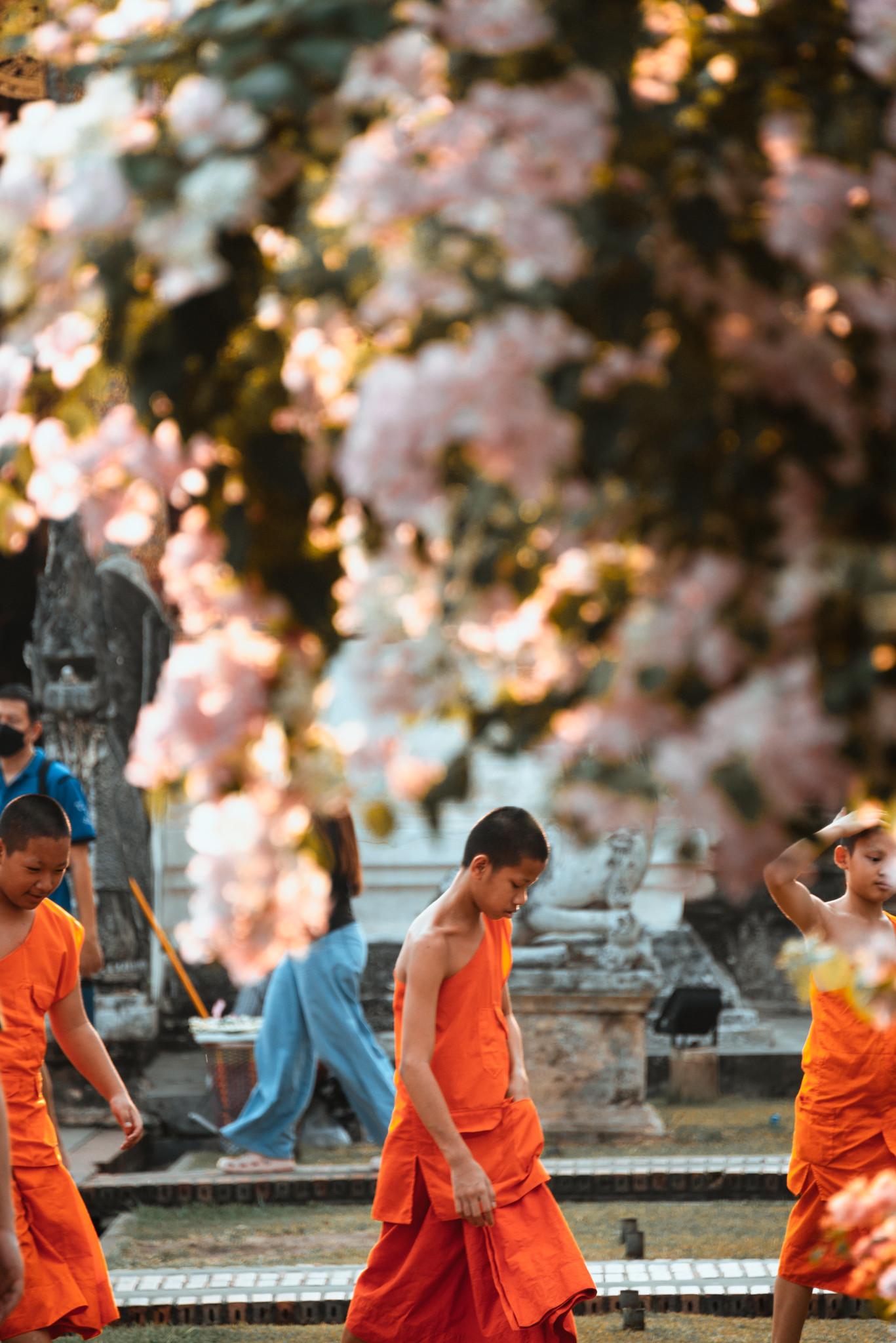
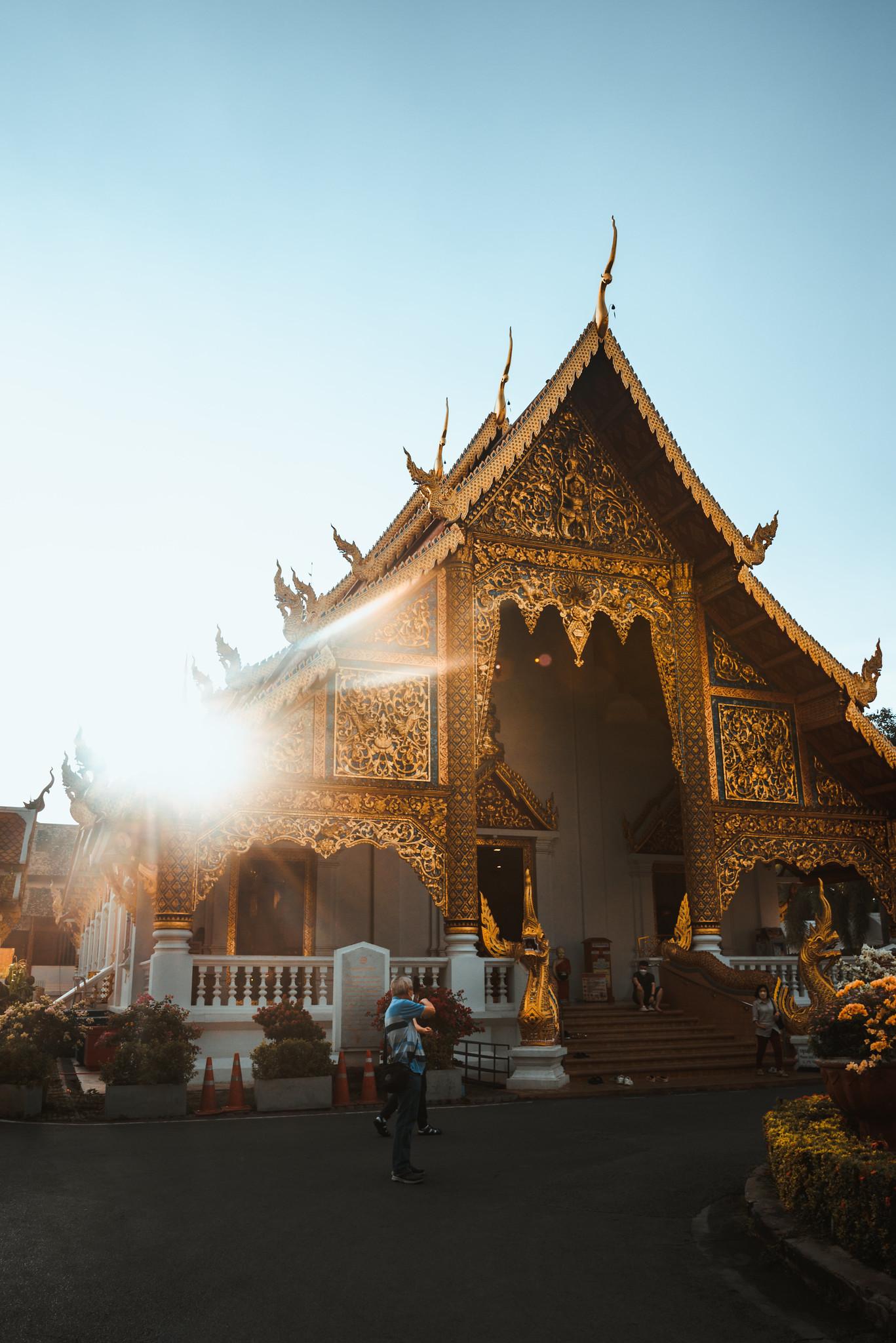
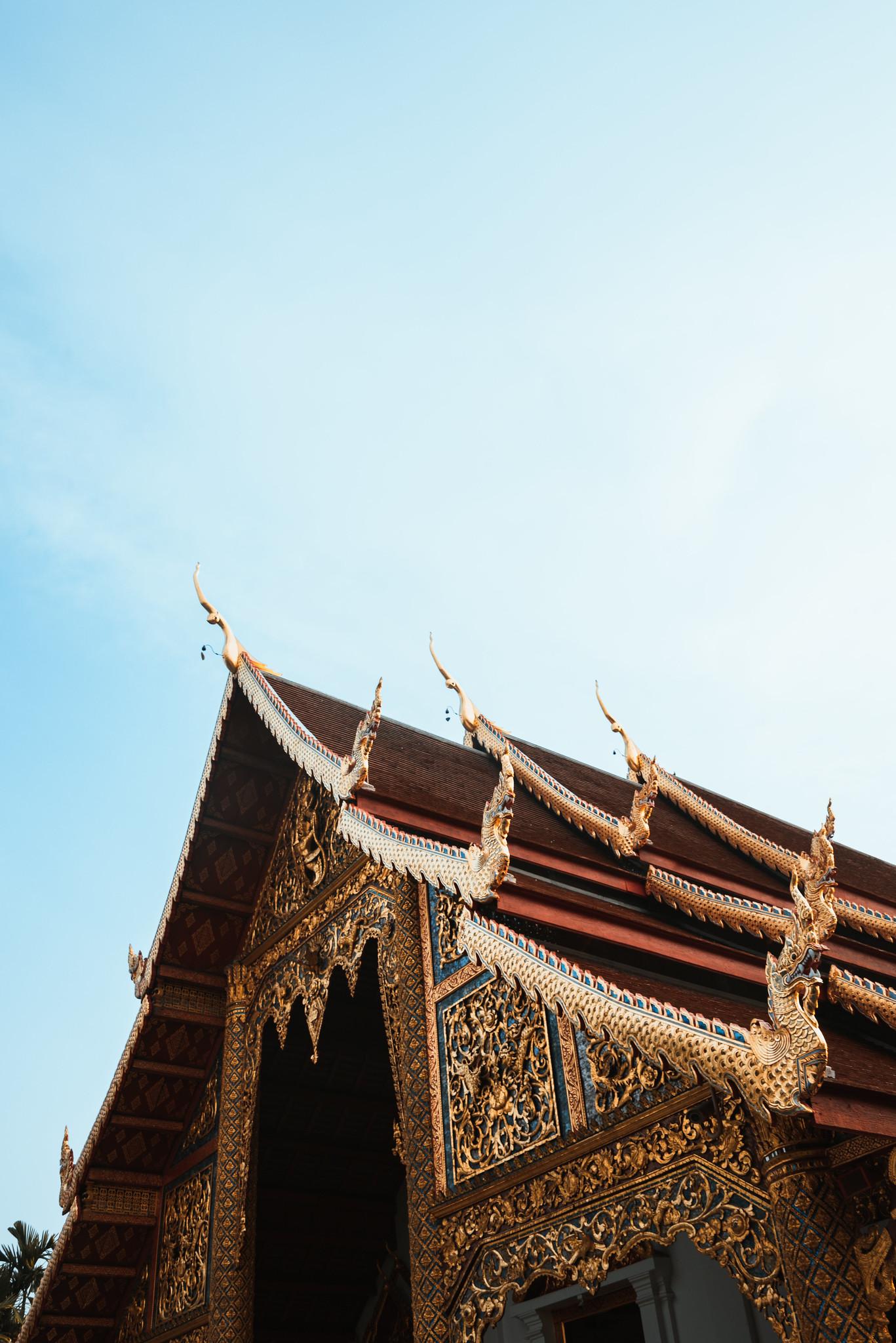
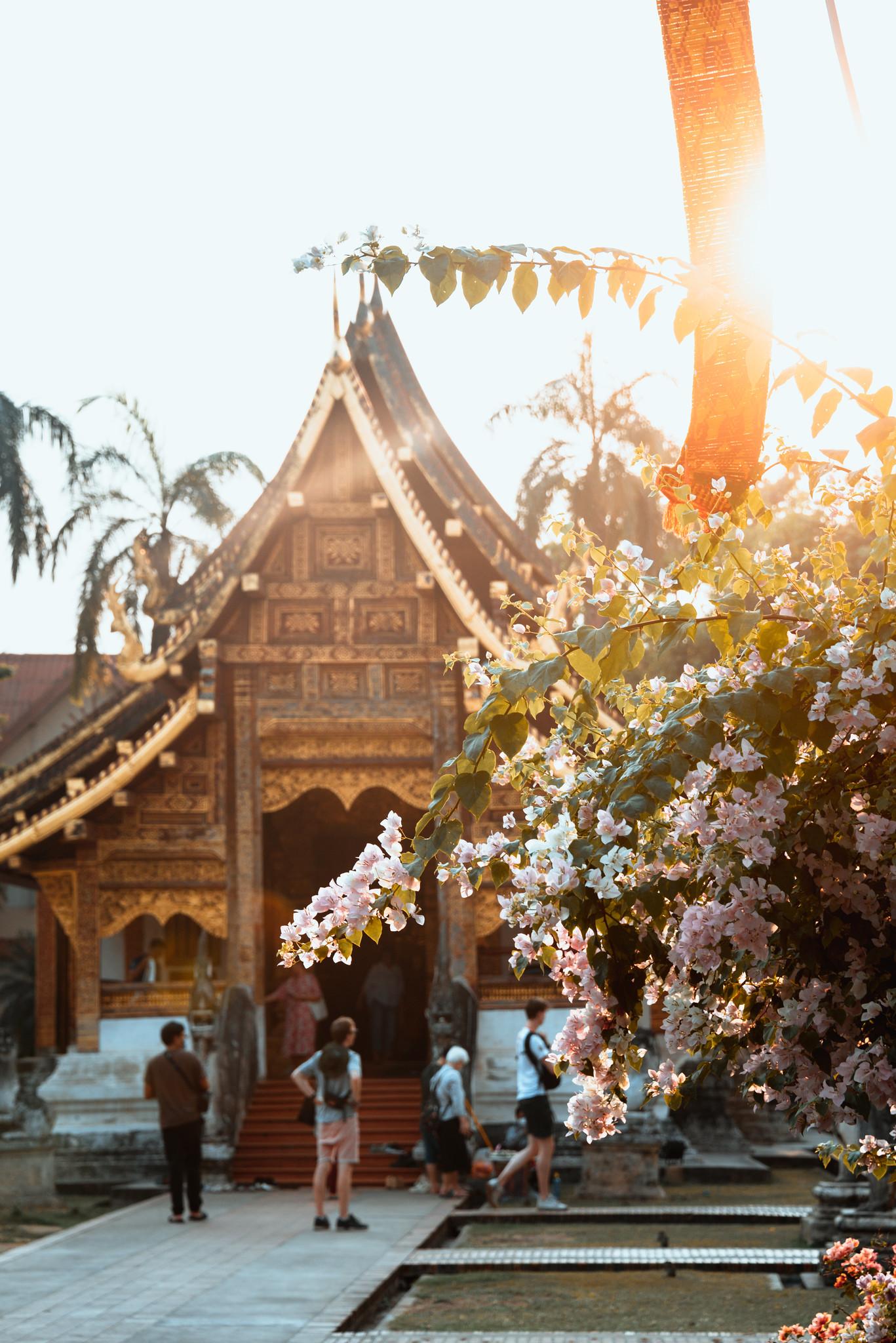
Upon purchasing an entrance ticket you’ll be given complimentary water bottles, and if you happen to encounter some monk from the pagoda, you’ll receive a warm welcome from him in English.
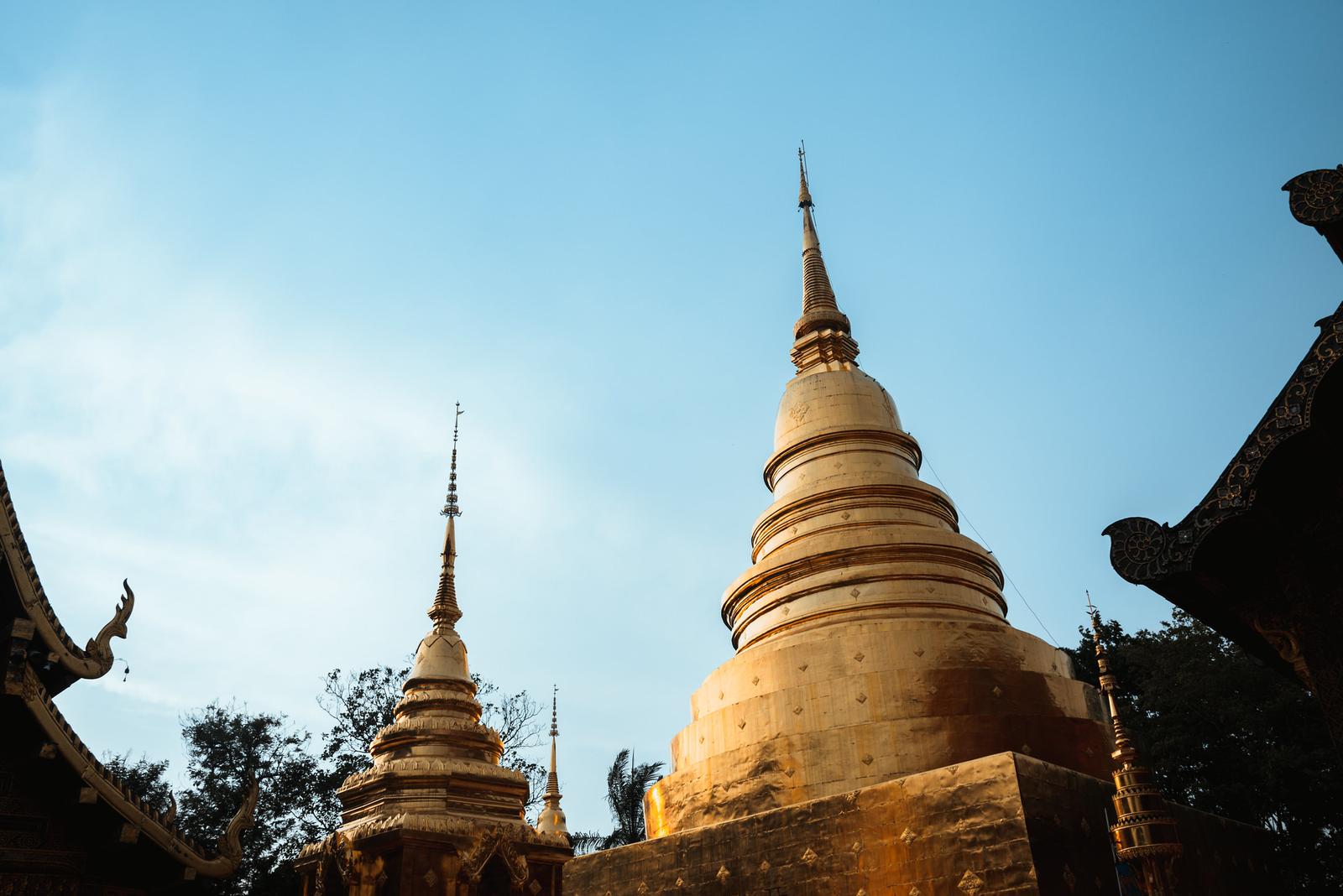
As the pagoda is oriented towards the east, when taking a photo you can witness the glamorous setting sun serving as the backdrop.
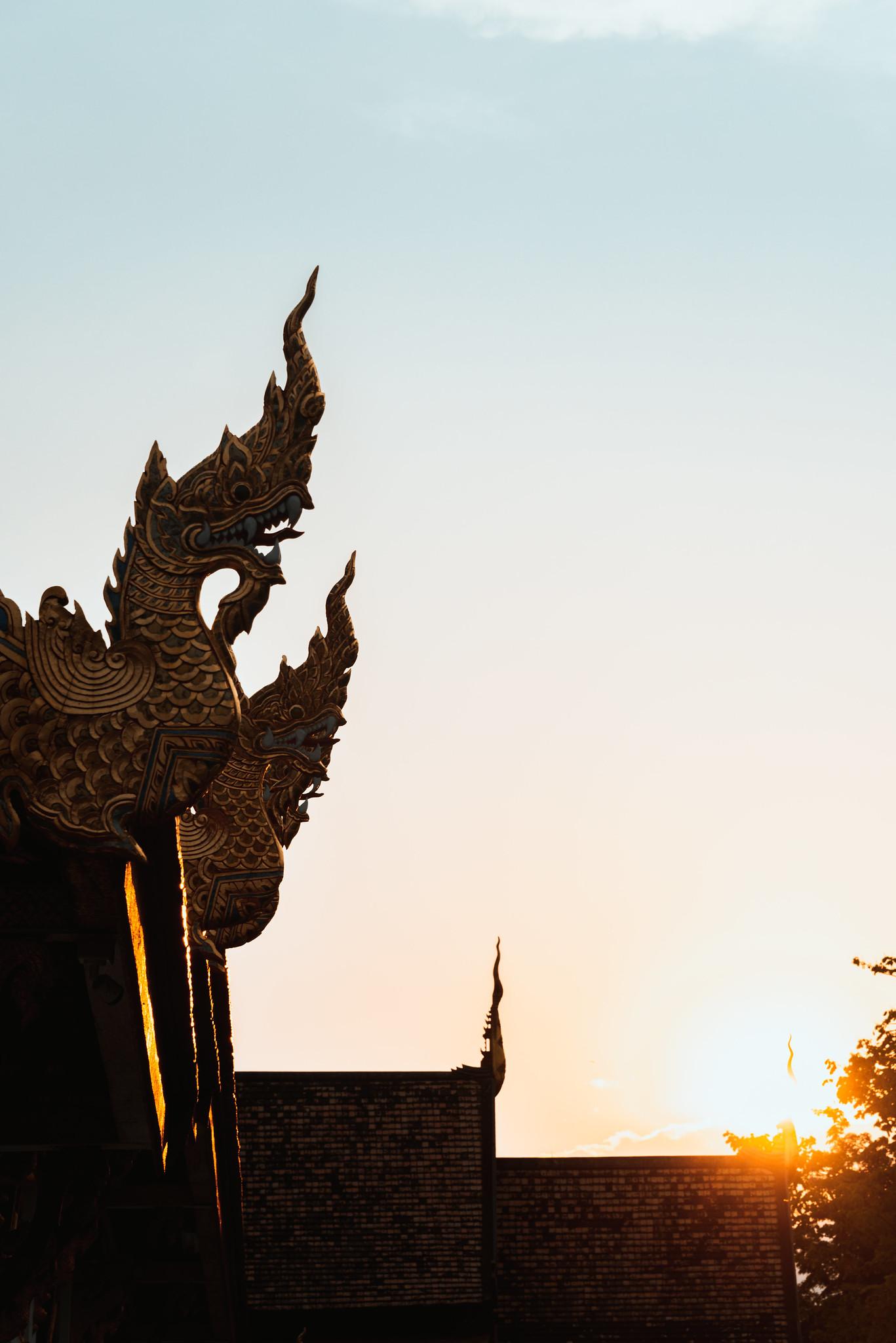
And the flawless white bougainvillea canopy was bathed in the last sunshine of the day. The monks were in their orange robes, calmly and slowly preparing for the upcoming ceremony.
The night had fallen and I came by a fruit juice stall to quench my thirst, then heading to a little restaurant to taste the comforting sour tom yum, which could relieve my body heat. Following that I wandered down the slope in the sunset direction towards my hotel, where the mountain had its mark on the horizon. It’s such an inexplicable feeling, because the street was so spacious yet so serene and uncrowded; this city is an ideal place for those nomads seeking escape from the hustle and bustle, at the same time it still offers the modern conveniences.
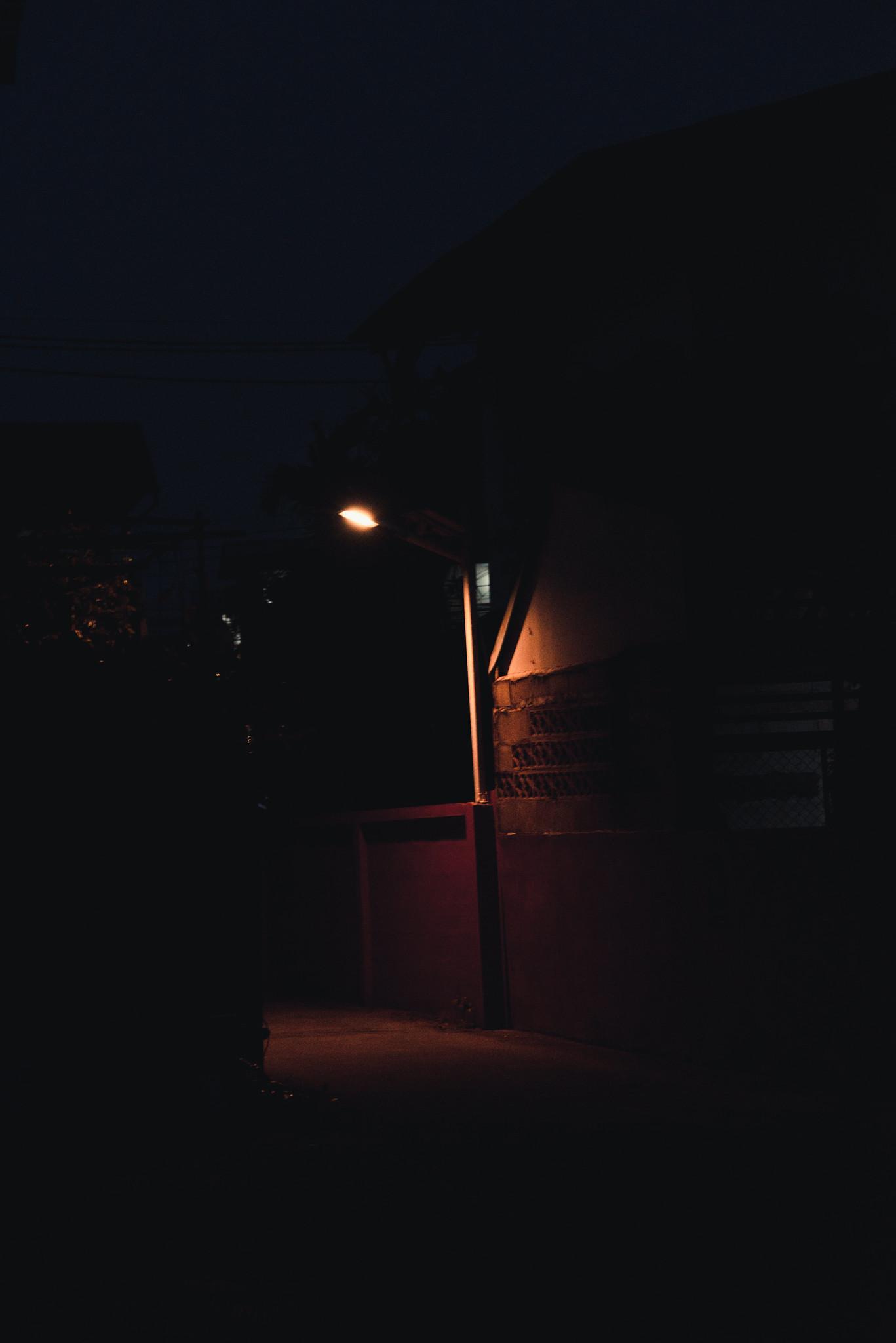
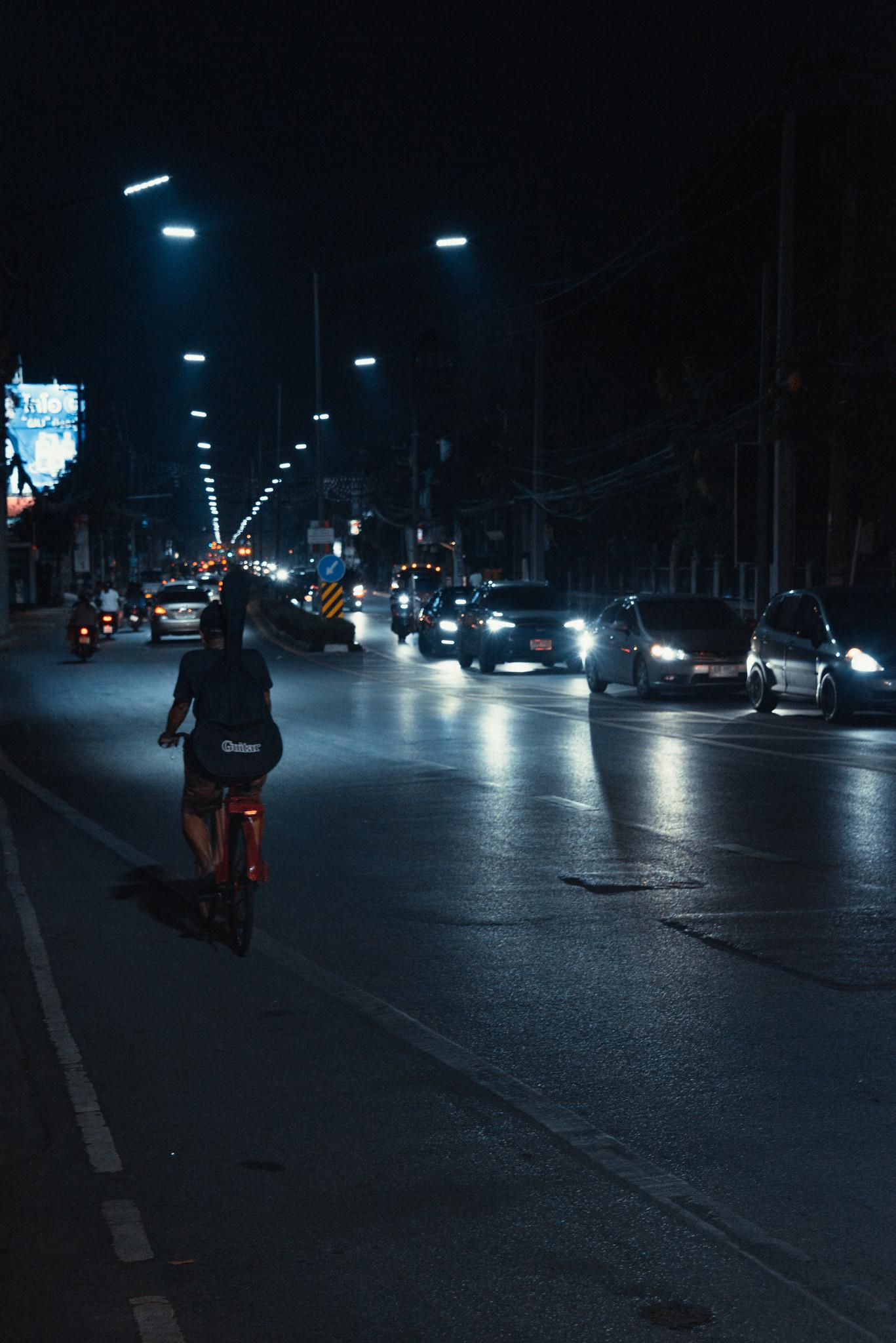
The Journey to Hmong Village on Doi Pui
The second day in Chiang Mai was filled with the scorching land’s haze.
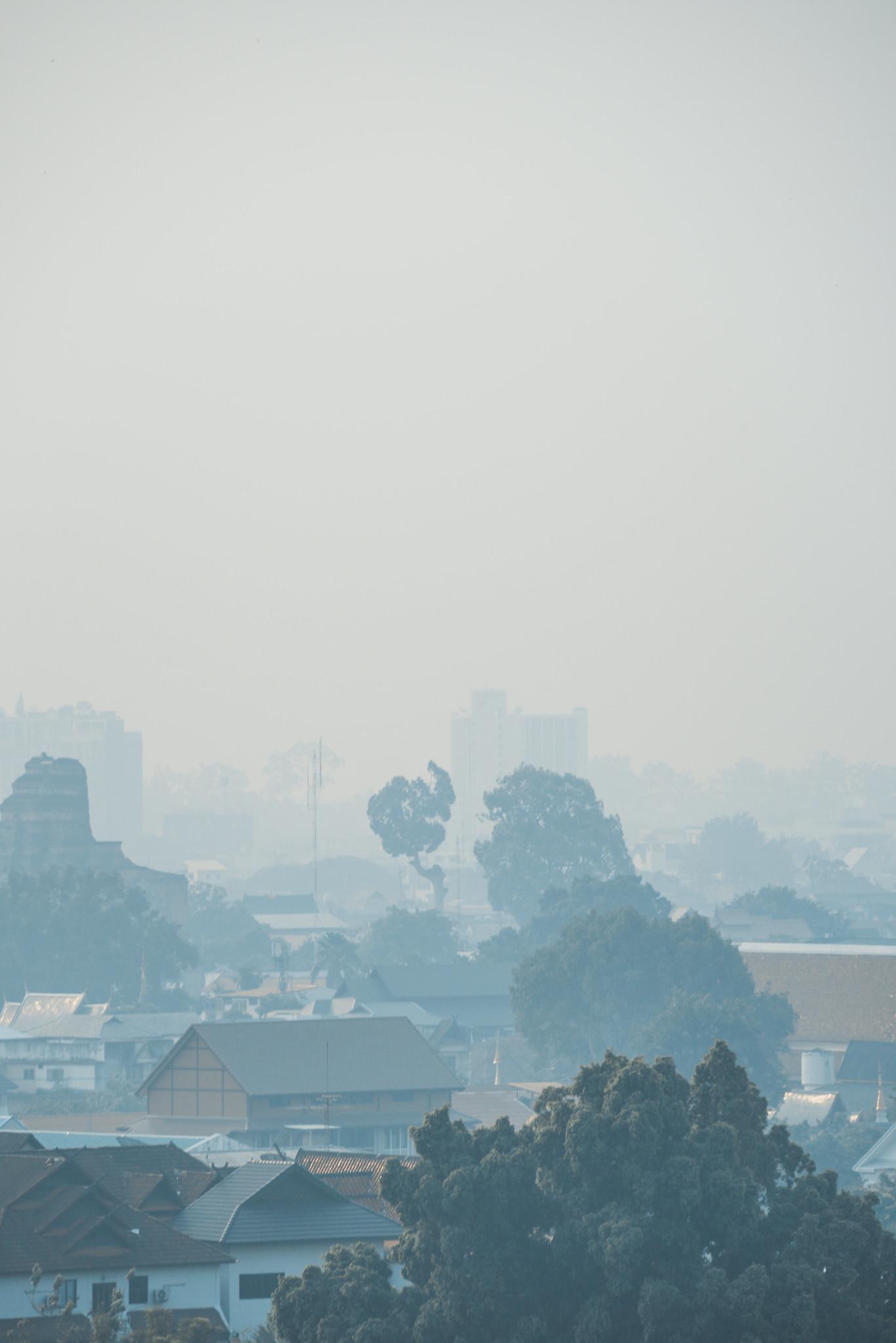
I hopped on a tuk-tuk to go to Chiang Mai Zoo, where the songthaews (red truck) were awaiting, they are the typical means of transport in Chiang Mai. Since at that time there’re no other travelers to share the seats with, I had to negotiate with the driver for a full tour to Doi Pui and Doi Suthep.
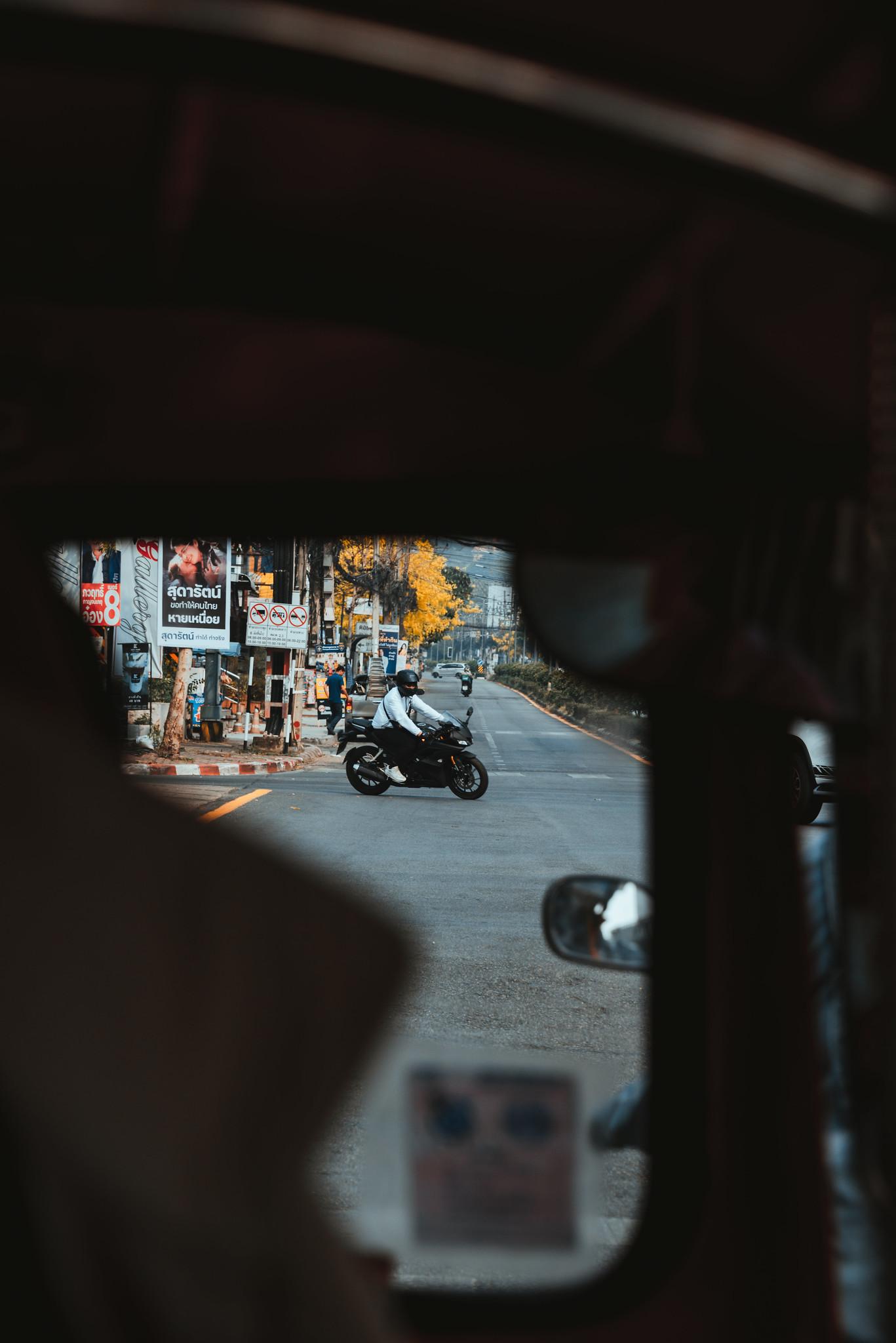
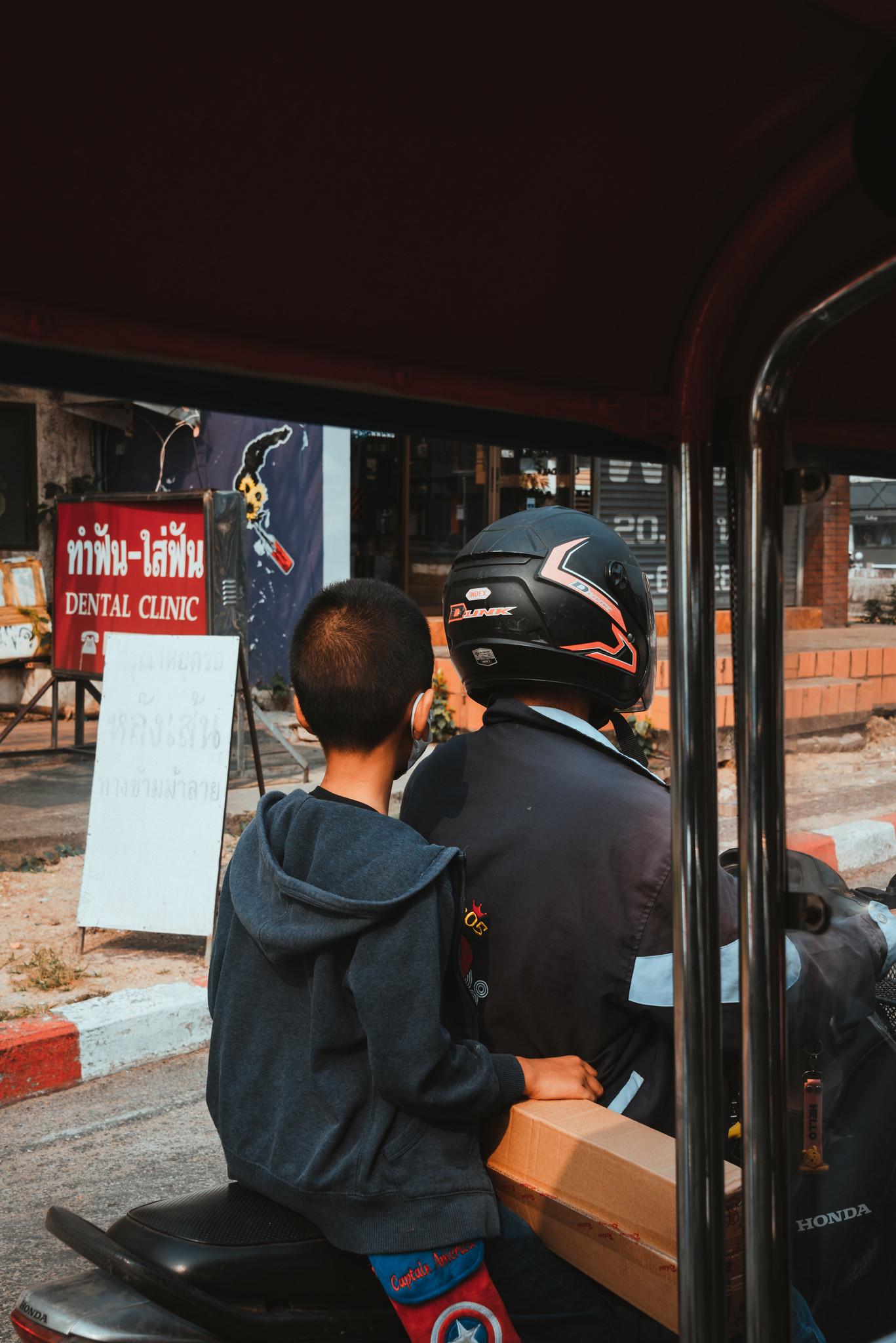
It was only myself sitting inside the truck body, where the twisting passage and the trees receding into the distance could be seen behind me. The atmosphere became cooler as our truck was ascending. Upon arriving Doi Pui, I already stood at an elevation of 1,685m.
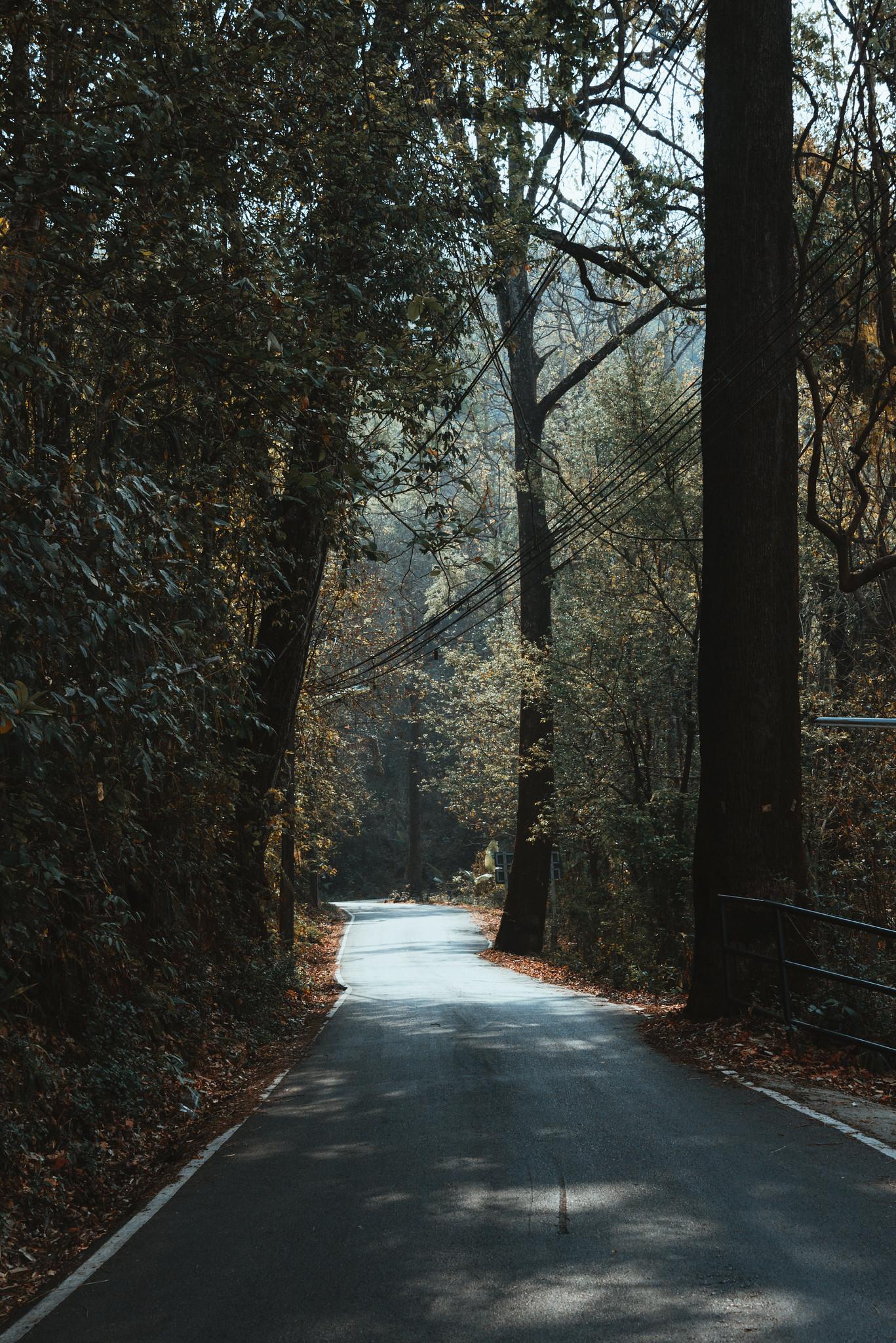
The pass here is quite beautiful and uncrowded, so I think renting a bike in Chiang Mai to explore around the city could be a better idea.
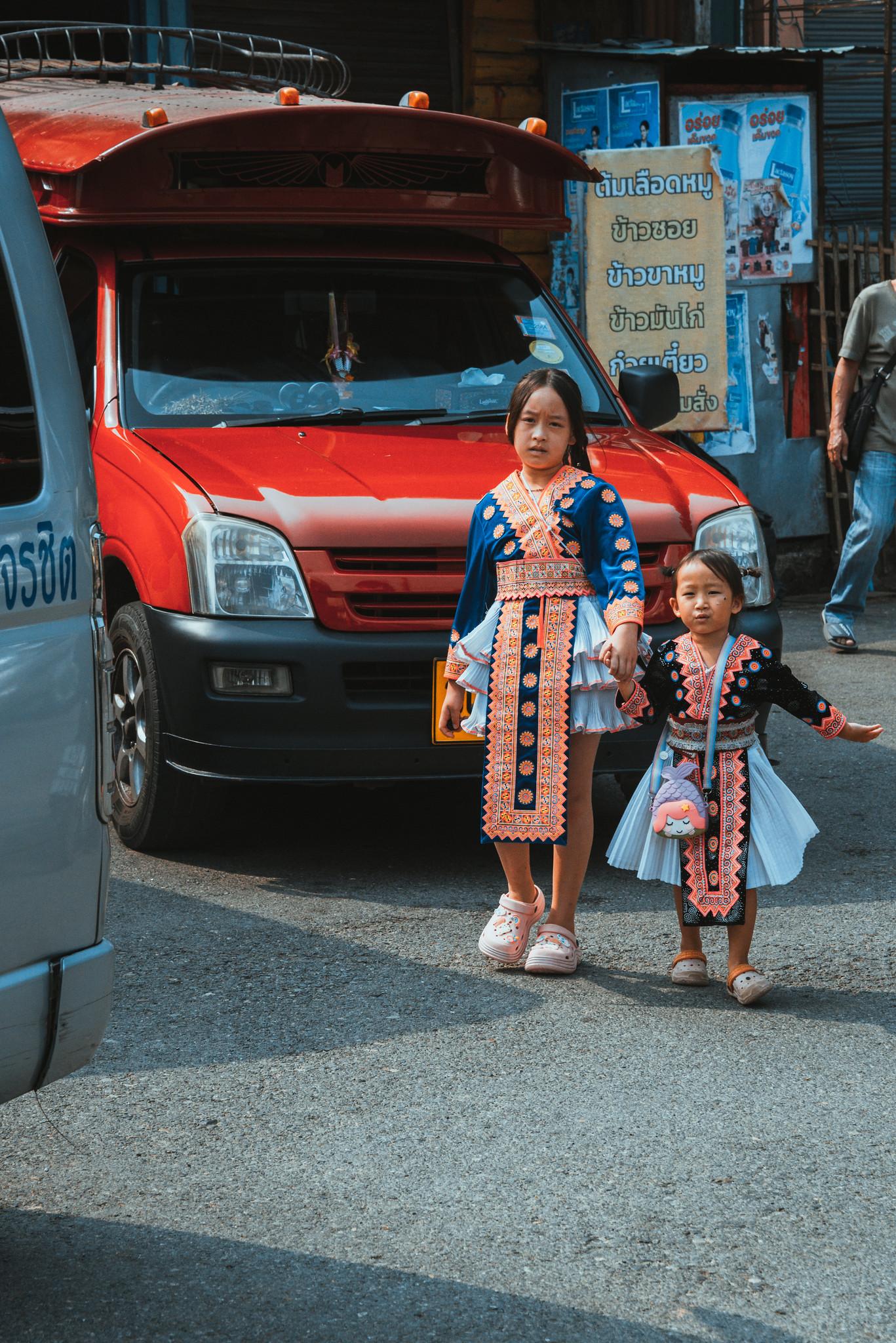
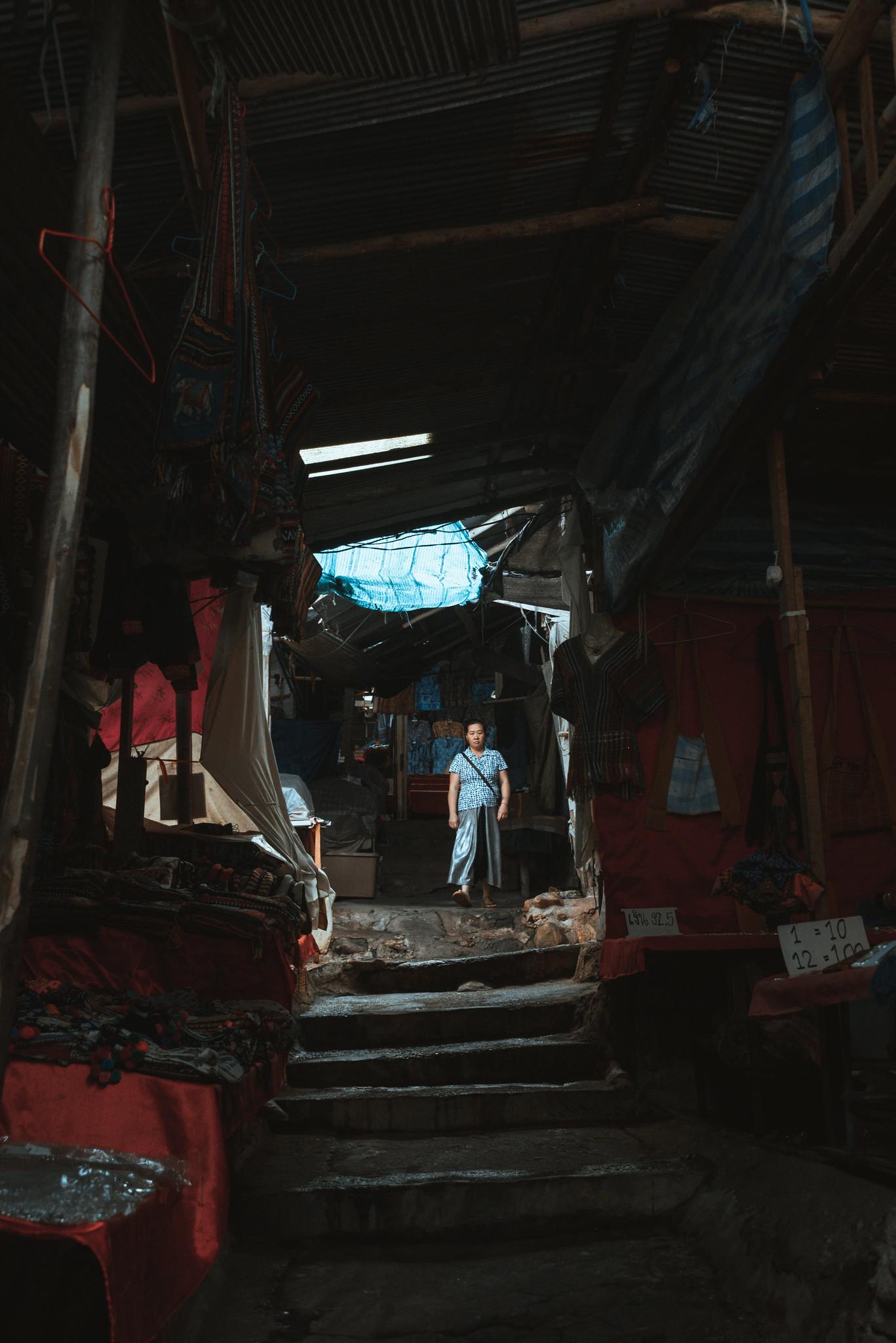
The Hmong village is rather similar to the tourism villages in Northwest Vietnam, meaning that it’s quite touristy with an array of shops selling costumes, souvenirs, and some little services such as crossbow shooting or private museum. However, the price is quite inexpensive and it’s not a common sight to see the kids attempting to wheedle our pocket money.
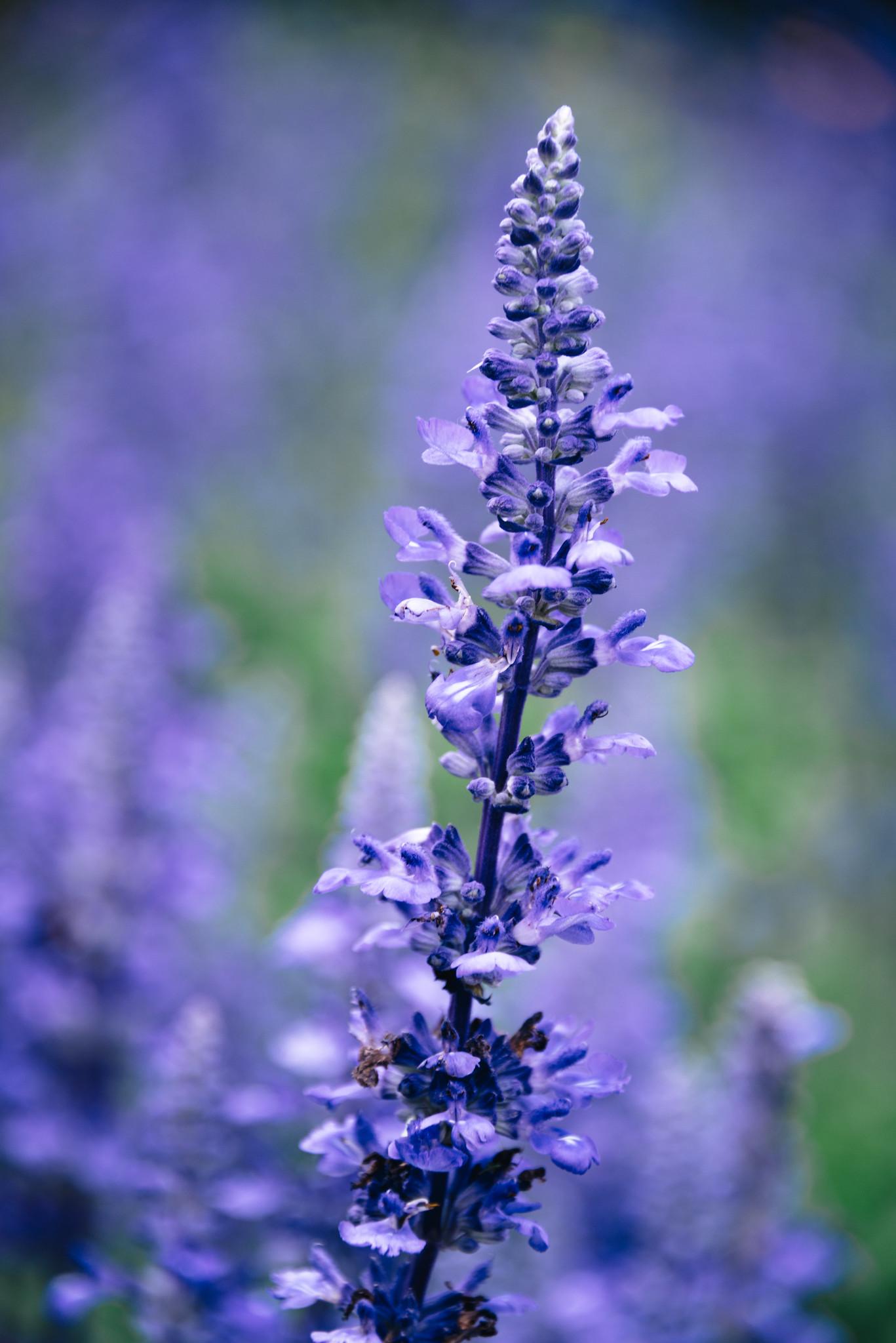
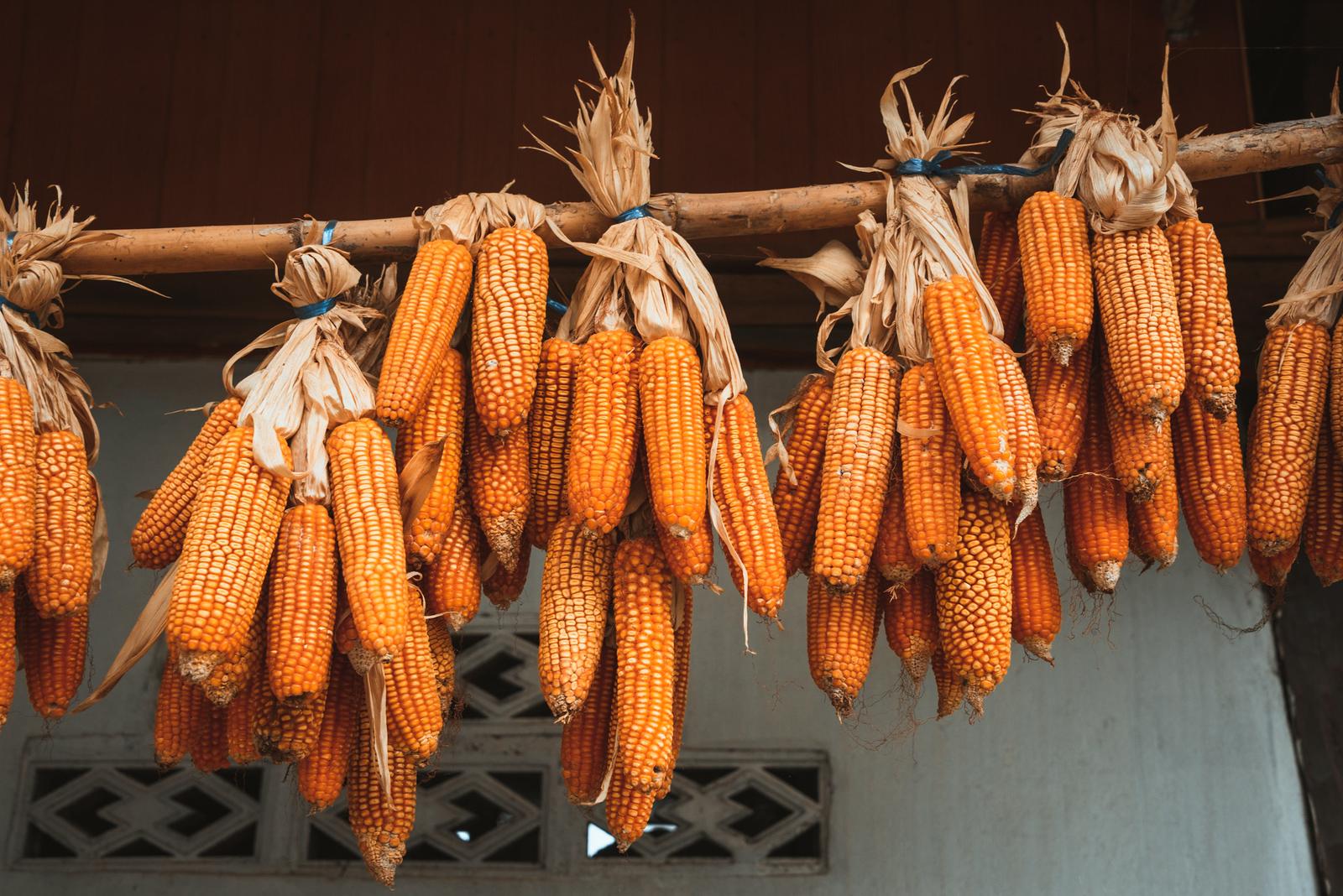
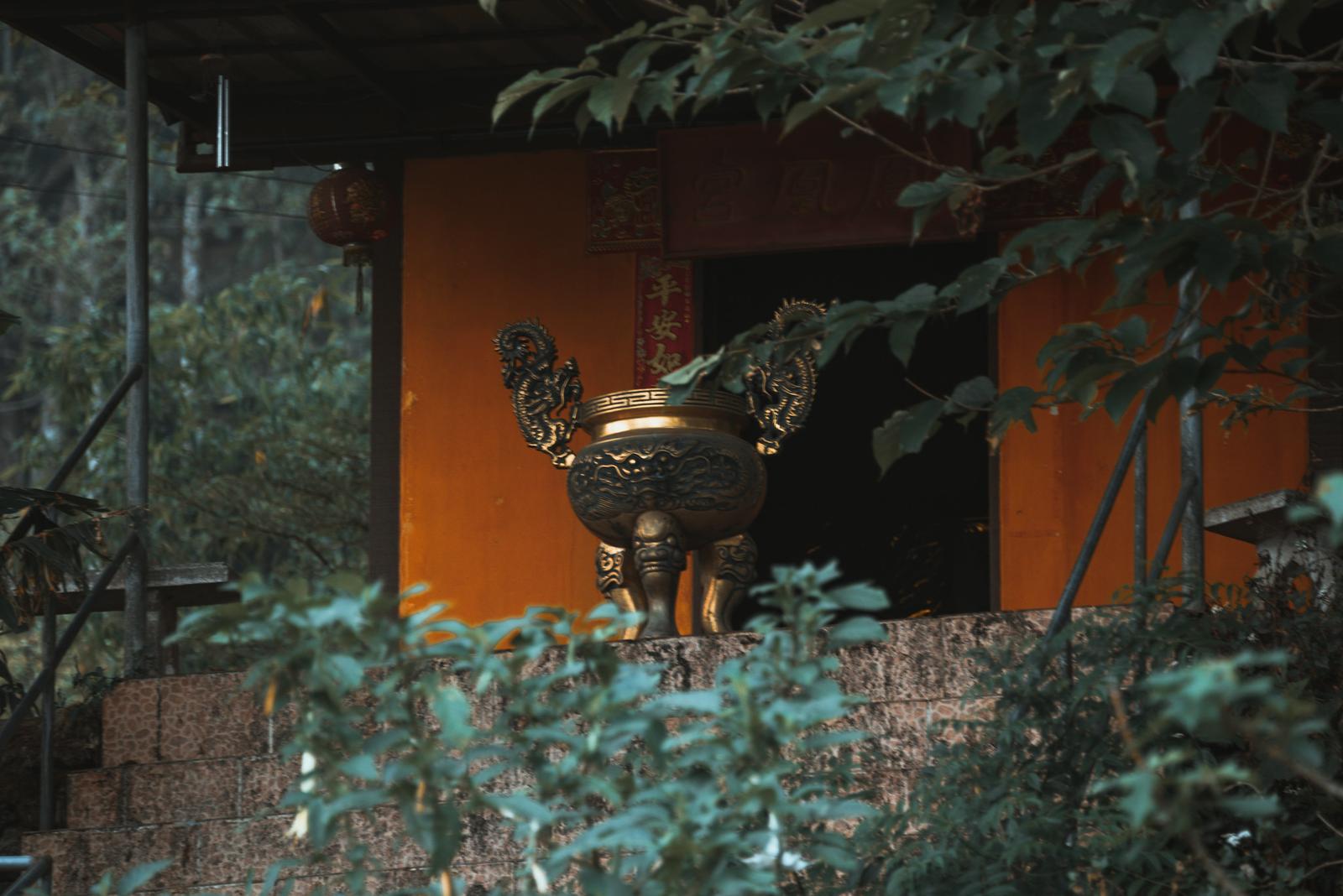
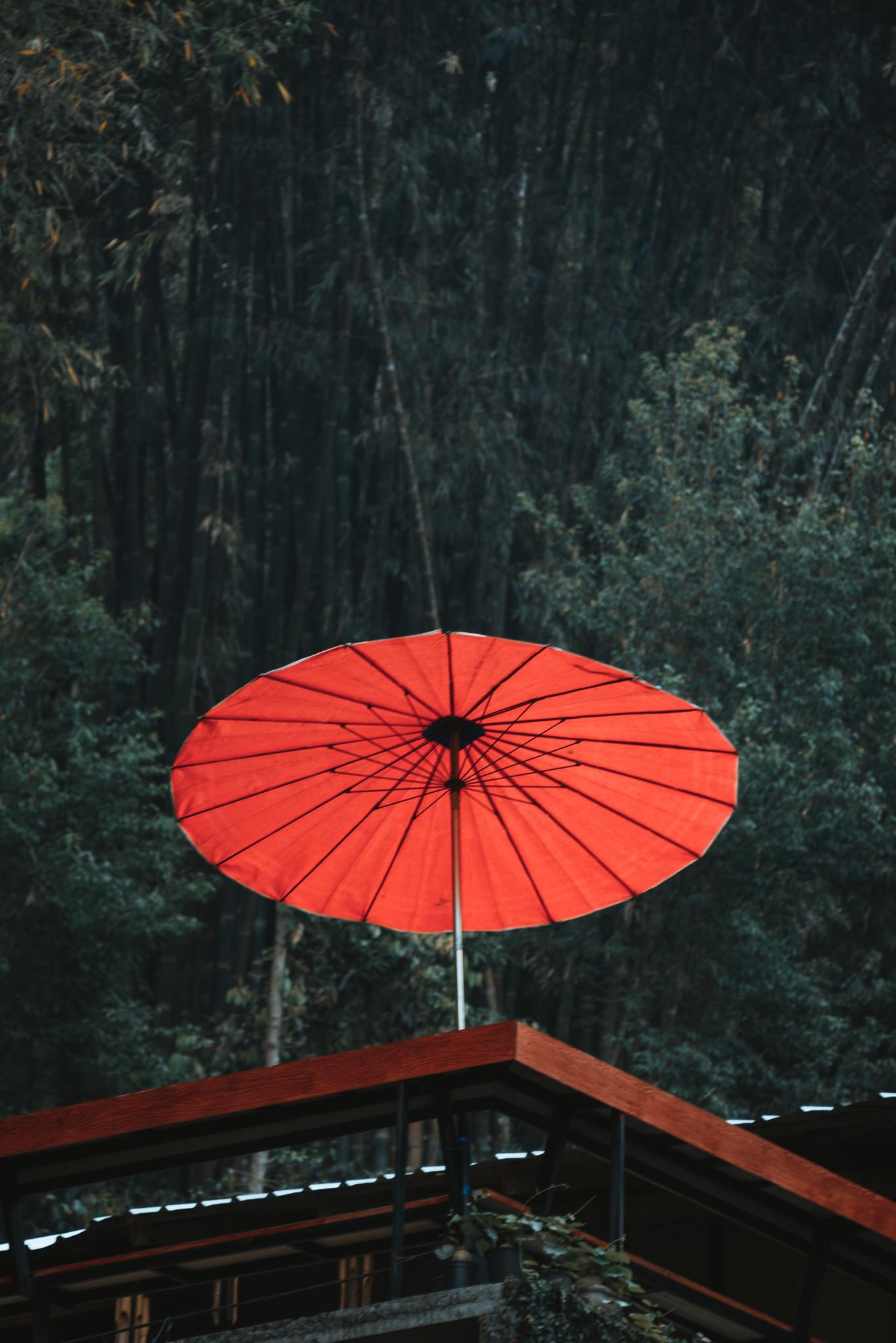
The hill didn’t offer an abundance of things to explore, but it had the advantage of cooler weather for people to escape from Chiang Mai heat, and the flowers were much vibrant here. Anyway, Chiang Mai itself isn’t at the same level with other coastal cities in South Thailand regarding the crowdedness, so travelers going to this village would even be less.
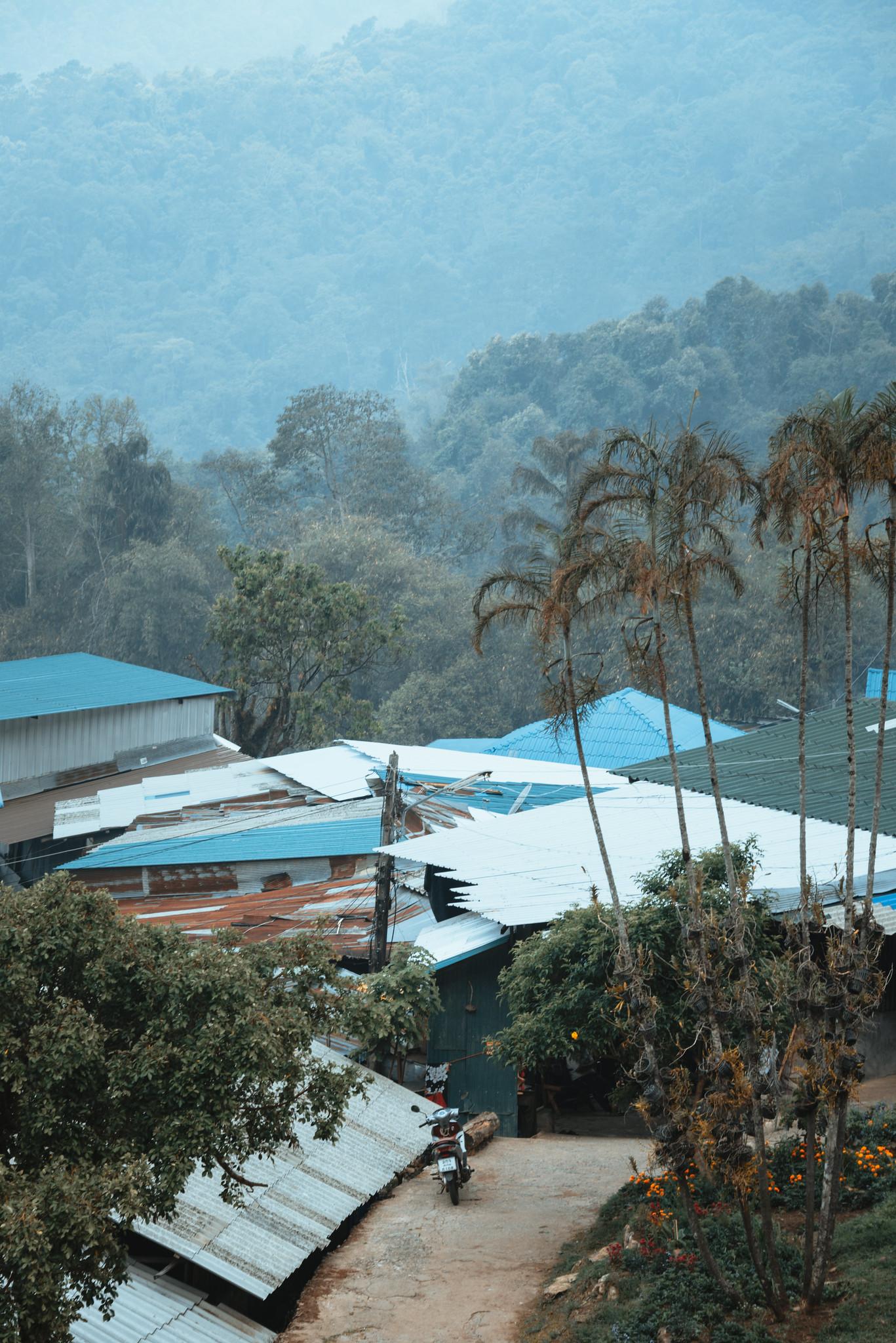
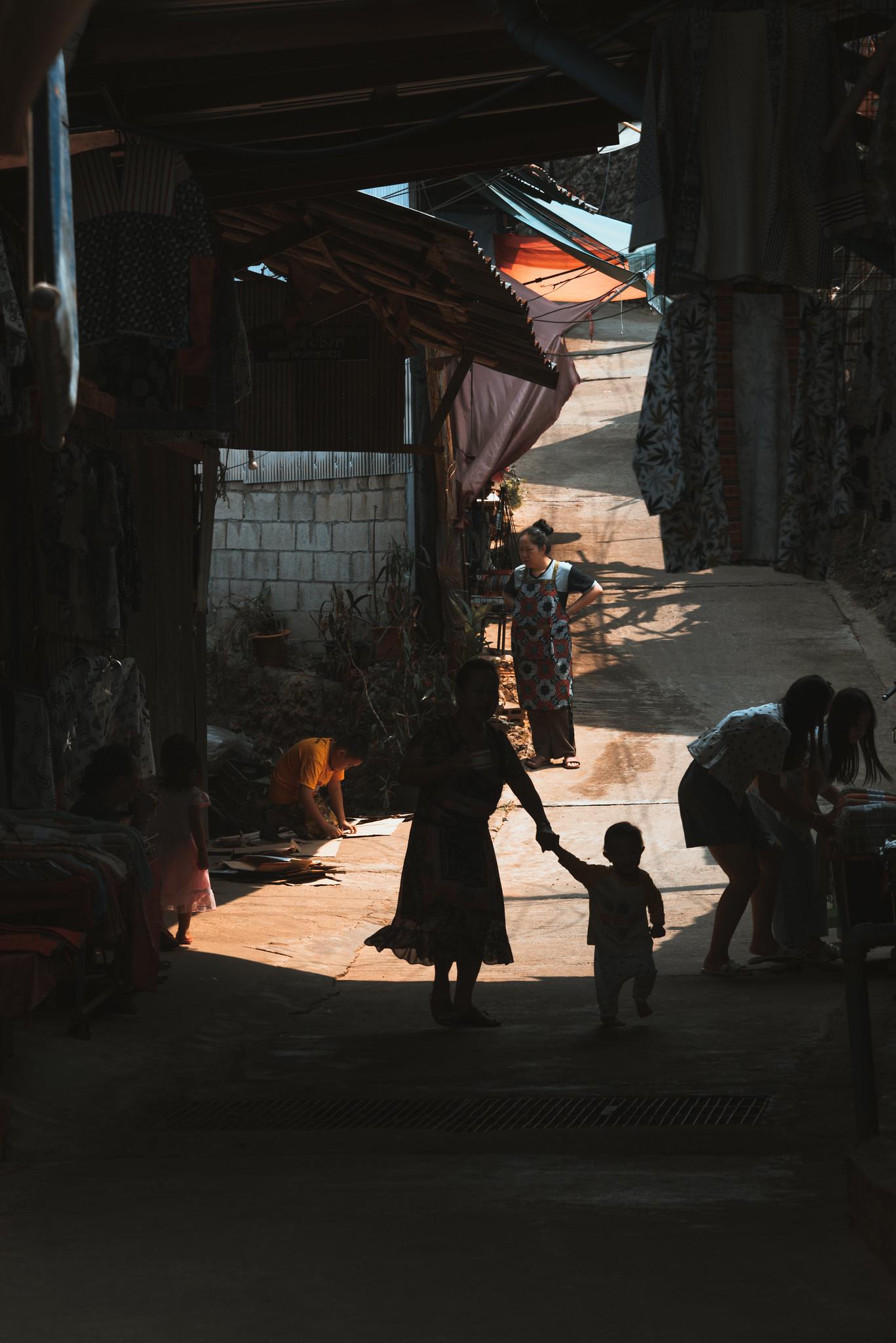
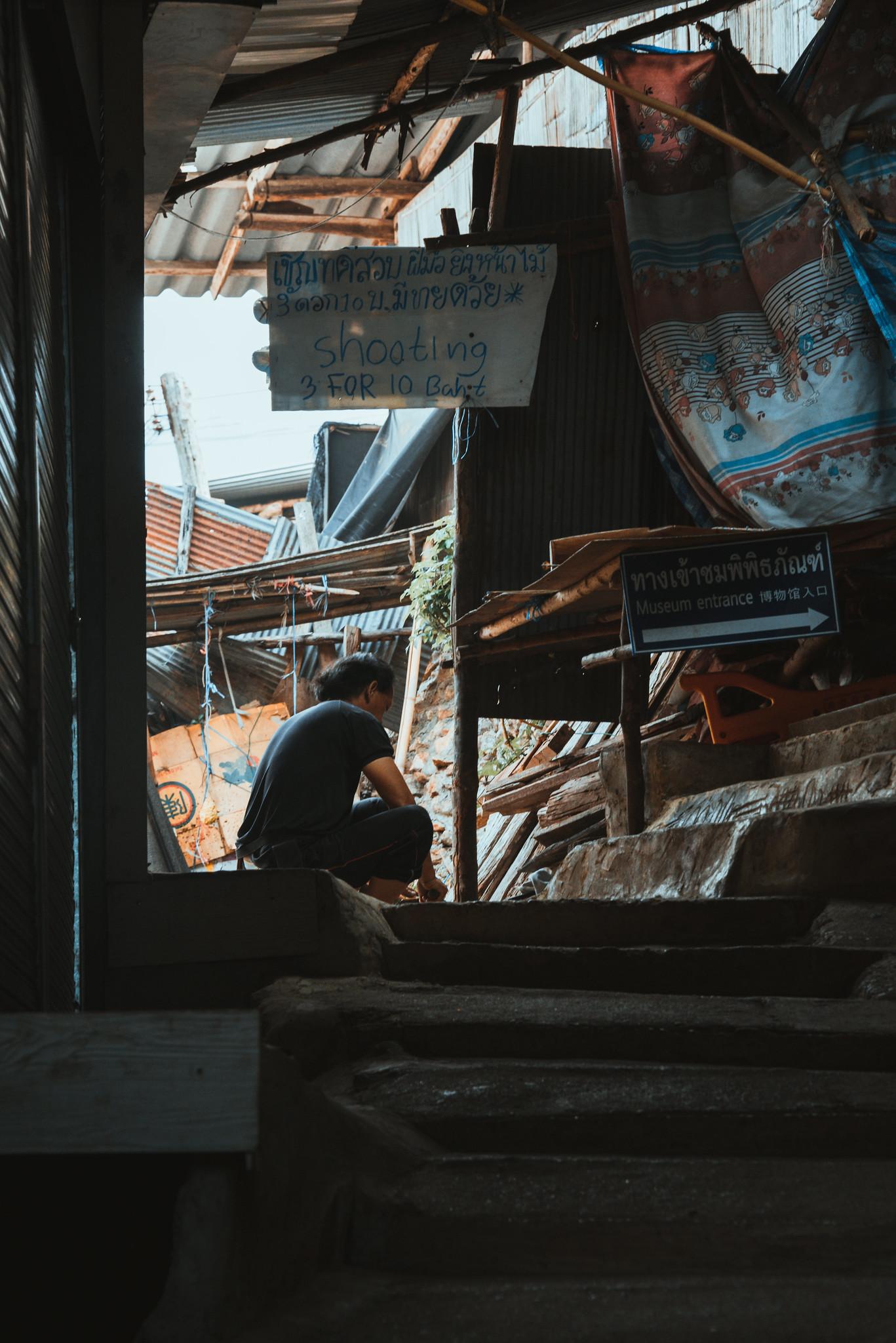
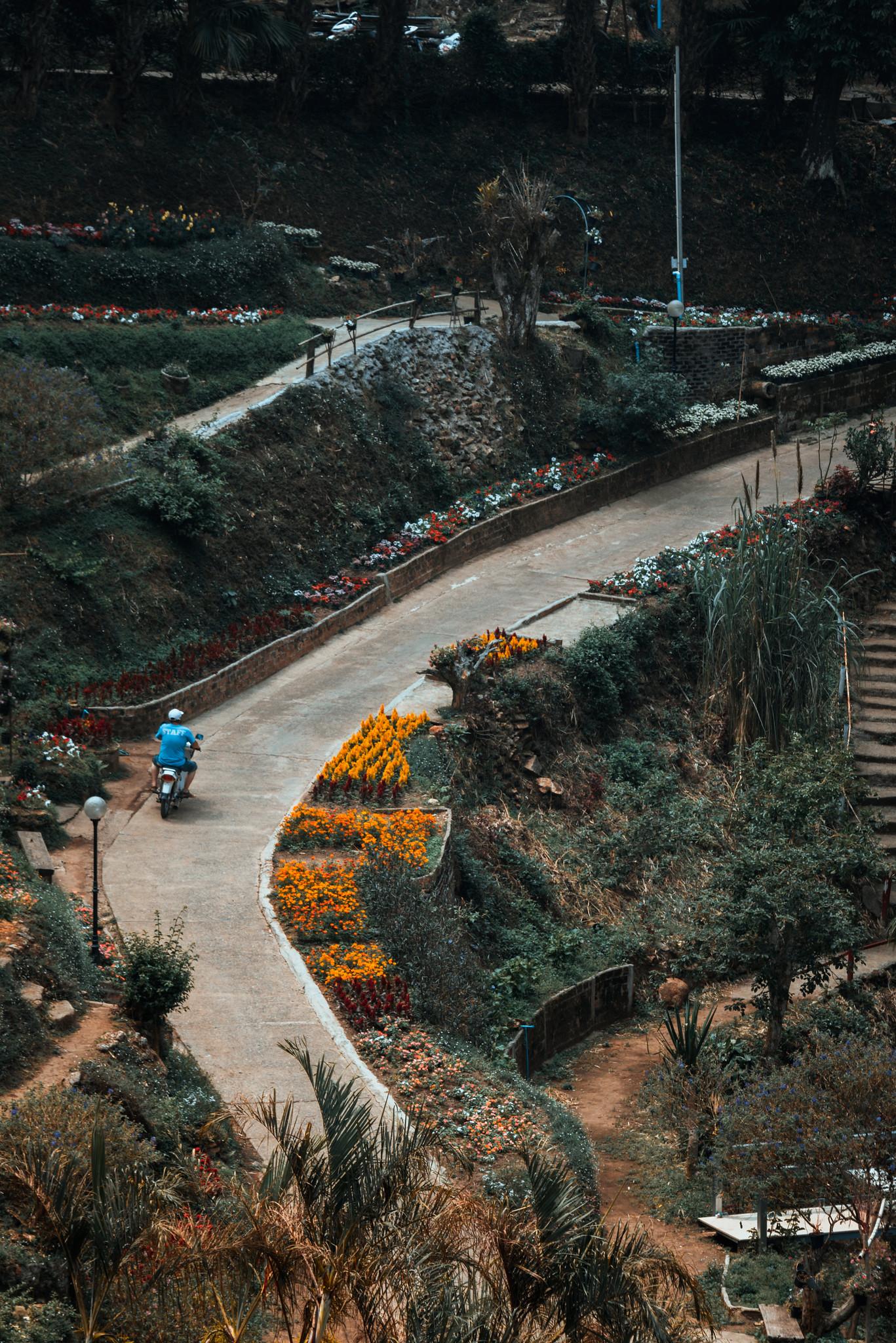
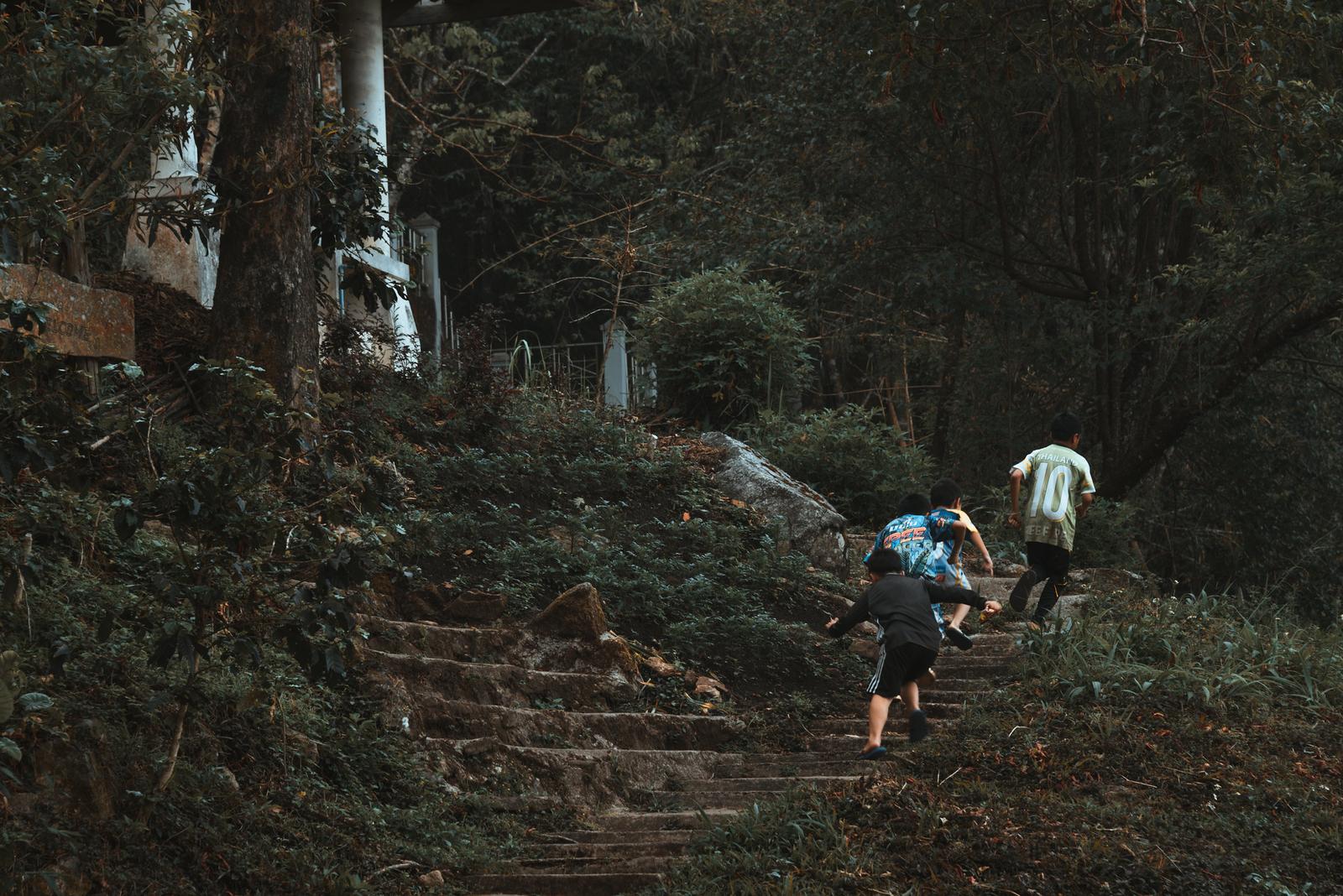
Wat Phra That Doi Suthep
I again boarded my truck for the driver to fetch me down the mountain to visit Wat Phra That Doi Suthep (วัดพระธาตุดอยสุเทพ). At an elevation of 1,073m and amidst a sunny noon, I could feel the aggravating heat surrounding us.
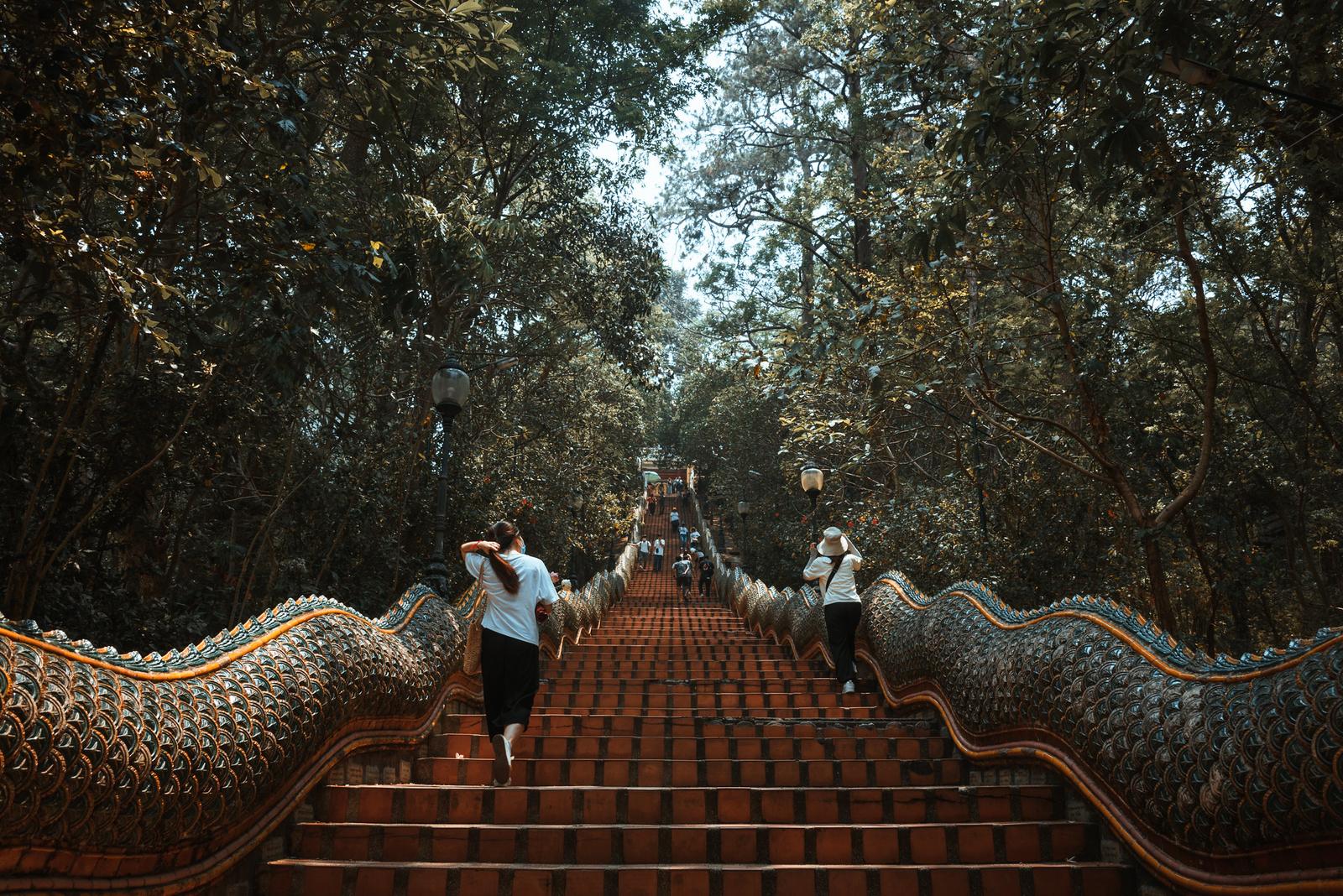
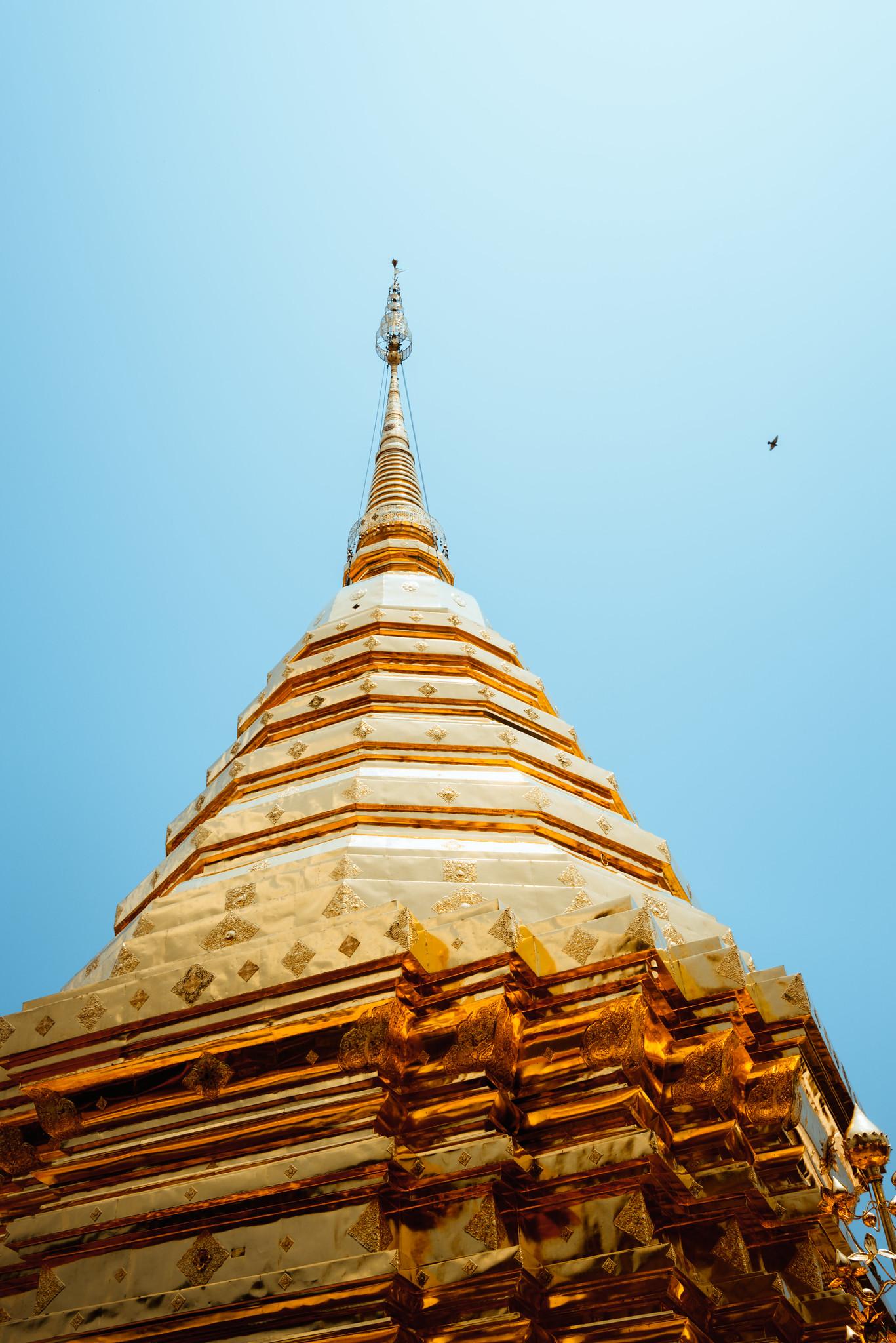
This is a complex consisting of stupas and temples with gold-gilded decorative features, casting a vivid yellow tone amid the noon, but it doesn’t lack the presence of canopies coming from the lush sala trees. Upon entering the main hall, you’re required to remove your shoes, so wearing socks will prevent your foot sole from being burnt when walking atop the floor.
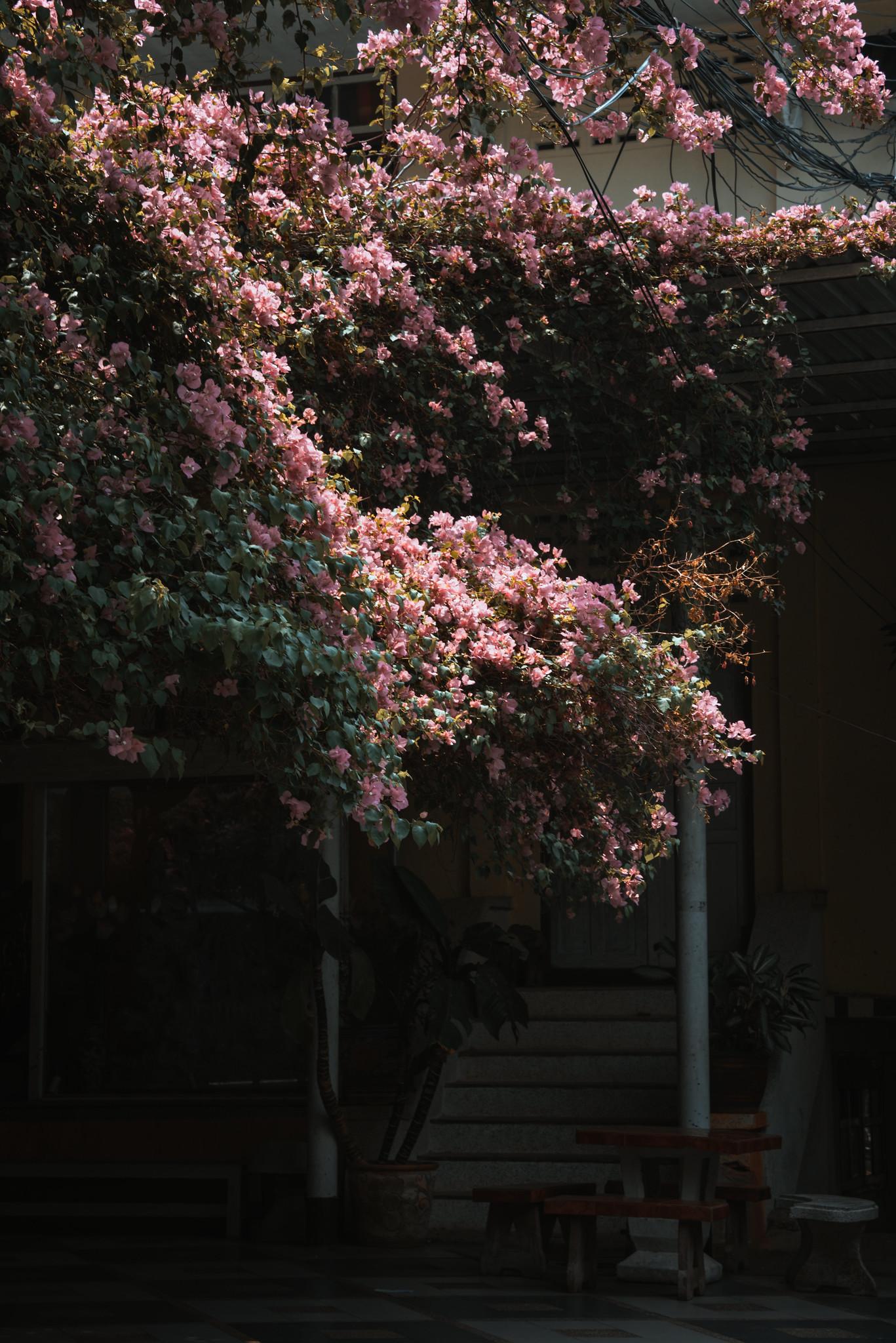
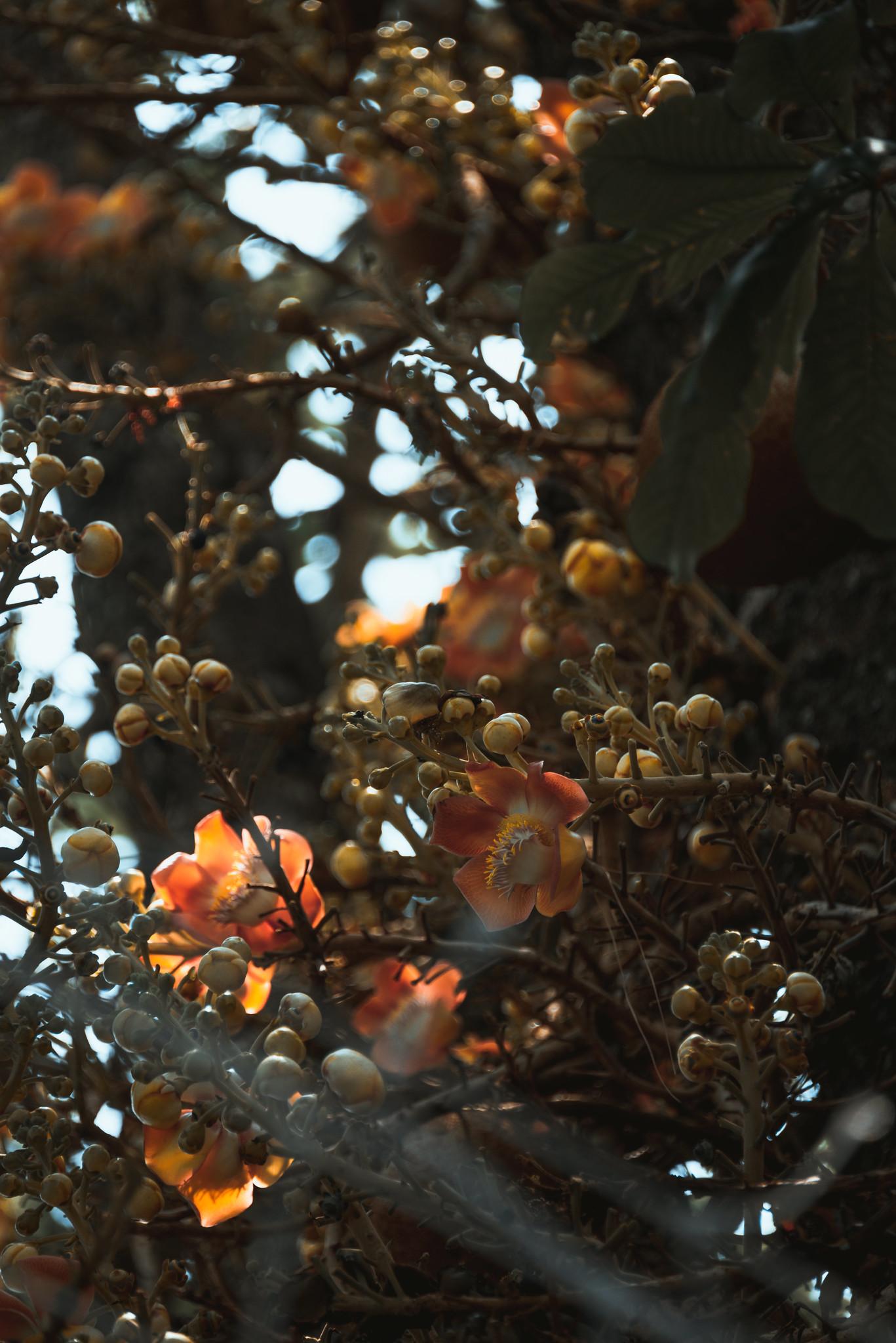
Enough sightseeing, now I seek a delicious smoothie vendor within the premise, followed by having lunch in the pagoda as well, although the food was quite pricey.
It’s time to descend when the sun was right above my head; siting inside songthaew truly made me feel the indescribable tiring heat, in my mind I longed for nothing else but to return to my old, eerie yet cooled hotel ASAP to seek shelter from the hot weather.
Wat Sri Suphan
In the late afternoon I hopped on a tuk-tuk again, and the destination this time would be Wat Sri Suphan (วัดศรีสุพรรณ), a pagoda located outside the citadel, but in my opinion it’s the most stunning one among the sites I had visited or come across in this city. Of course the name ‘silver temple’ was only coined recently after the completion of silver-aluminium-gilded ordination hall (ubosot - อุโบสถ) in 2016, although the establishment itself dates back to the 1500s.
The façade details are carved elaborately, as the pagoda is the sacred site built for conserving the local wisdom of silverware.
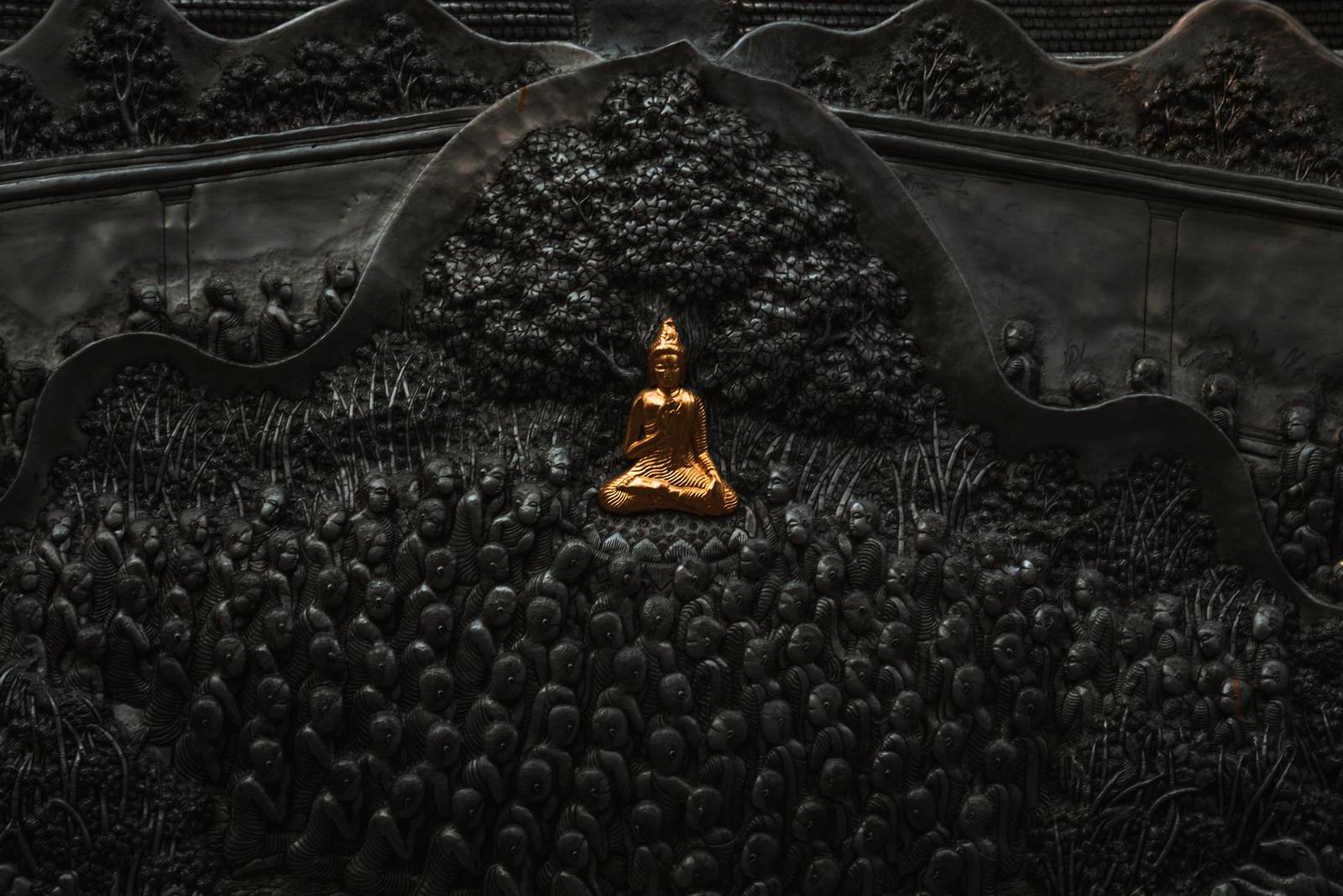
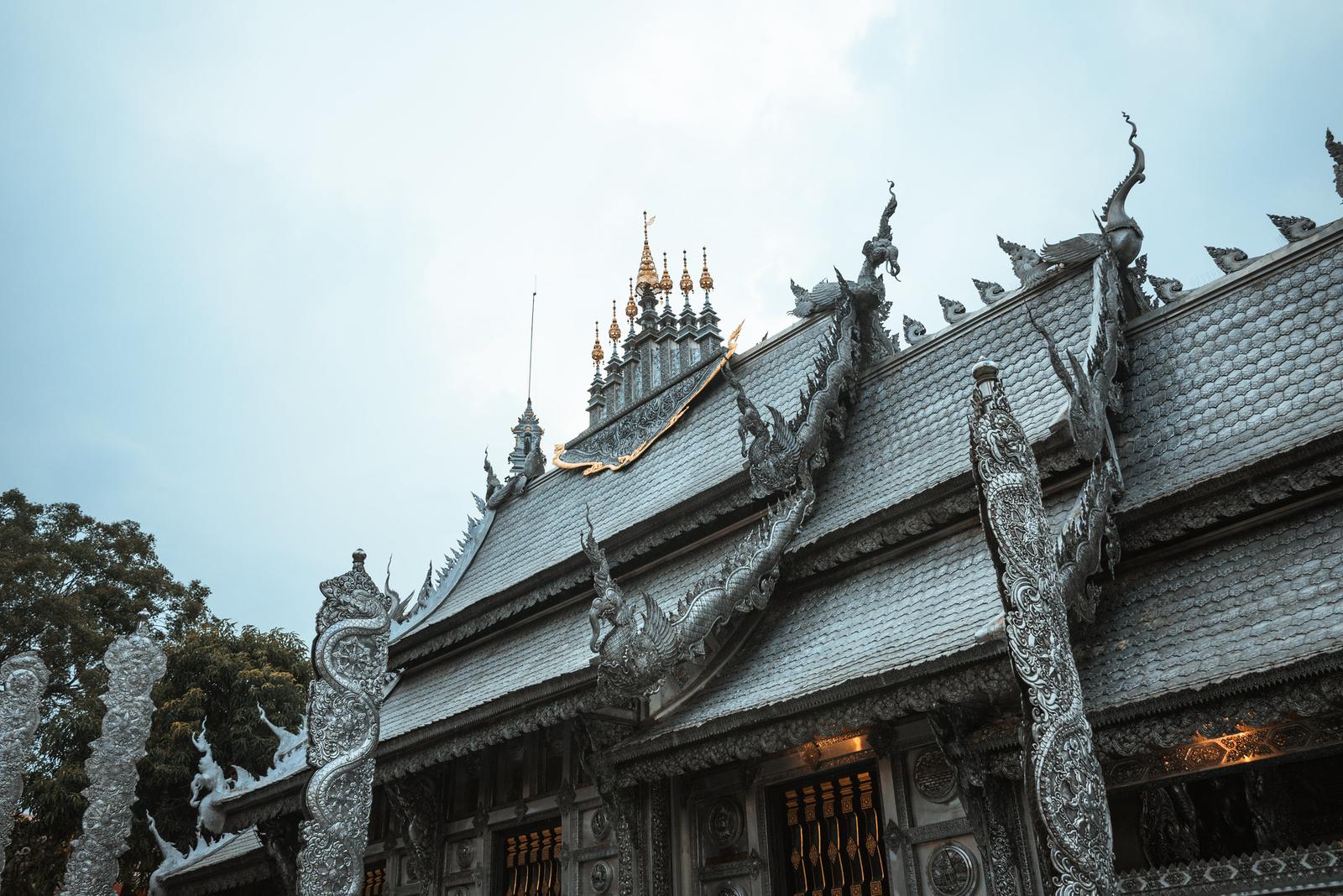
The interior of the ordination hall even appeared more magnificent, but women are not permitted to enter due to some spiritual practices.
Inside the courtyard you may encounter the familiar symbols of Thailand, including the Hinduist elephant-headed deity statue Phra Pikanet, or the handrail decorated by the statue of the guardian half-human half-serpent divine creature Naga.
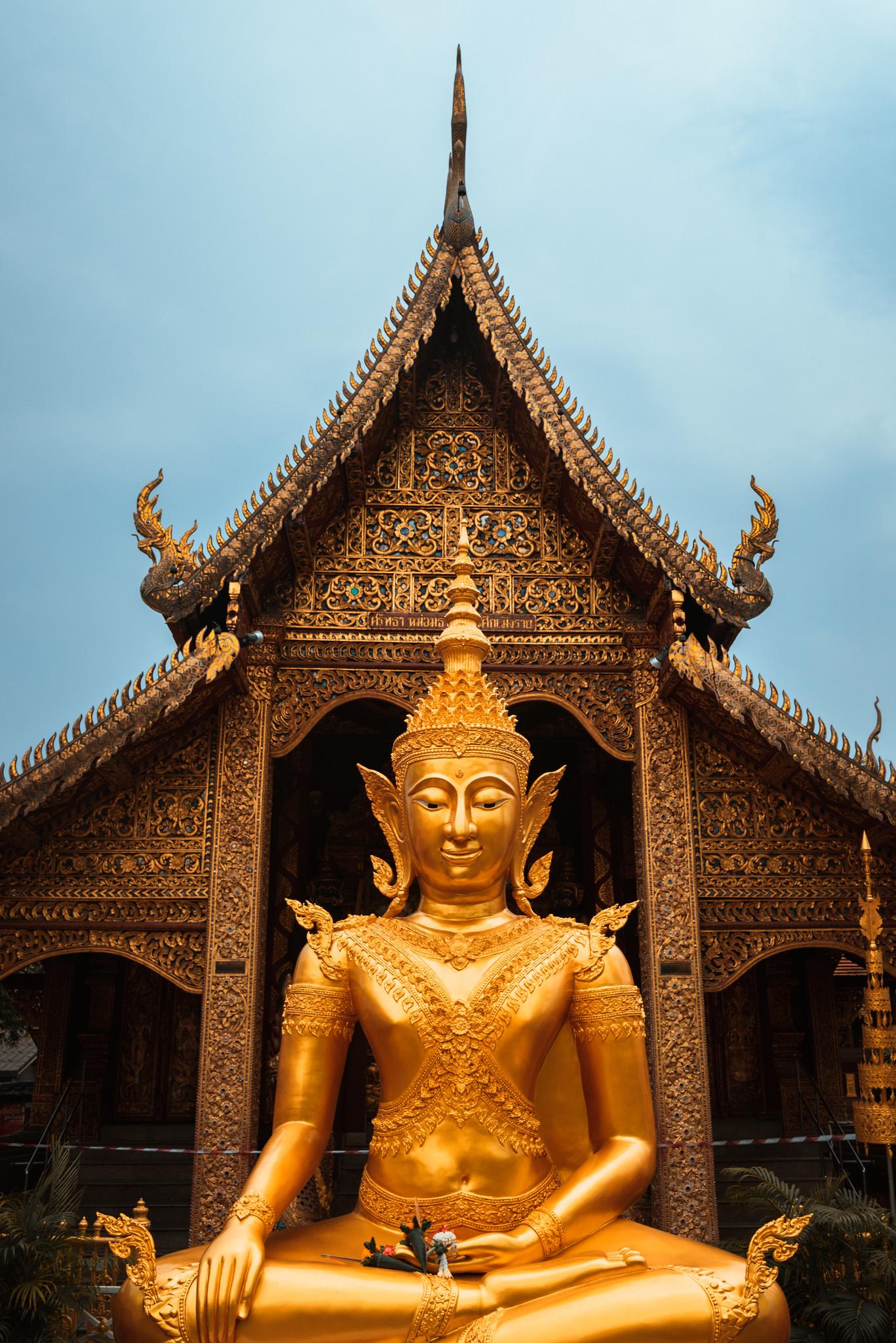
Certainly the most beautiful scene etched in my mind was the temple standing tall against the sunset background.
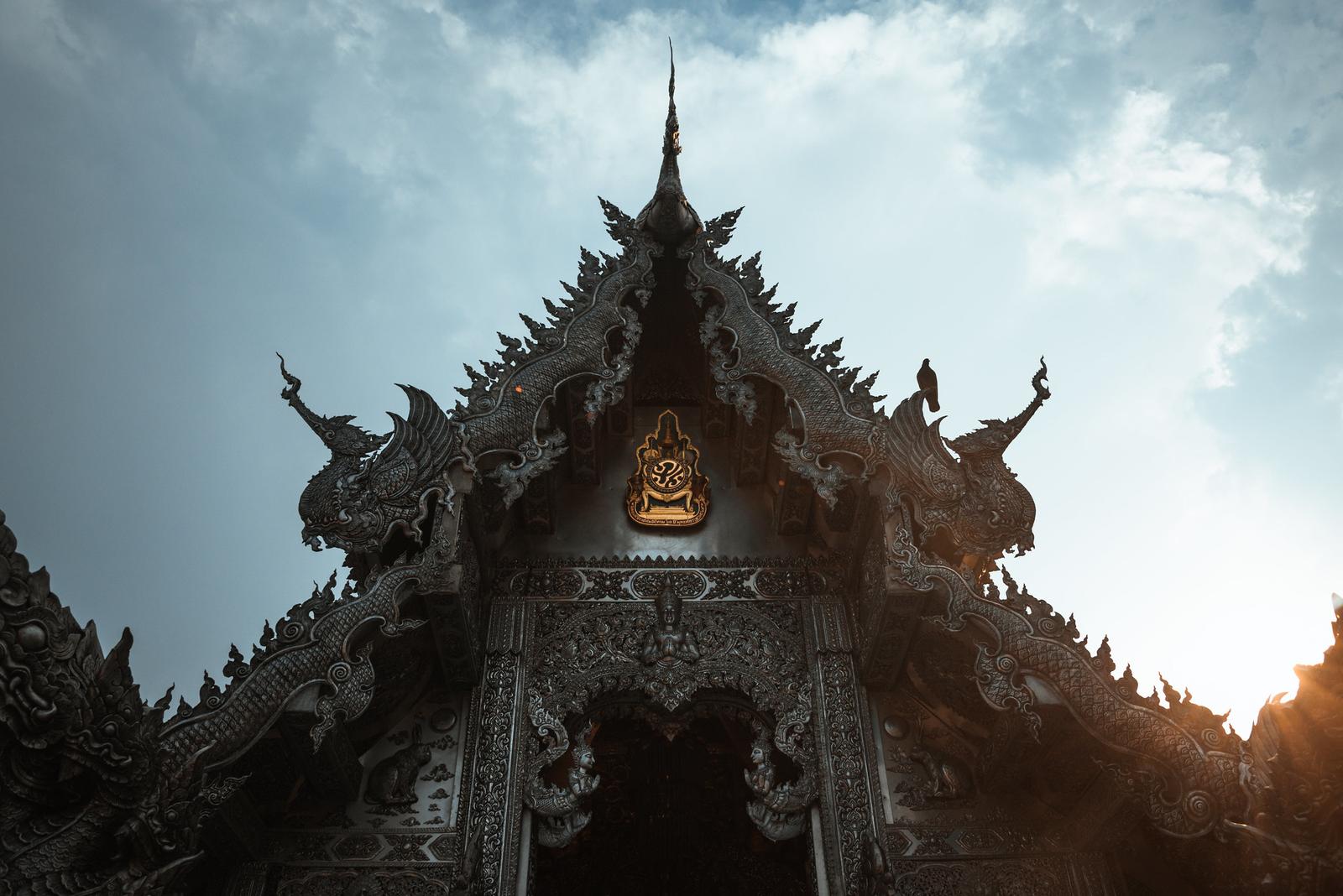
Wua Lai Walking Street
A short distance away from Wat Sri Suphan lies Wua Lai (ถนนคนเดินวัวลาย) walking street. Then the dark clouds were gathering, signaling an impending shower after sweltering days, although at the end it turned out to be just a light drizzle.
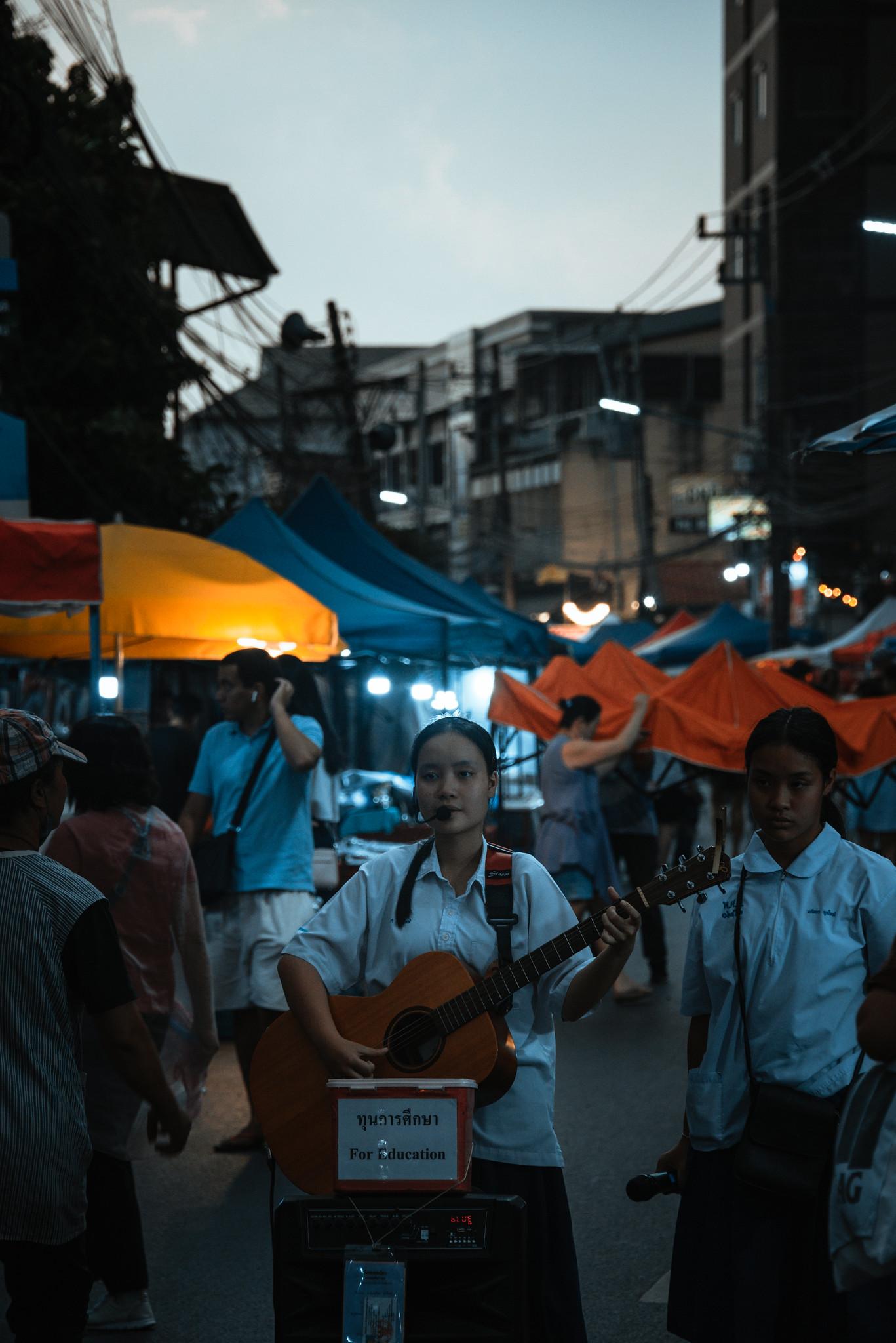
I was wandering along the crowded street, the shops here would open at 5pm, selling snacks like waffles, pig blood soup, mango sticky rice or souvenirs and apparels.
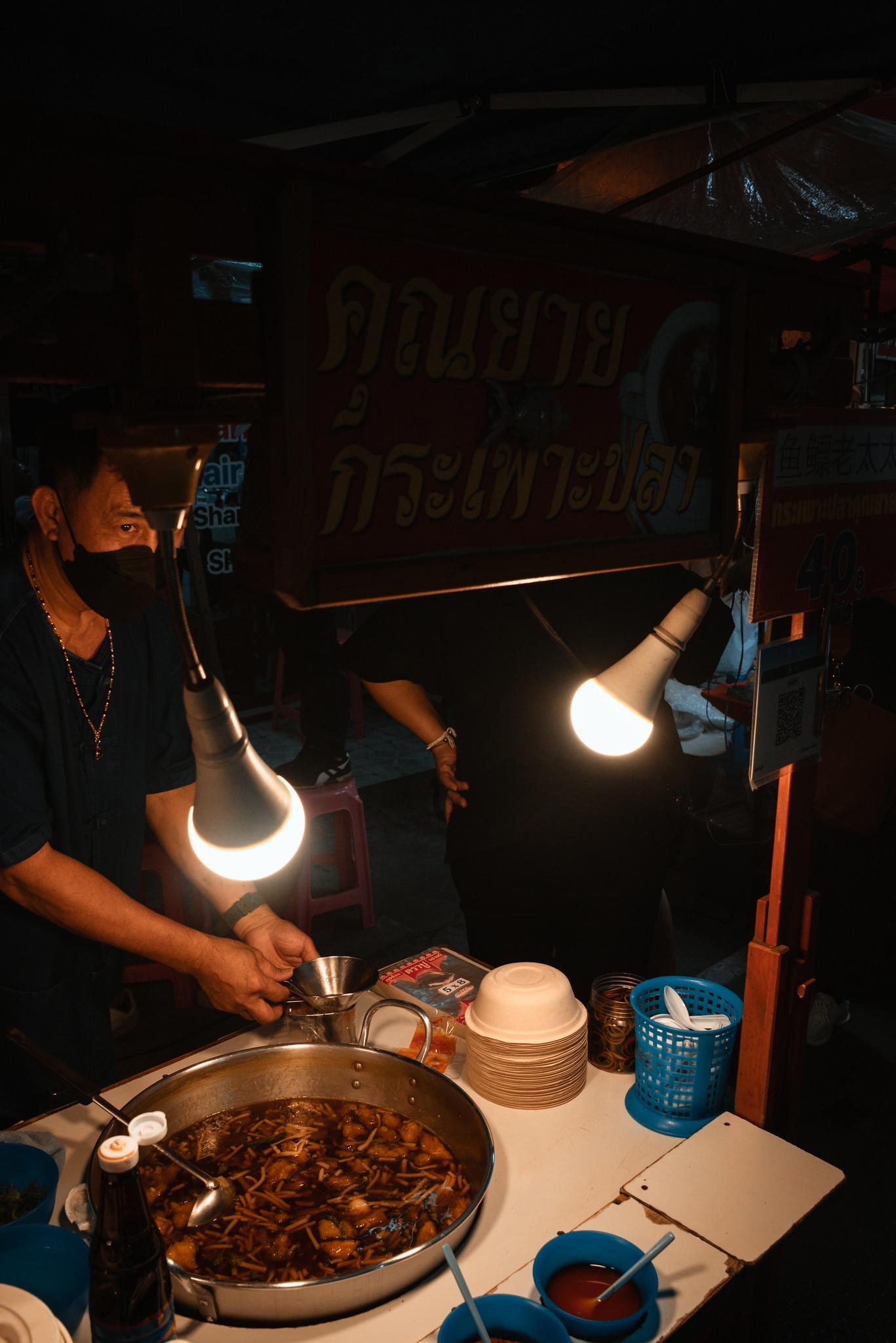
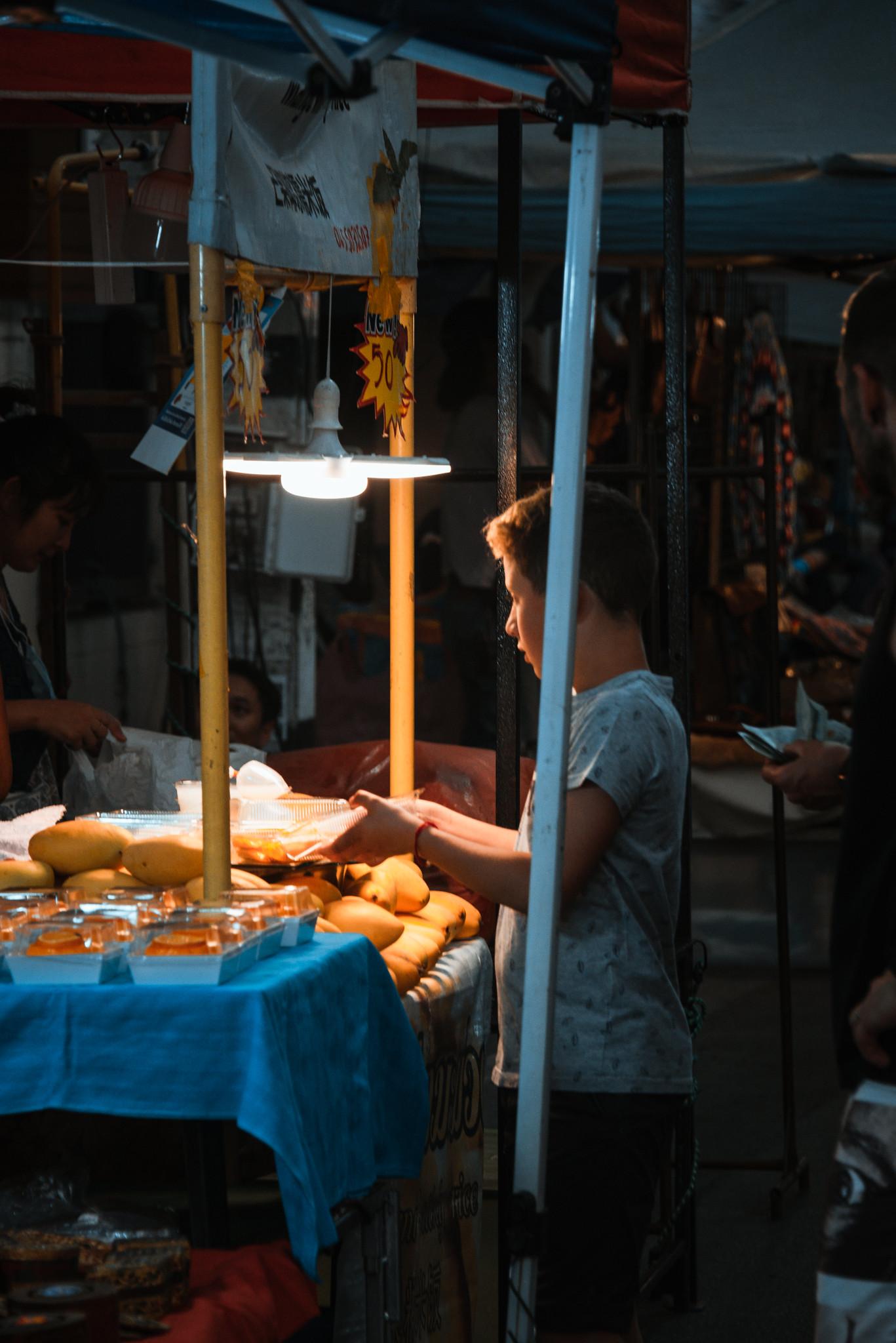
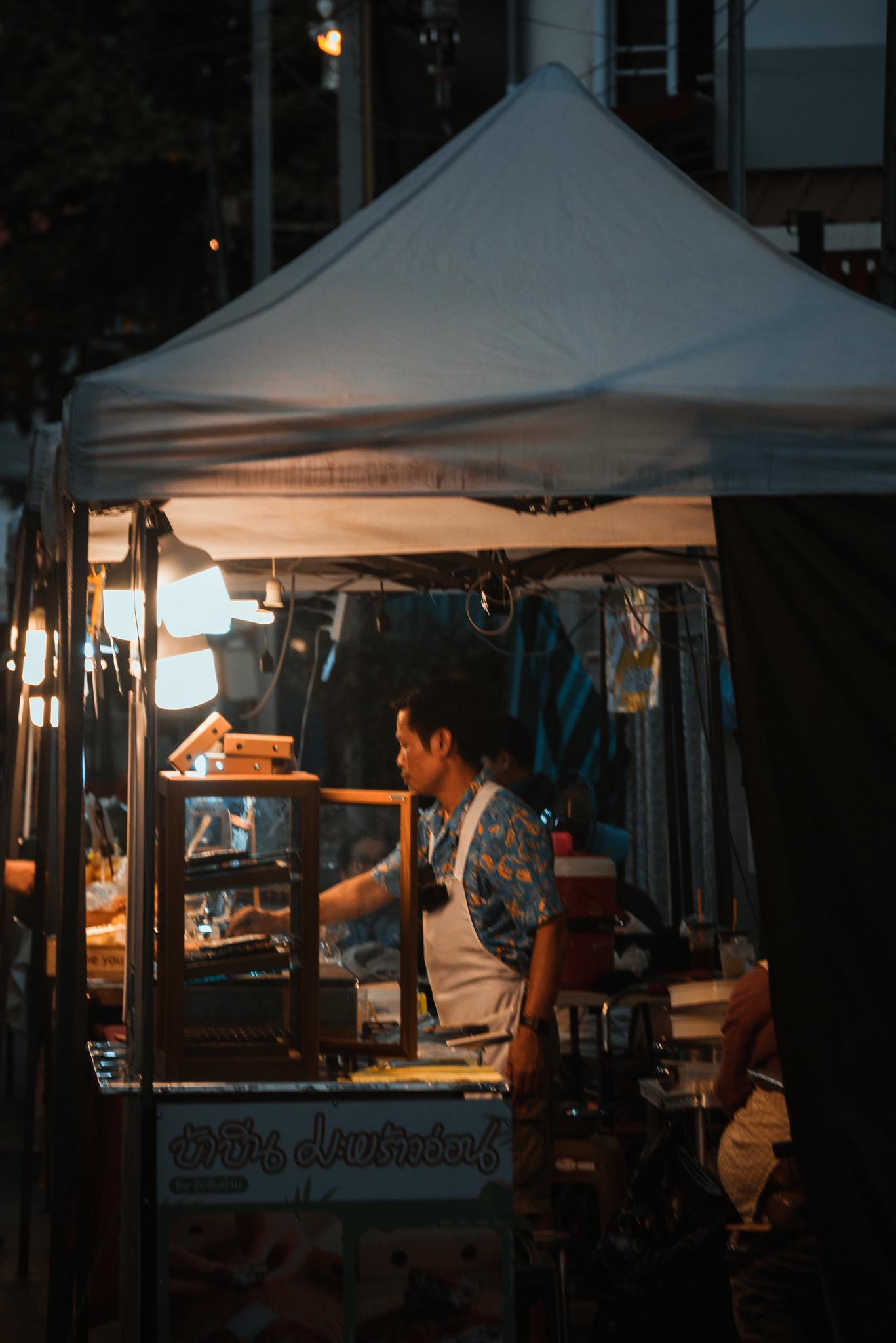
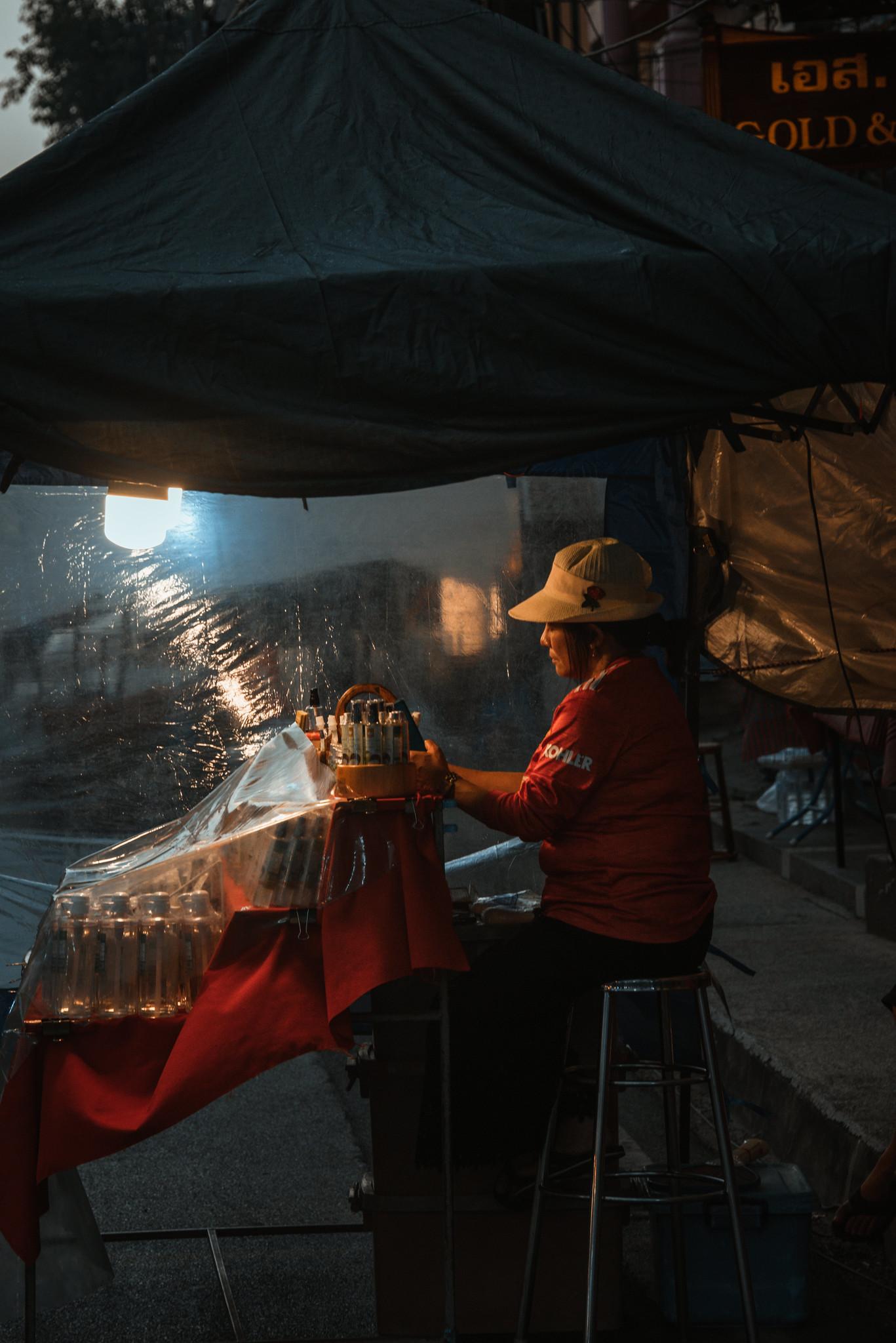
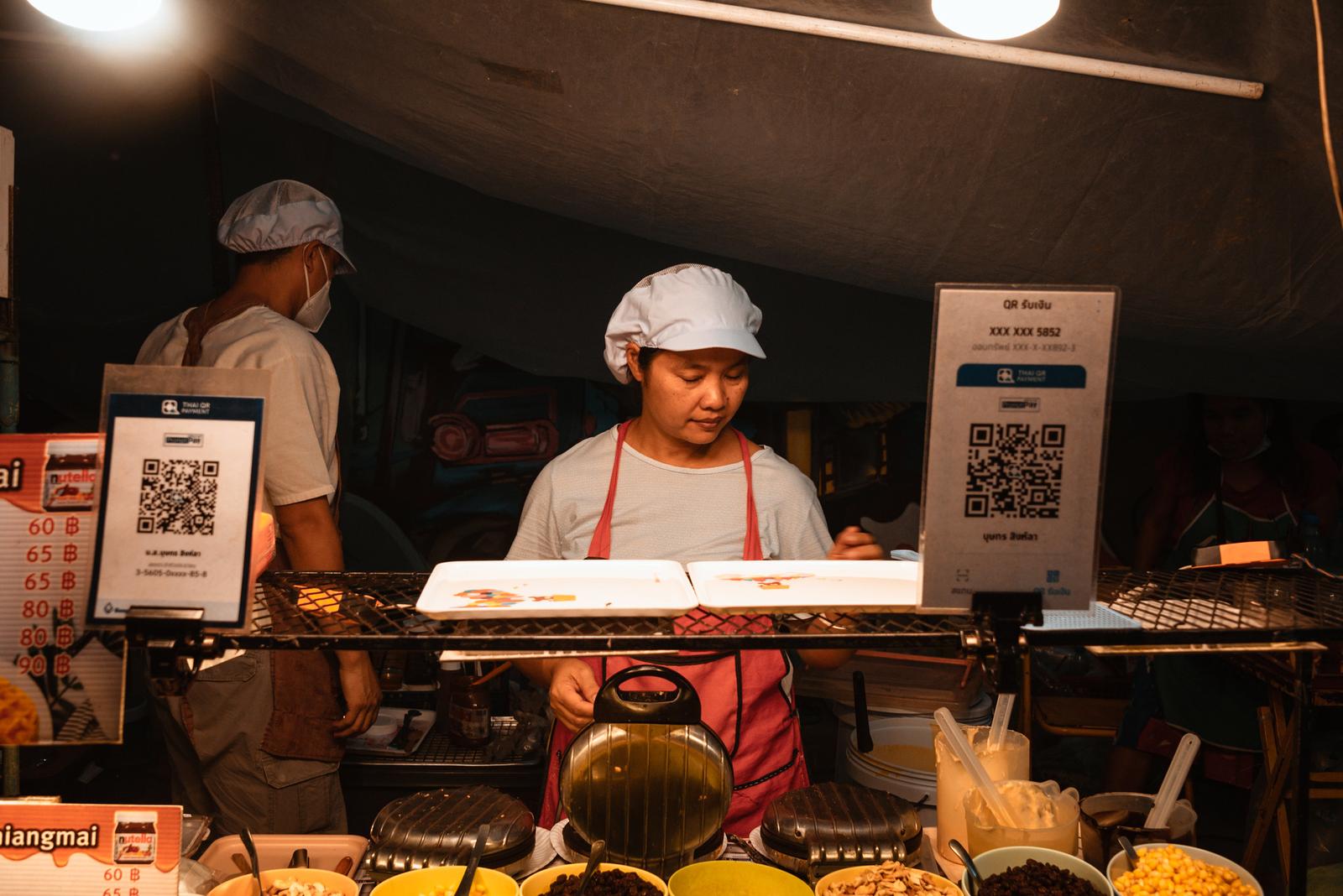
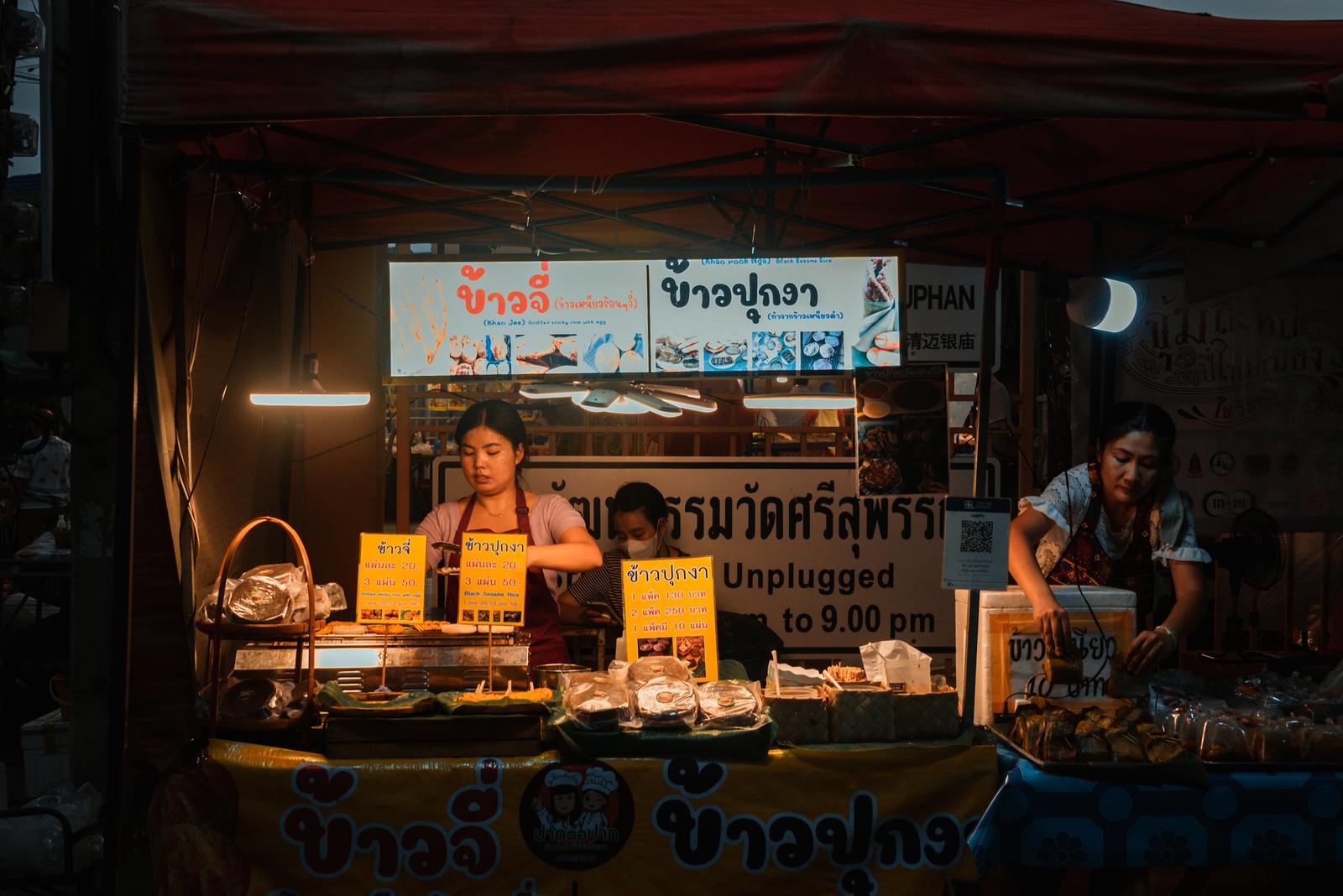
The bright lights were radiated from the stalls as the night descended, they looked so warm and familiar, at the time I was wearily walking through the area.
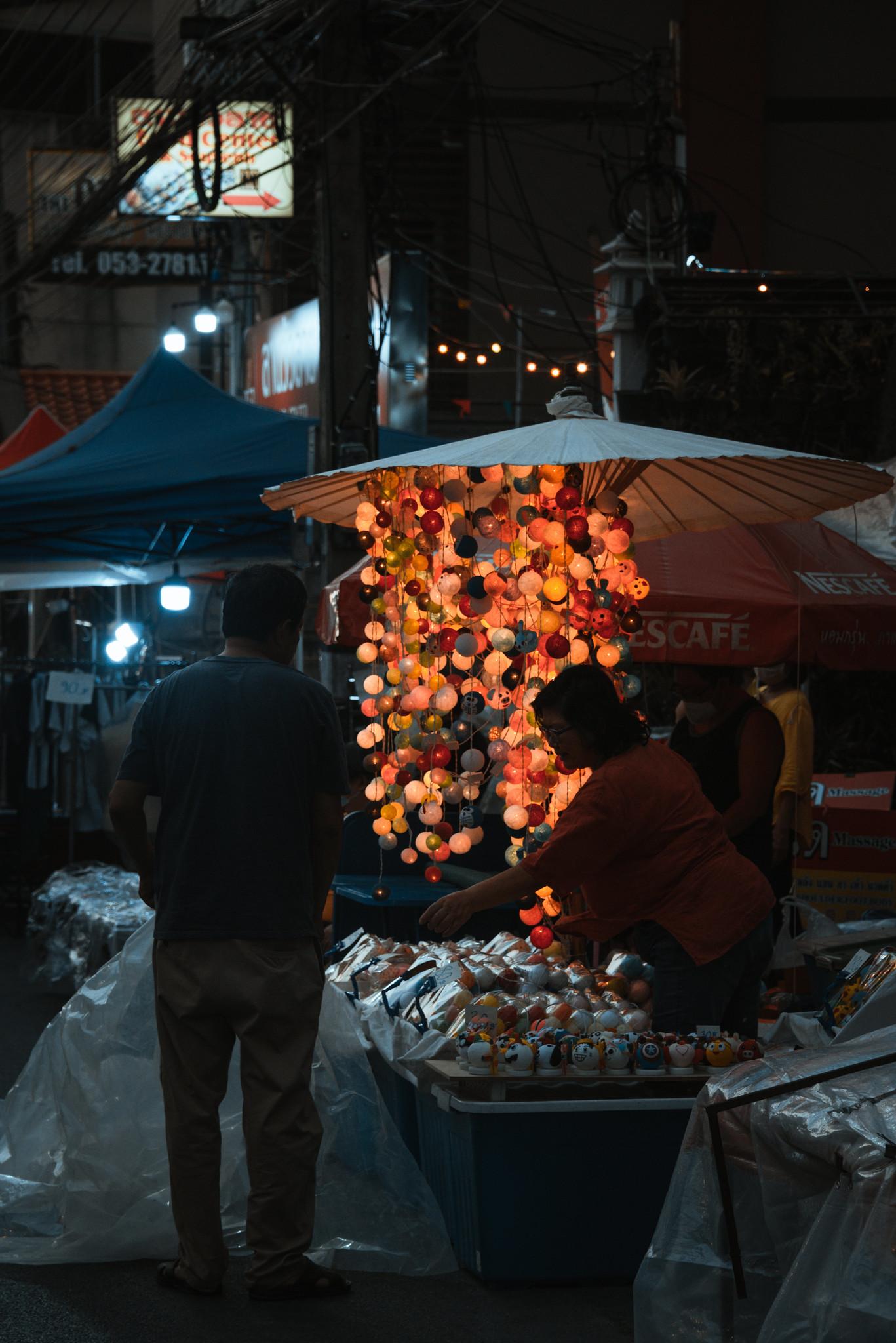
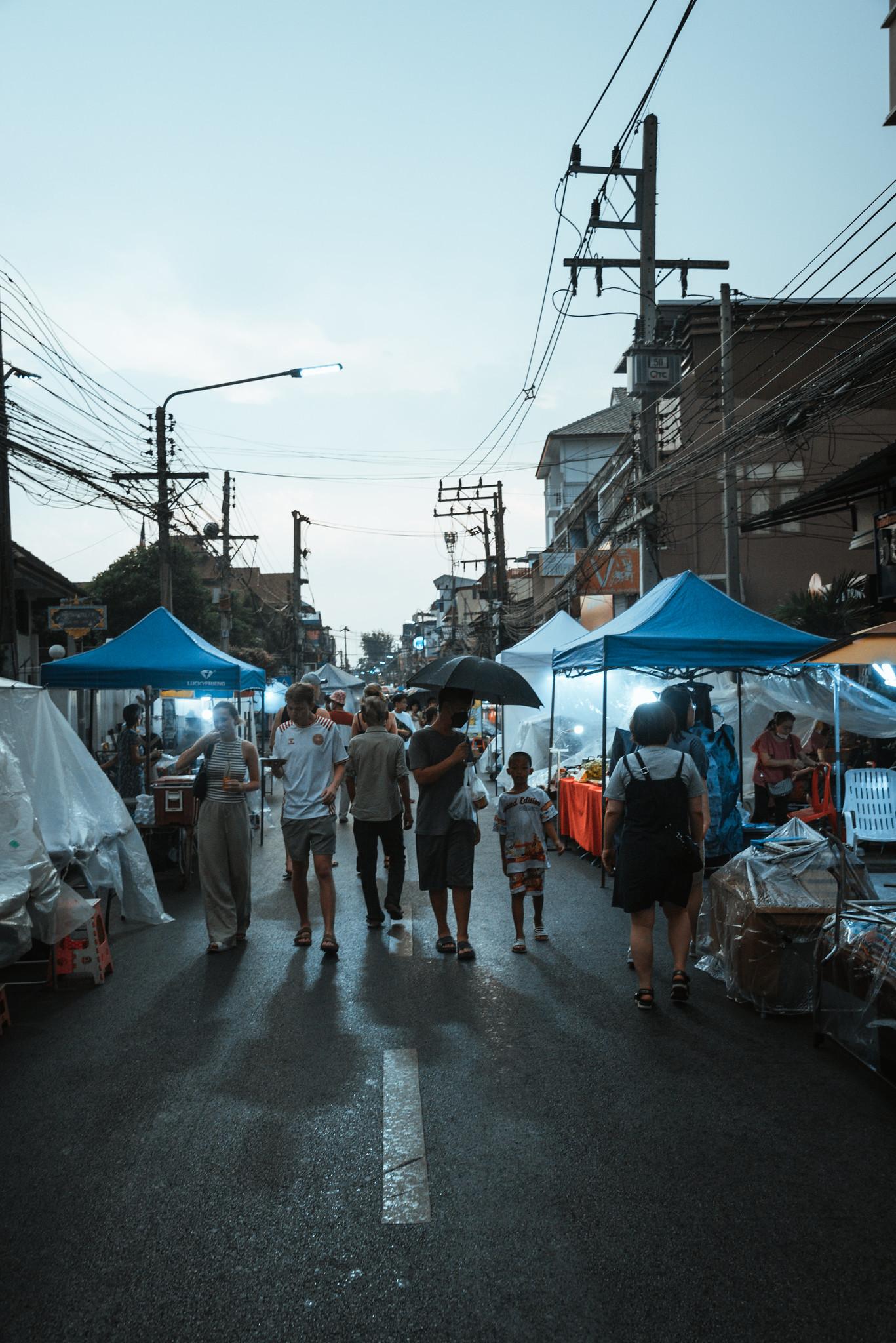
If continuing walking I could’ve never found a tuk-tuk to take me back, fortunately the idea of hailing Grab taxi crossed my mind, and things became so simple while the ride fare was cheaper than expected; that’s why I wish I had used Grab from the beginning, so I didn’t have to negotiate with the tuk-tuk drivers.
The Last Day around the Citadel
The rounded dawn sun was rising steadily amidst the morning haze. Today I would take a saunter without a specific destination in mind, as it’s the last morning I was here.
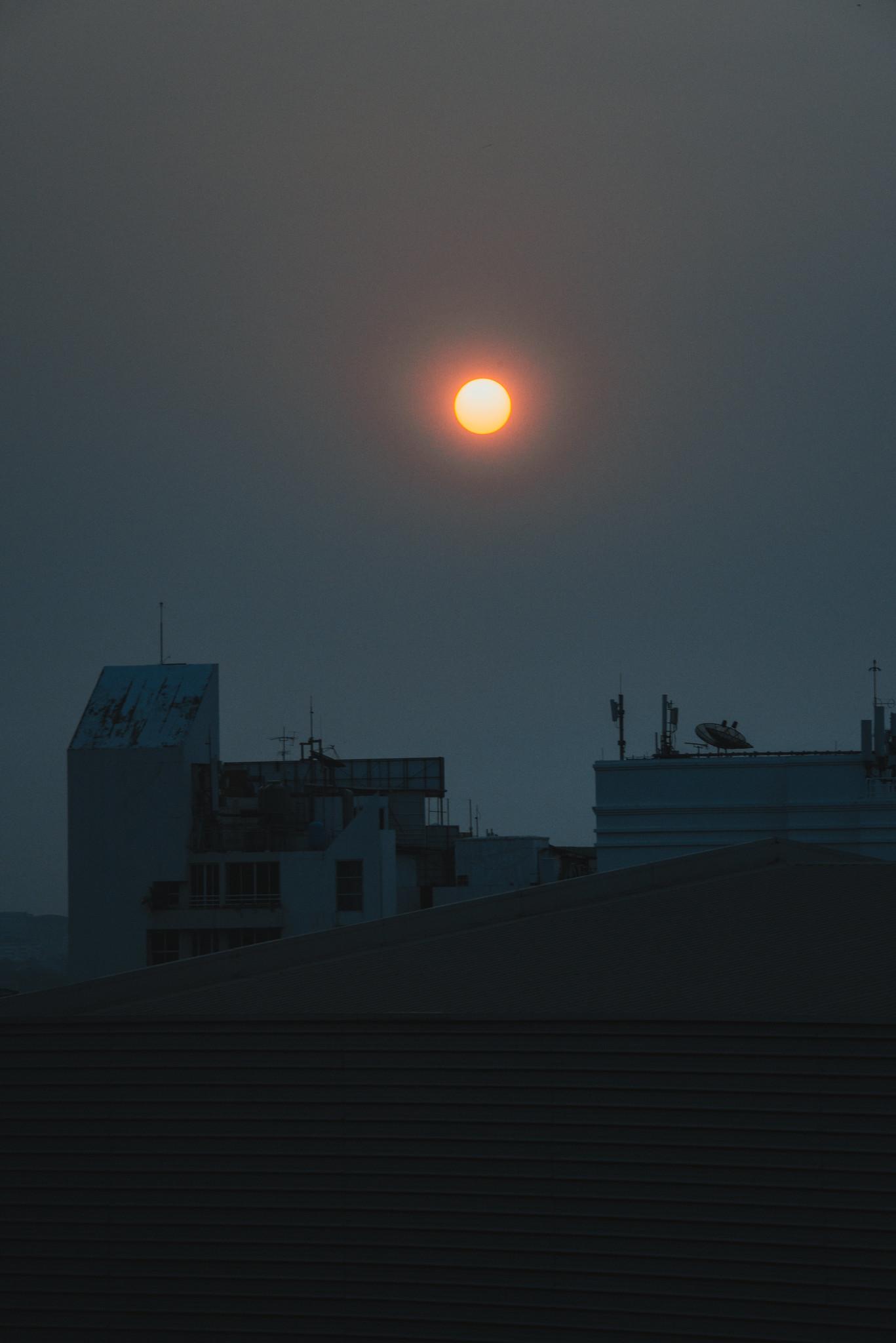
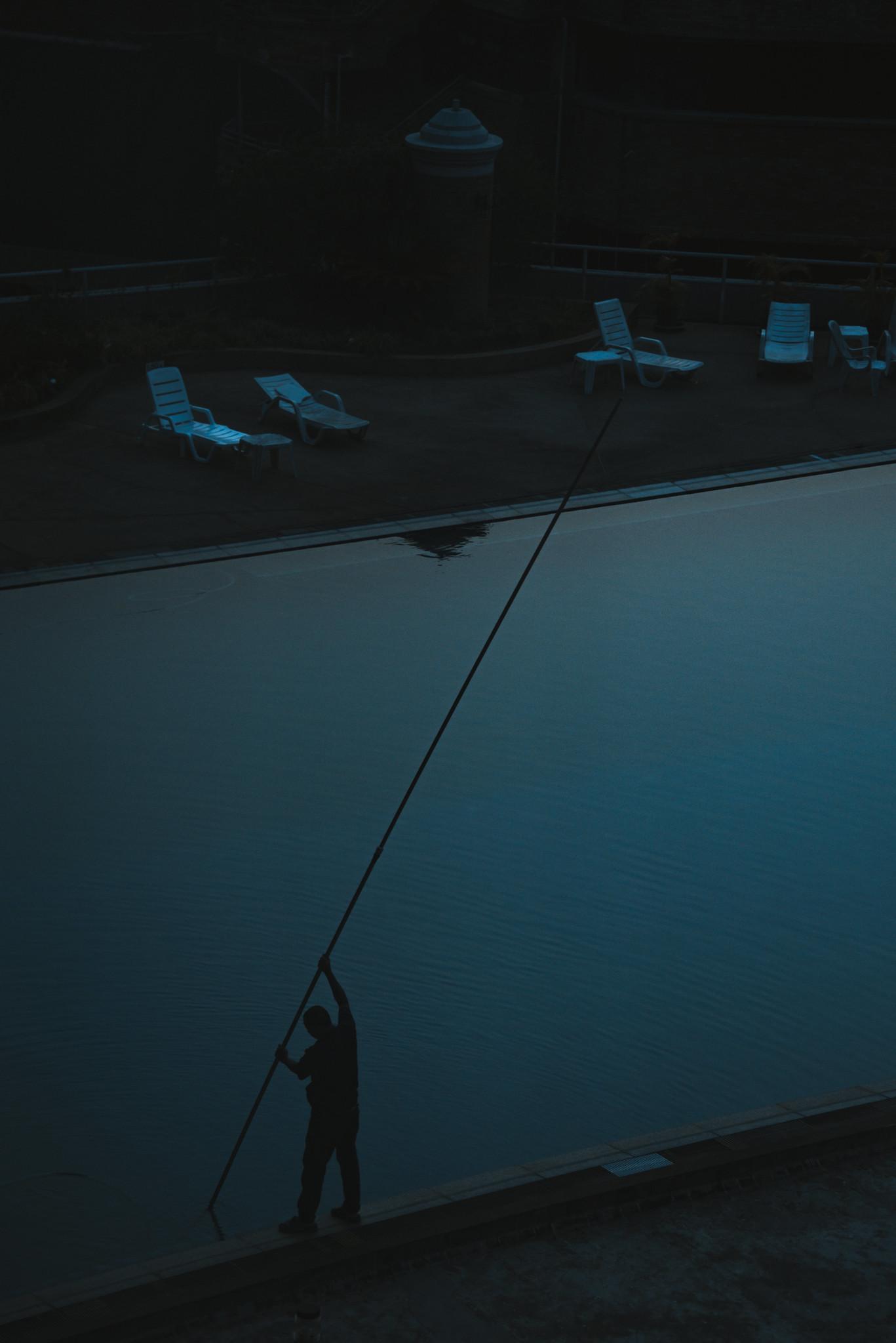
I rode a Grab crossing the citadel to the other side of the city near the Ping River (แม่น้ำปิง), where Chinatown is located. The driver was so affable and showed me the way with great enthusiasm.
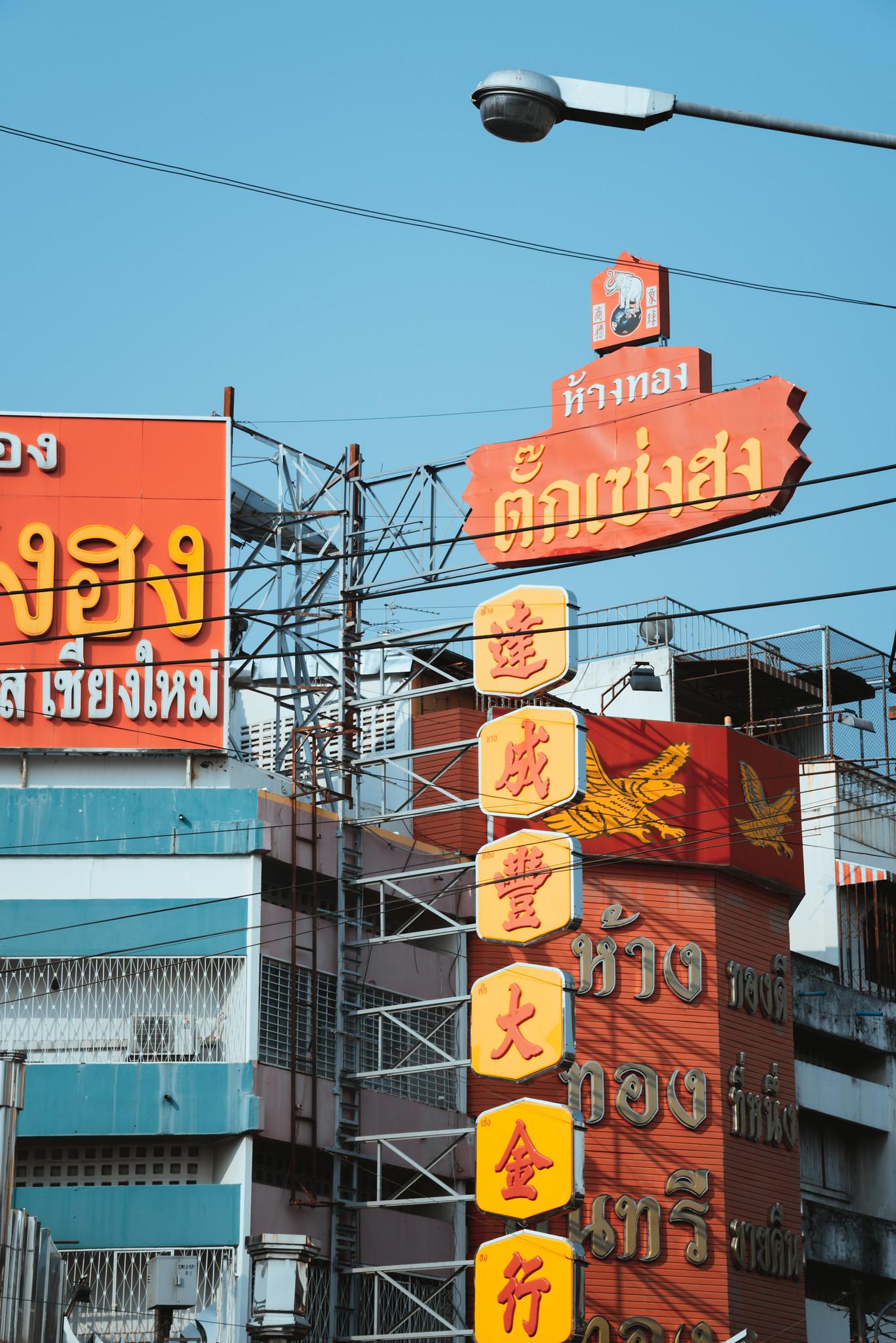
Chinatown is recognizable with the distinctive bright red panels, but it didn’t appear so bustling when walking inside during the morning.
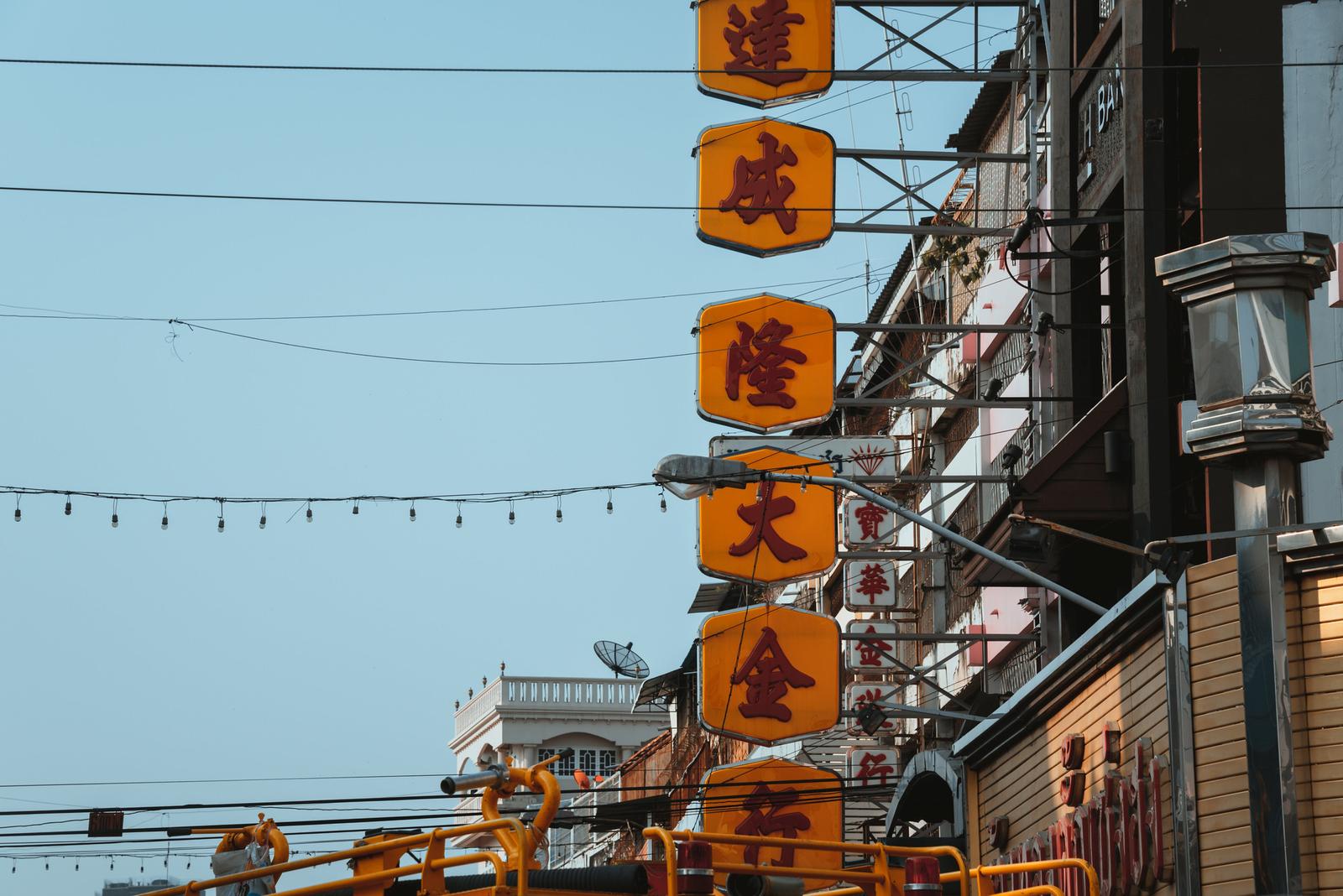
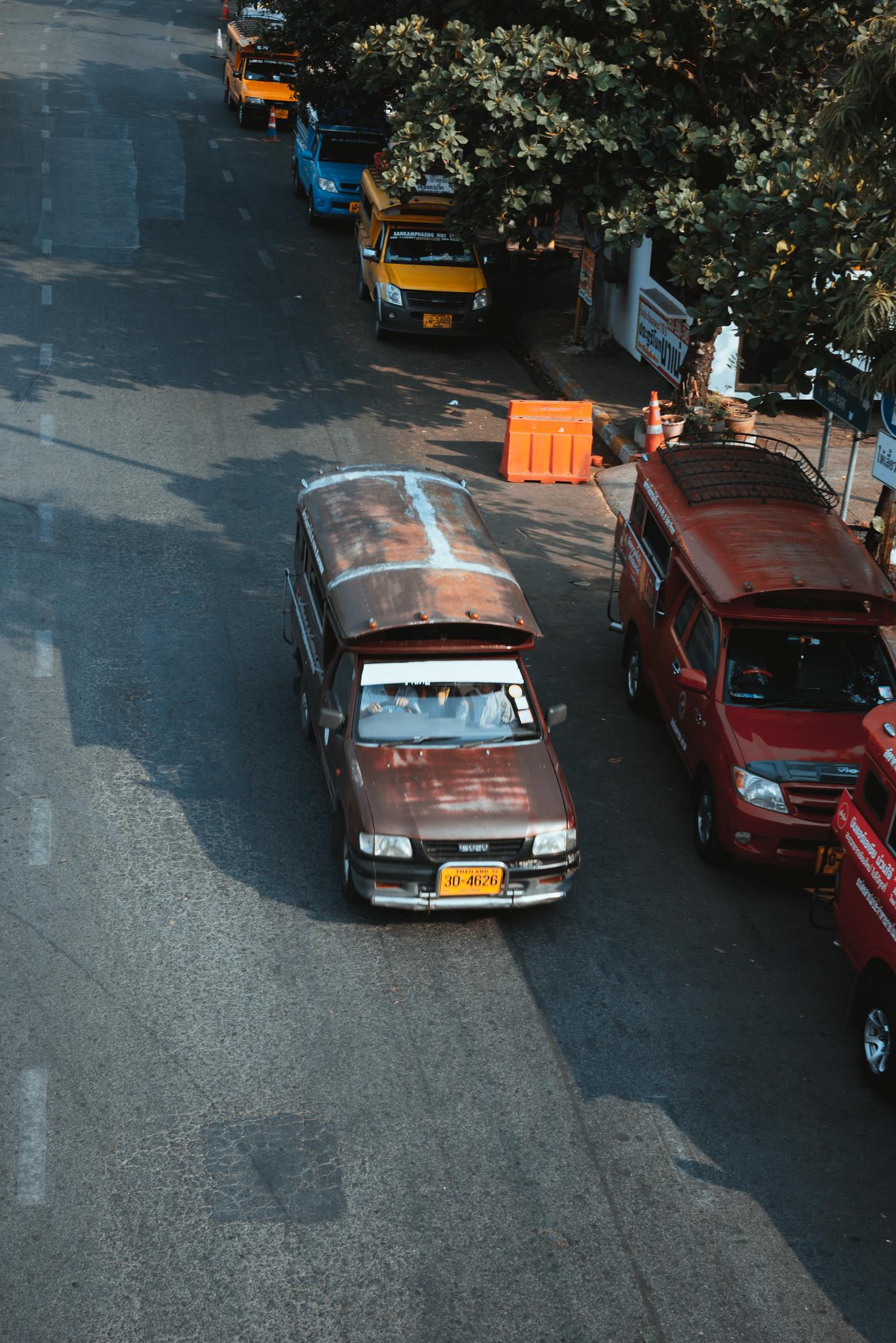
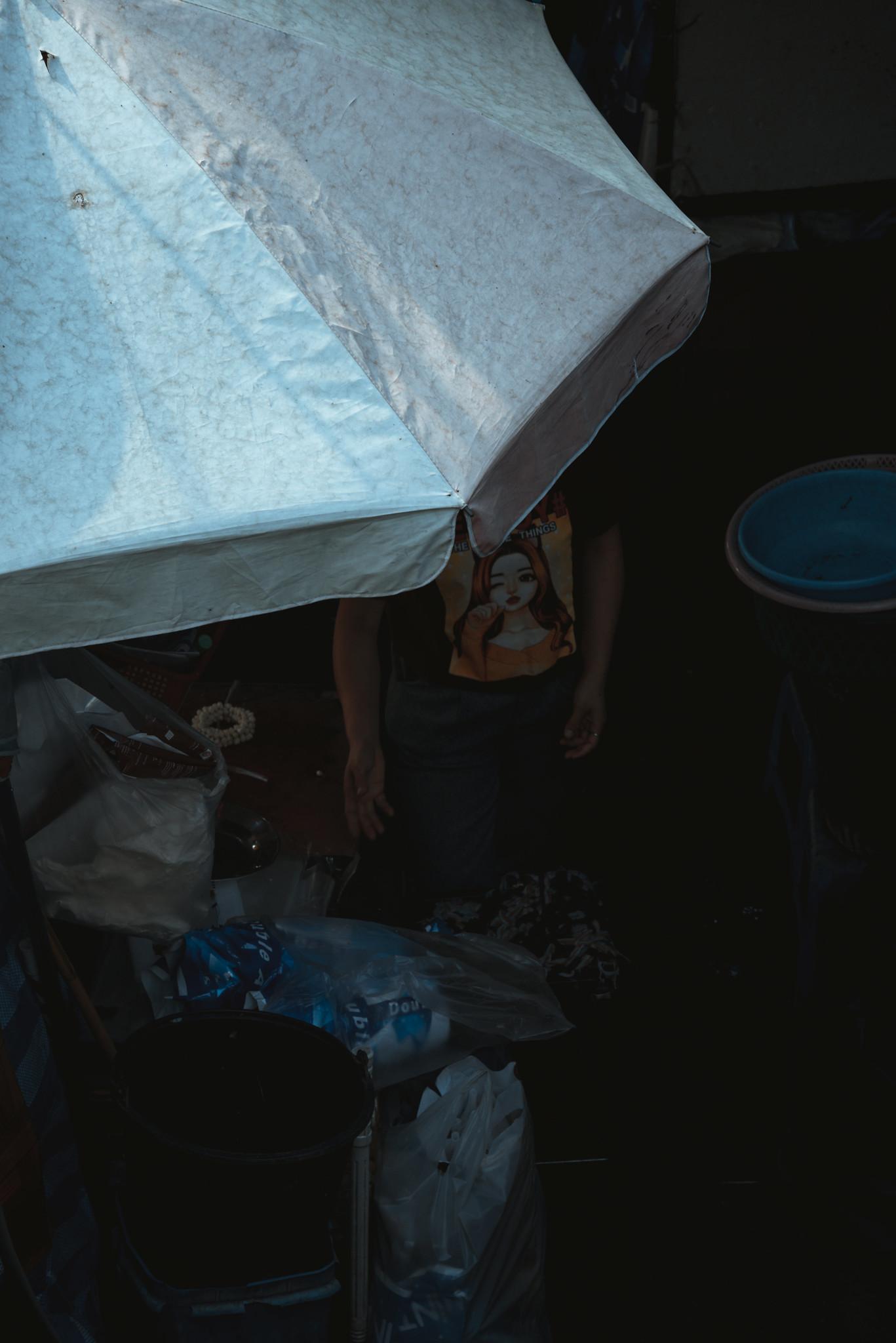
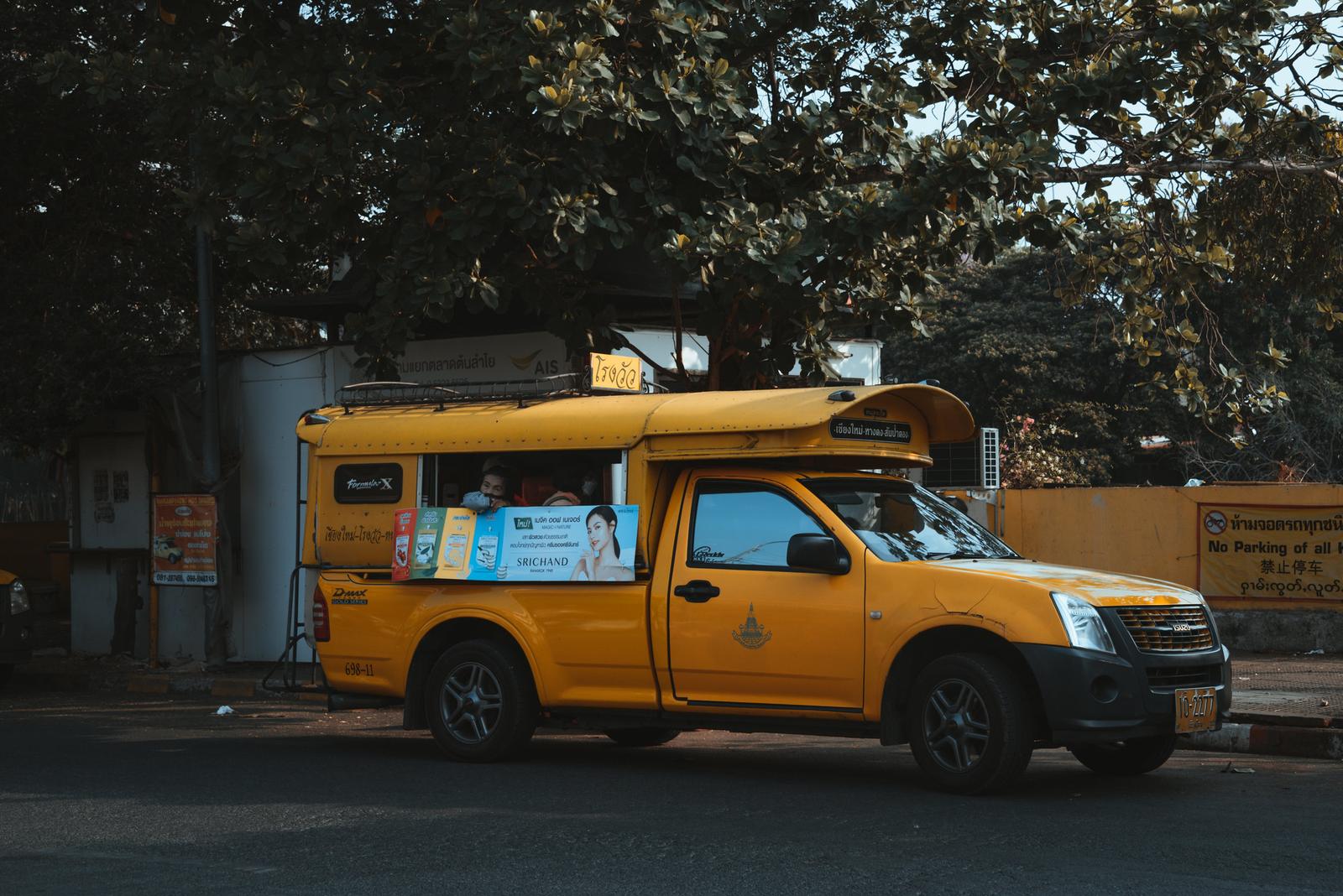
I strolled towards the bridge crossing the Ping River. At such a place offering an open view of the water, it’s really fascinating and relaxing. At this location the river is flowing calmly and relatively small in its upstream segment, but eventually it will merge with the Nan River to form the famous Chao Phraya River draining to the sea in Bangkok.
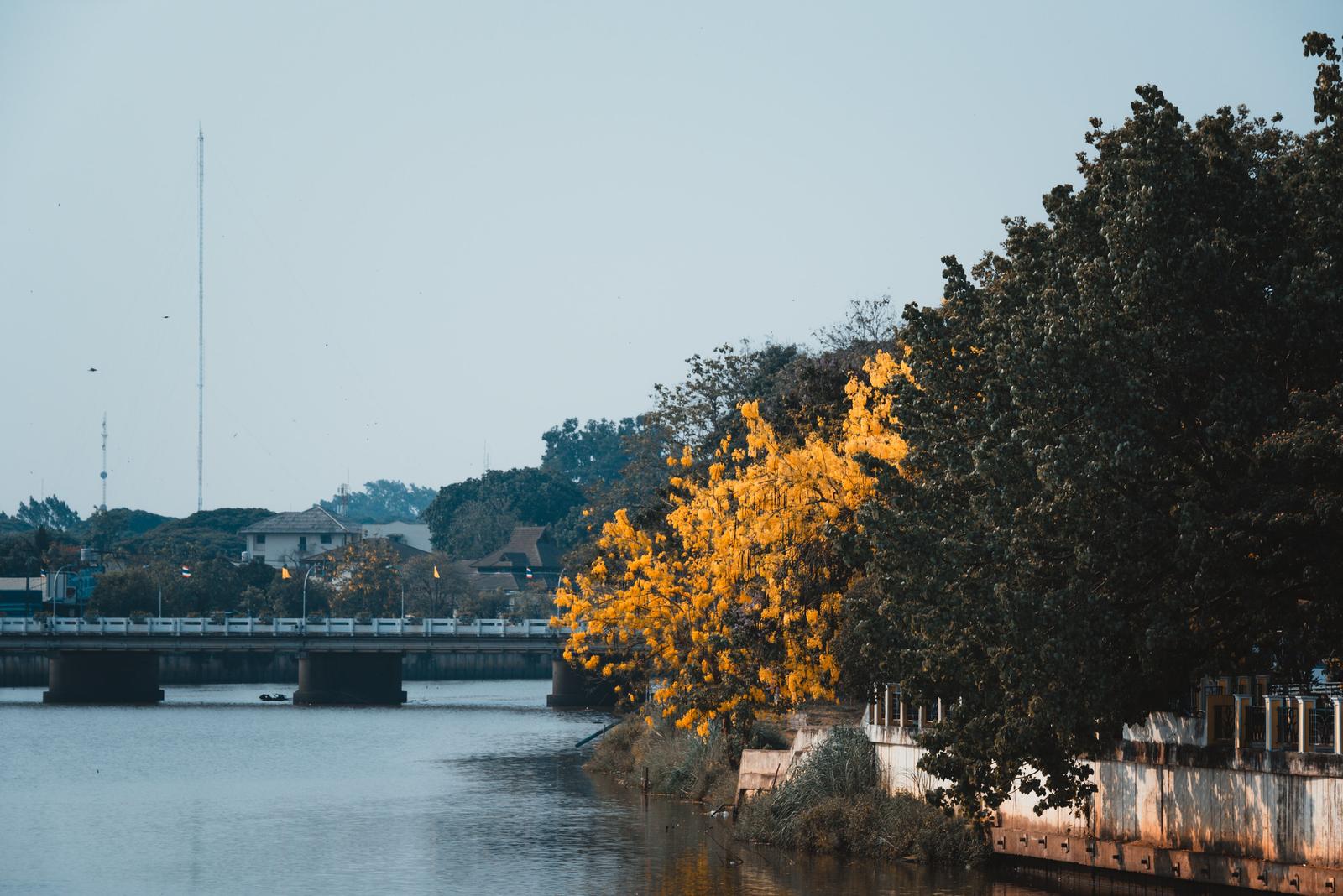
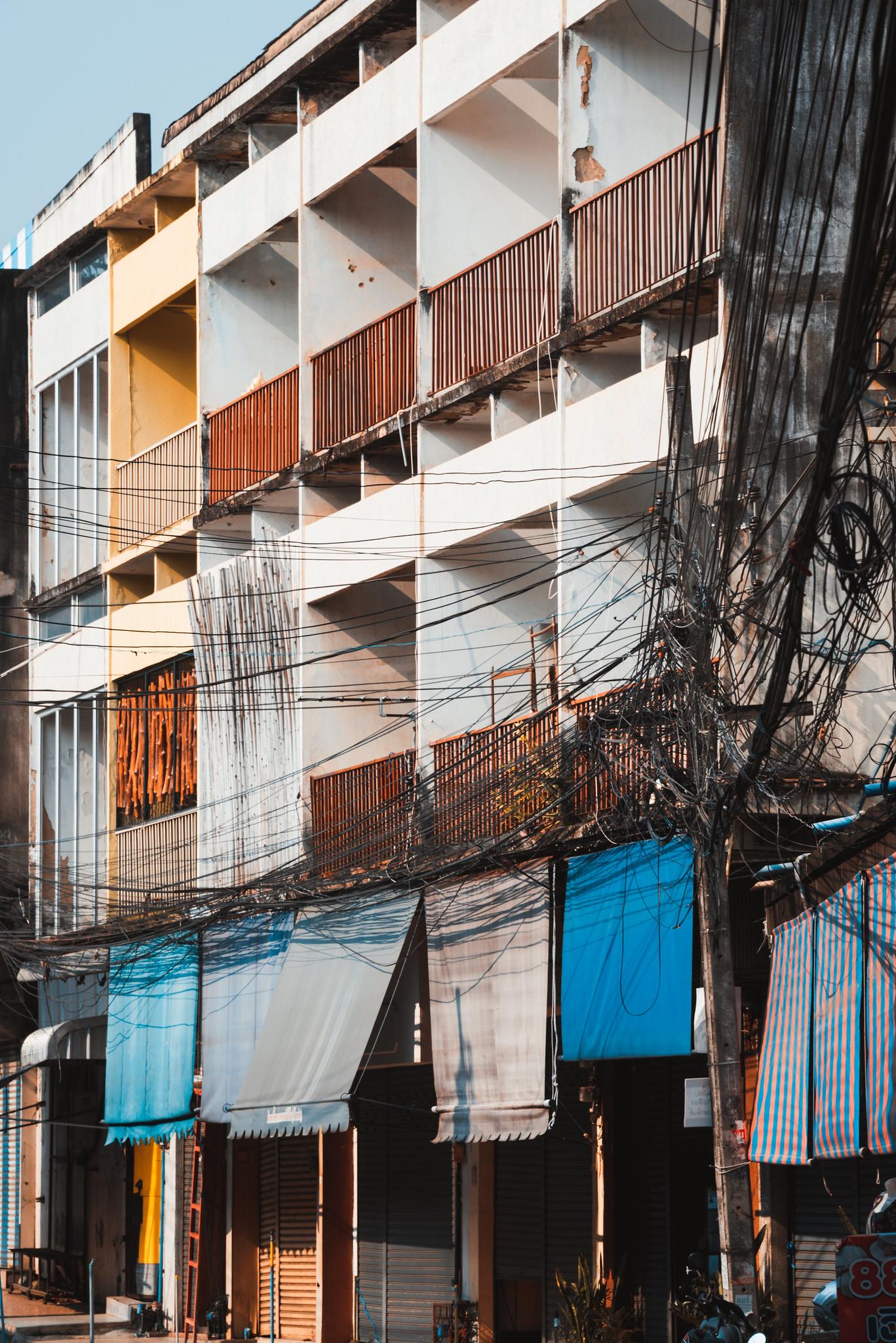
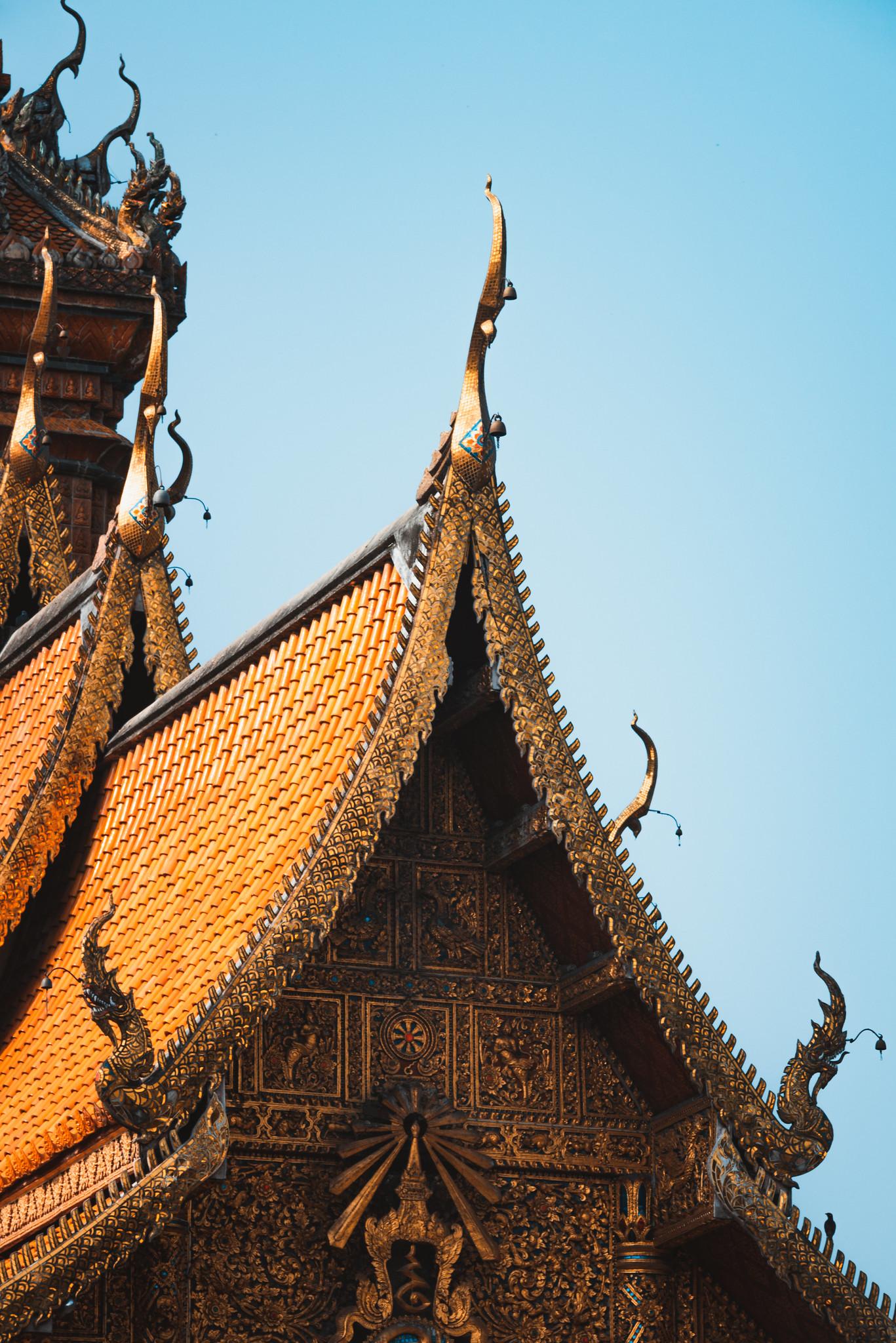
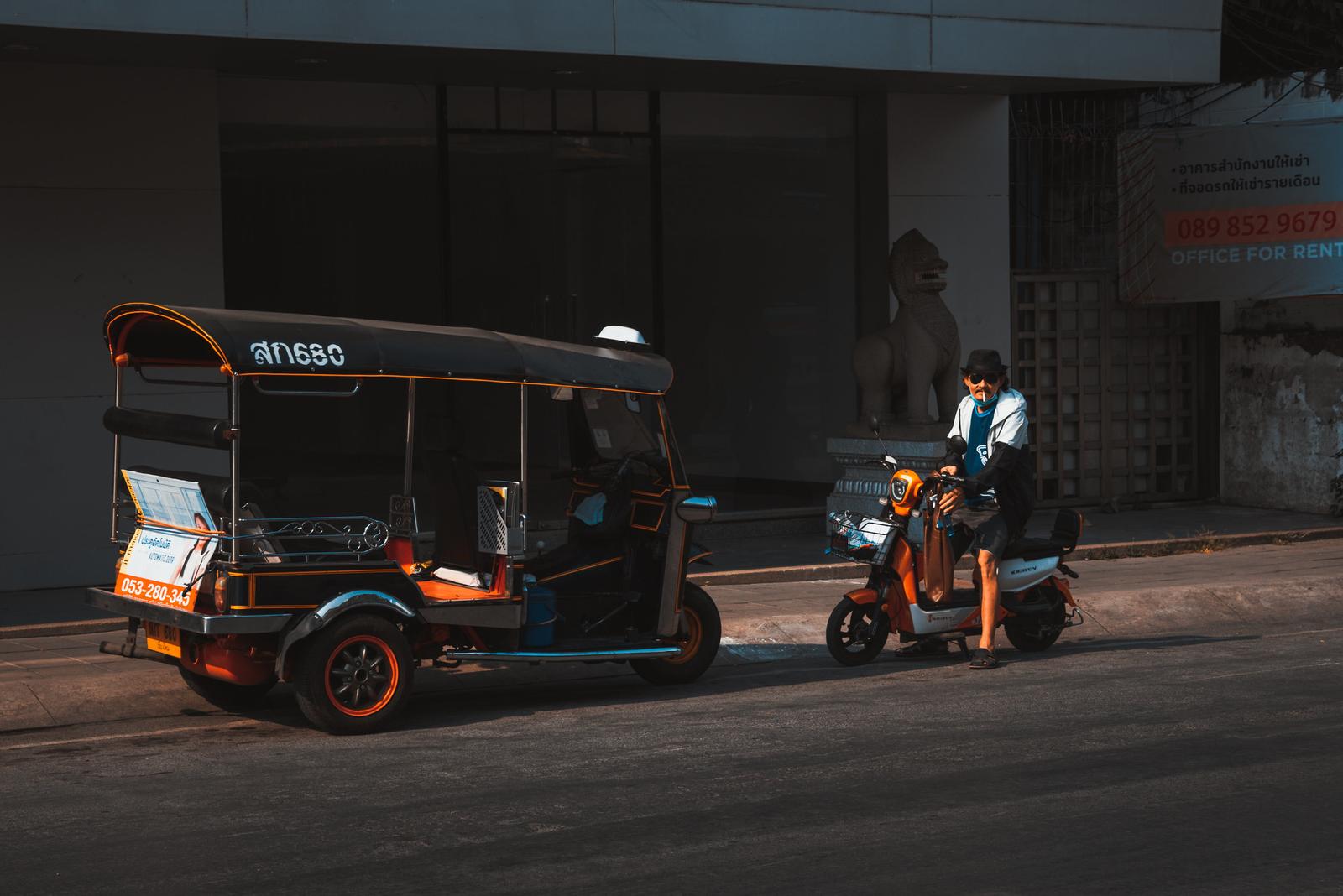
Finally I made my way back to the citadel where Tha Phae Gate (ประตูท่าแพ), which was built in the 13th century, is situated. This was a livelier, more crowded area comparing to the ones I had passed by. Pigeons fill the space, so someone will chase the birds forcing them to fly, creating a picturesque backdrop for the travelers to take photos. Although the pigeons here were abundant, they didn’t quite match the sheer number found in Yangon.
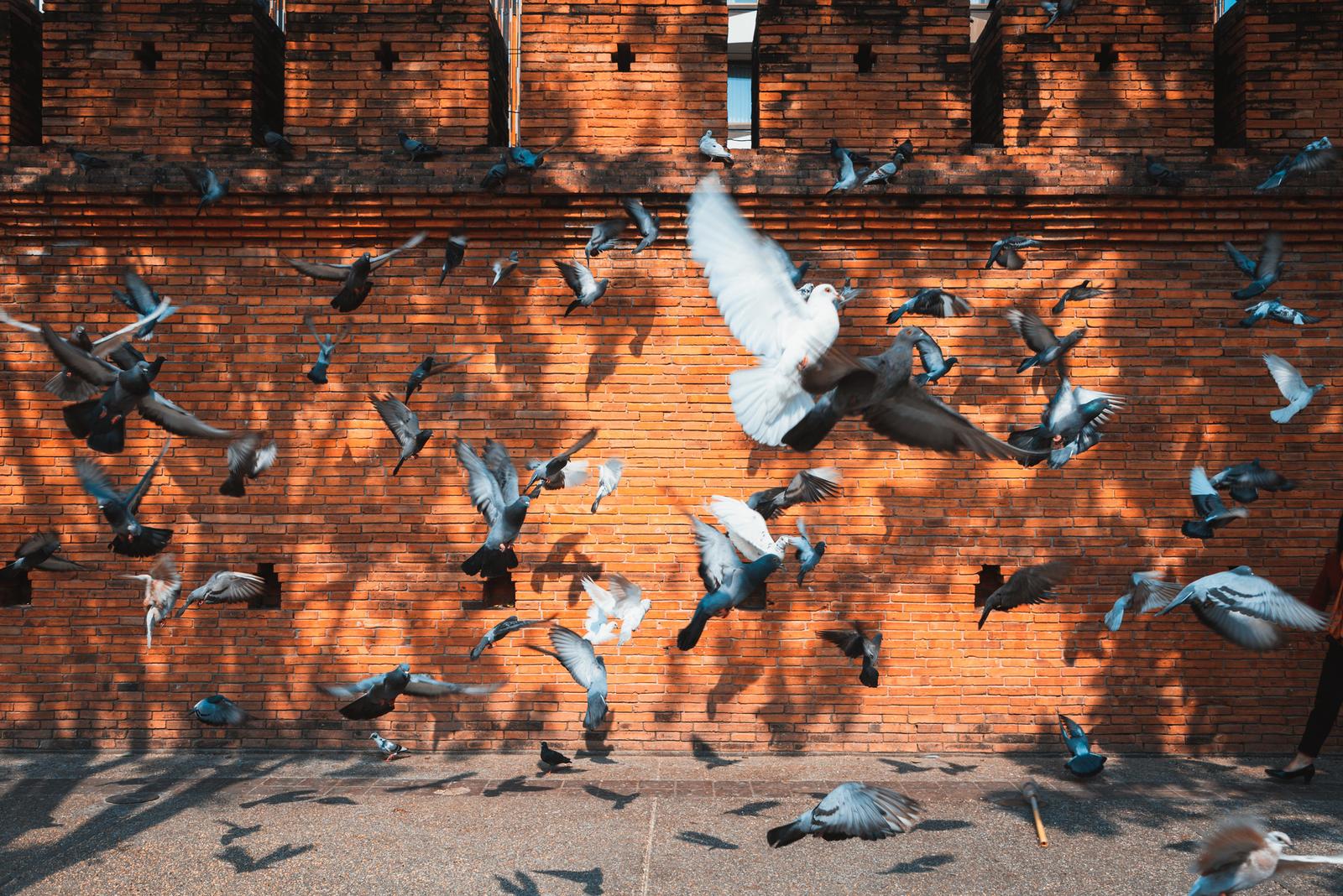
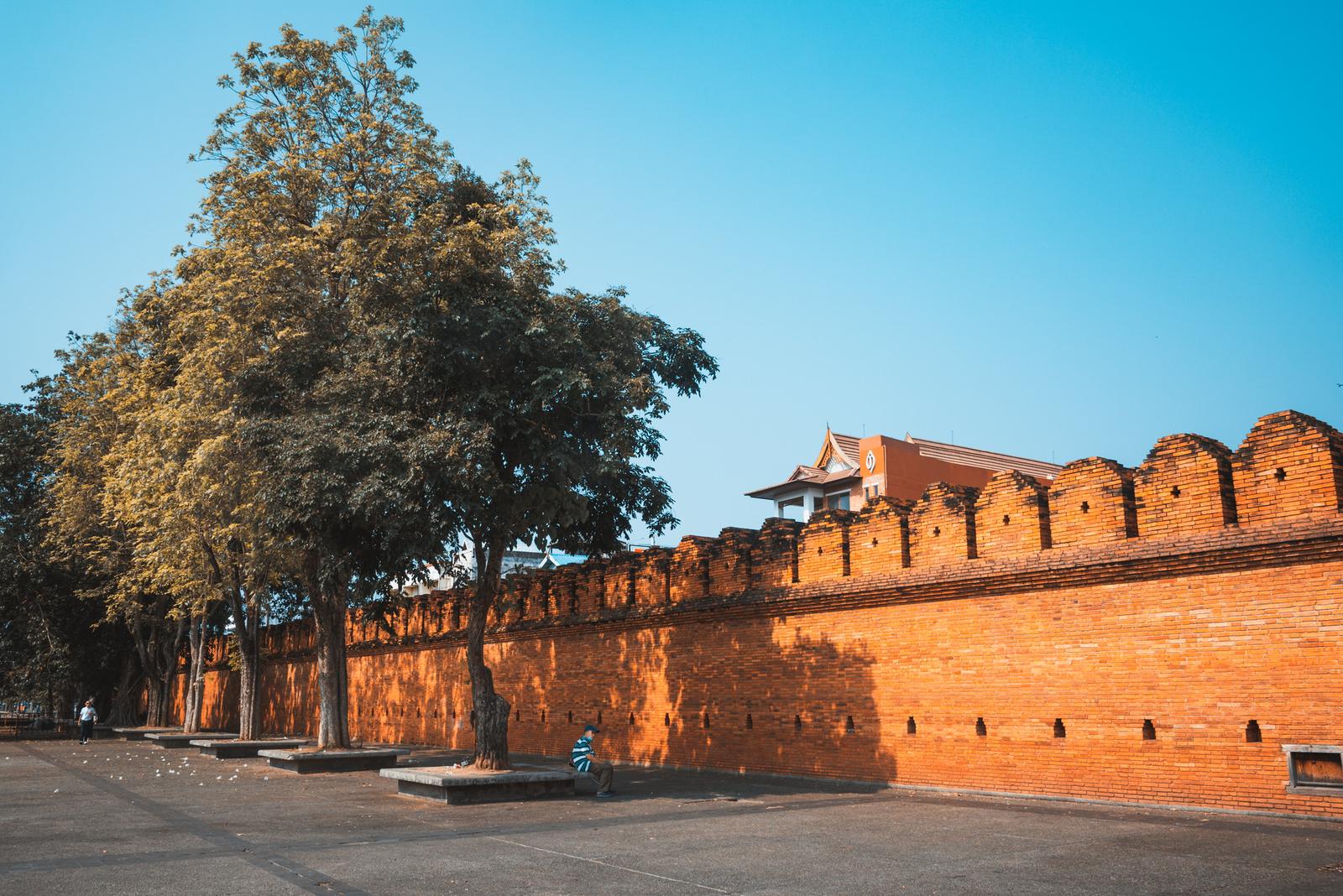
My last stretch of walking was along the encircling channel at the eastern side of the citadel. The rows of trees, the water lily flowers and the cool shades of an ordinary day were seen.
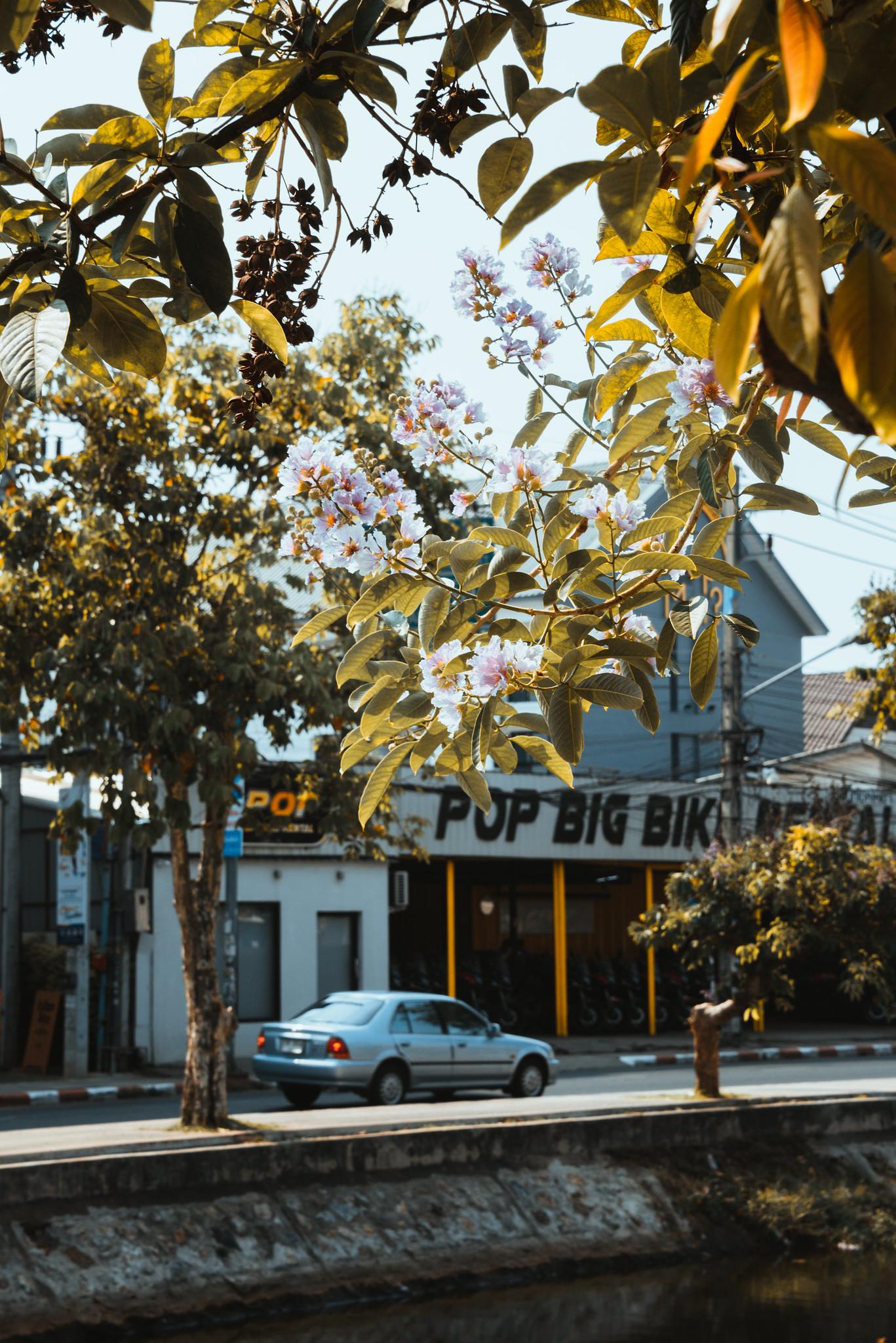
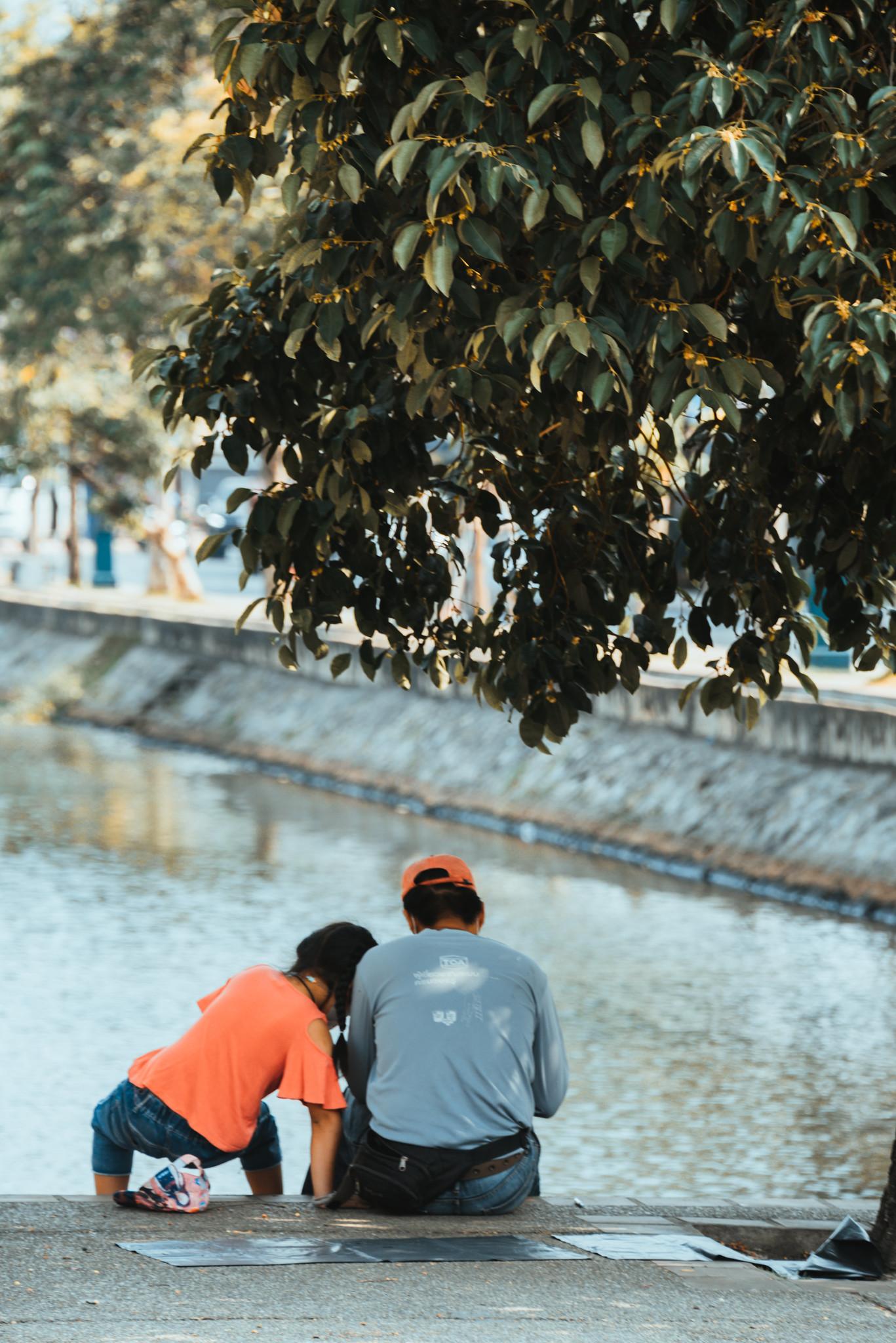
Perhaps those would be my last cherished moments of a memory in this lifetime, and anyhow they will never be forgotten.
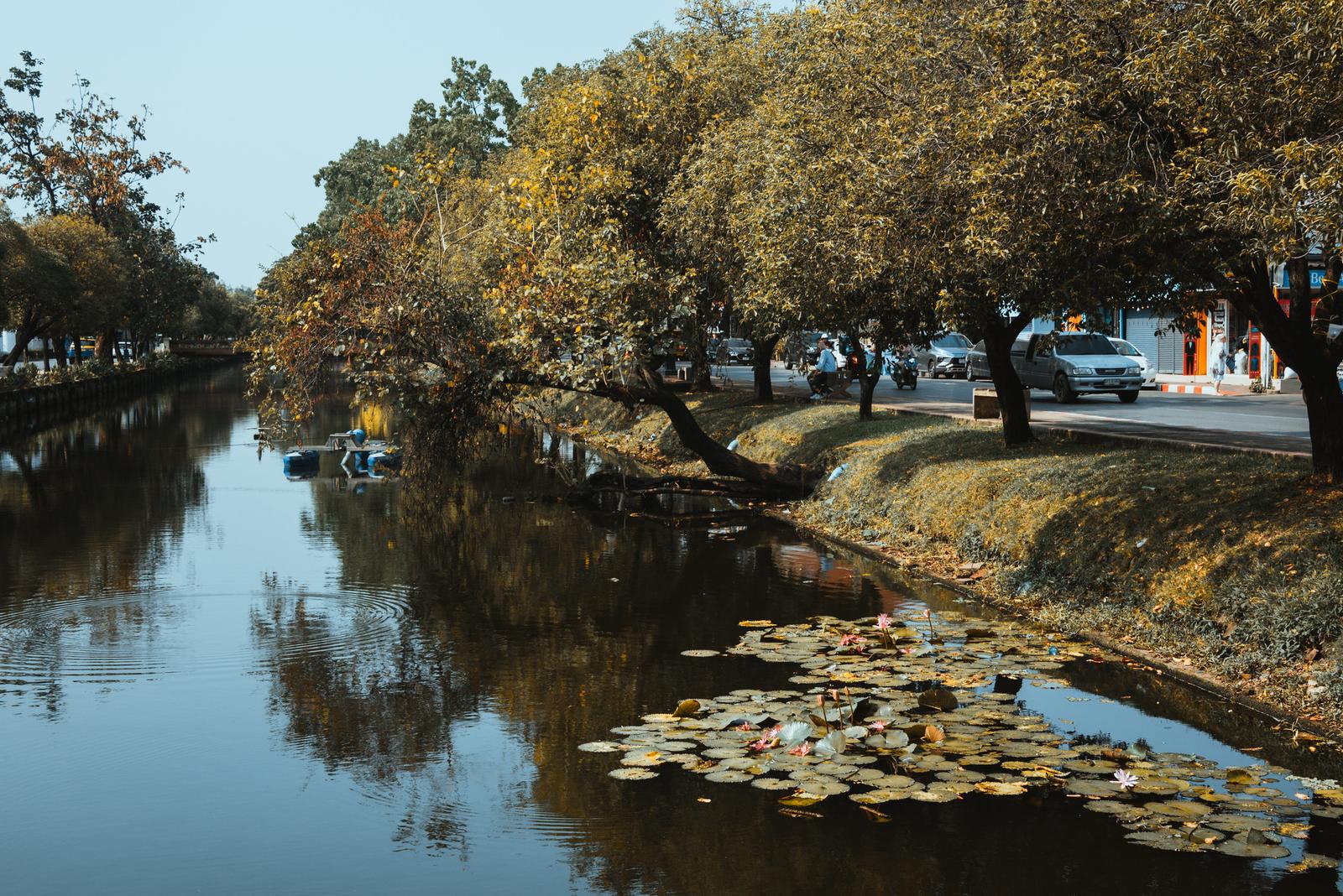
Comments
This post is a part of the Thailand series.
© Zuyet Awarmatik
About
Zuyet Awarmatrip is a subsidiary identity within the personal ecosystem of Zuyet Awarmatik, focusing on travel and photography.
A Vietnamese usually regarding himself as a carefree solo Eastern backpacker, alongside with his main profession as a UX engineer. Neither being a freelancer nor a digital nomad, this website is built for the purpose of recording his life experience and happenings instead of letting them go into oblivion. He hopes these photos here shall always deliver the colorfulness of this worldly reality.
Within a room designed with classical style, shielded from the blazing heat of the tropical dry season, this sound from Da LAB was echoing, and it's still lingering in my head, reminiscent of an ill-fated romance.

